

The 20+ Best Books on Creative Writing
If you’ve ever wondered, “How do I write a book?”, “How do I write a short story?”, or “How do I write a poem?” you’re not alone. I’m halfway done my MFA program at Vermont College of Fine Arts , and I ask myself these questions a lot, too, though I’m noticing that by now I feel more comfortable with the answers that fit my personal craft. Fortunately, you don’t need to be a Master’s of Fine Arts in Writing candidate, or even a college graduate, in order to soak up the great Wisdom of Words, as I like to call it. Another word for it is craft . That’s because there are so many great books out there on writing craft. In this post, I’ll guide you through 20+ of the most essential books on creative writing. These essential books for writers will teach you what you need to know to write riveting stories and emotionally resonant books—and to sell them.
I just also want to put in a quick plug for my post with the word count of 175 favorite novels . This resource is helpful for any writer.

Now, with that done… Let’s get to it!
What Made the List of Essential Books for Writers—and What Didn’t
So what made the list? And what didn’t?
Unique to this list, these are all books that I have personally used in my journey as a creative and commercial writer.
That journey started when I was 15 and extended through majoring in English and Creative Writing as an undergrad at UPenn through becoming a freelance writer in 2014, starting this book blog, pursuing my MFA in Writing for Children and Young Adults at Vermont College of Fine Arts , and publishing some fiction and nonfiction books myself . My point here is not to boast, just to explain that these books have all helped me better understand and apply the craft, discipline, and business of writing over the course of more than half my life as I’ve walked the path to become a full-time writer. Your mileage my vary , but each of these books have contributed to my growth as a writer in some way. I’m not endorsing books I’ve never read or reviewed. This list comes from my heart (and pen!).
Most of these books are geared towards fiction writers, not poetry or nonfiction writers
It’s true that I’m only one human and can only write so much in one post. Originally, I wanted this list to be more than 25 books on writing. Yes, 25 books! But it’s just not possible to manage that in a single post. What I’ll do is publish a follow-up article with even more books for writers. Stay tuned!
The most commonly recommended books on writing are left out.
Why? Because they’re everywhere! I’m aiming for under-the-radar books on writing, ones that aren’t highlighted often enough. You’ll notice that many of these books are self-published because I wanted to give voice to indie authors.
But I did want to include a brief write-up of these books… and, well, you’ve probably heard of them, but here are 7 of the most recommended books on writing:
The Artist’s Way by Julia Cameron – With her guided practice on how to rejuvenate your art over the course of 16 weeks, Cameron has fashioned an enduring classic about living and breathing your craft (for artists as well as writers). This book is perhaps best known for popularizing the morning pages method.
The Art of Fiction by John Gardner – If you want to better understand how fiction works, John Gardner will be your guide in this timeless book.
Bird by Bird by Anne Lamott – A beloved writing book on process, craft, and overcoming stumbling blocks (both existential and material).
On Writing by Stephen King – A must-read hybrid memoir-craft book on the writer mythos and reality for every writer.
Reading Like a Writer by Francine Prose – A core writing book that teaches you how to read with a writer’s eye and unlock the ability to recognize and analyze craft for yourself.
Steering the Craft by Ursula K. Le Guin – Many writers consider this to be their bible on craft and storytelling.
Writing Down the Bones: Freeing the Writer Within by Natalie Goldberg – A favorite of many writers, this book takes an almost spiritual approach to the art, craft, and experience of writing.
I’m aiming for under-the-radar books on writing on my list.
These books are all in print.
Over the years, I’ve picked up several awesome books on creative writing from used bookstores. Oh, how I wish I could recommend these! But many of them are out of print. The books on this list are all available new either as eBooks, hardcovers, or paperbacks. I guess this is the right time for my Affiliate Link disclaimer:
This article contains affiliate links, which means I might get a small portion of your purchase. For more on my affiliate link policy, check out my official Affiliate Link Disclaimer .
You’ll notice a lot of the books focus on the business of writing.
Too often, money is a subject that writers won’t talk about. I want to be upfront about the business of writing and making a living as a writer (or not ) with these books. It’s my goal to get every writer, even poets!, to look at writing not just from a craft perspective, but from a commercial POV, too.
And now on to the books!
Part i: the best books on writing craft, the anatomy of story by john truby.

For you if: You want to develop an instinctive skill at understanding the contours of storytelling .
All I want to do as a writer, my MO, is tell good stories well. It took me so long to understand that what really matters to me is good storytelling. That’s it—that’s the essence of what we do as writers… tell good stories well. And in The Anatomy of Story , legendary screenwriting teacher John Truby takes you through story theory. This book is packed with movie references to illustrate the core beat points in story, and many of these example films are actually literary adaptations, making this a crossover craft book for fiction writers and screenwriters alike.
How to read it: Purchase The Anatomy of Story on Amazon and add it on Goodreads
The art of memoir by mary karr.

For you if: You’re writing a memoir book or personal essays .
Nobody is a better person to teach memoir writing than Mary Karr, whose memoirs The Liar’s Club and Lit are considered classics of the genre. In The Art of Memoir , Karr delivers a master class on memoir writing, adapted from her experience as a writer and a professor in Syracuse’s prestigious MFA program. What I love about this book as an aspiring memoirist is Karr’s approach, which blends practical, actionable advice with more bigger-picture concepts on things like truth vs. fact in memoir storytelling. Like I said in the intro to this list, I didn’t include many nonfiction and poetry books on this list, but I knew I had to make an exception for The Art of Memoir .
How to read it: Purchase The Art of Memoir on Amazon and add it on Goodreads
The emotional craft of fiction by donald maass.

For you if: Plot isn’t your problem, it’s character .
From literary agent Donald Maass, The Emotional Craft of Fiction gives you the skill set you need to master emotionally engaging fiction. Maass’s technique is to show you how readers get pulled into the most resonant, engaging, and unforgettable stories: by going through an emotional journey nimbly crafted by the author. The Emotional Craft of Fiction is a must-have work of craft to balance more plot-driven craft books.
How to read it: Purchase the The Emotional Craft of Fiction on Amazon and add it on Goodreads
How to Write Using the Snowflake Method by Randy Ingermanson

For you if: You need a quick-and-dirty plotting technique that’s easy to memorize .
I first heard of the “Snowflake Method” in the National Novel Writing Month forums (which, by the way, are excellent places for finding writing craft worksheets, book recommendations, and online resources). In How to Write a Novel Using the Snowflake Method , the Snowflake Method is introduced by its creator. This quick yet thorough plotting and outlining structure is humble and easy to master. If you don’t have time to read a bunch of books on outlining and the hundreds of pages that would require, check out How to Write a Novel Using the Snowflake Method for a quick, 235-page read.
How to read it: Purchase How to Write a Novel Using the Snowflake Method on Amazon and add it on Goodreads
Meander, spiral, explode: design and pattern in narrative by jane alison.

For you if: You want to do a deep dive understanding of the core theory of story, a.k.a. narrative.
A most unconventional writing craft book, Meander, Spiral, Explode offers a theory of narrative (story) as recognizable patterns. According to author Jane Alison, there are three main narrative narratives in writing: meandering, spiraling, and exploding. This cerebral book (chock full of examples!) is equal parts seminar on literary theory as it is craft, and it will make you see and understand storytelling better than maybe any book on this list.
How to read it: Purchase Meander, Spiral, Explode on Amazon and add it on Goodreads
The modern library writer’s workshop by stephen koch.

For you if: You’re wondering what it means to be the writer you want to become .
This is one of the earliest creative writing books I ever bought and it remains among the best I’ve read. Why? Reading The Modern Library Writer’s Workshop echoes the kind of mind-body-spirit approach you need to take to writing. The Modern Library Writer’s Workshop doesn’t teach you the nuts and bolts of writing as much as it teaches you how to envision the machine. Koch zooms out to big picture stuff as much as zeroes in on the little details. This is an outstanding book about getting into the mindset of being a writer, not just in a commercial sense, but as your passion and identity. It’s as close as you’ll get to the feel of an MFA in Fiction education.
How to read it: Purchase The Modern Library Writer’s Workshop on Amazon and add it on Goodreads
Romancing the beat by gwen hayes.

For you if: You write or edit the romance genre and want a trusted plotting strategy to craft the perfect love story .
If you’re writing romance, you have to get Gwen Hayes’s Romancing the Beat . This book breaks down the plot points or “beats” you want to hit when you’re crafting your romance novel. When I worked as a romance novel outliner (yes, a real job), our team used Romancing the Beat as its bible; every outline was structured around Hayes’s formula. For romance writers (like myself) I cannot endorse it any higher.
How to read it: Purchase Romancing the Beat on Amazon and add it on Goodreads
Save the cat writes a novel by jessica brody.

For you if: You have big ideas for a plot but need to work on the smaller moments that propel stories .
Jessica Brody’s Save the Cat! Writes a Novel adapts Blake Snyder’s bestselling screenwriting book Save the Cat! into story craft for writing novels. Brody reworks the Save the Cat! methodology in actionable, point-by-point stages of story that are each explained with countless relevant examples. If you want to focus your efforts on plot, Save the Cat! Writes a Novel is an excellent place to go to start learning the ins and outs of what makes a good story.
How to read it: Purchase Save the Cat! Writes a Novel on Amazon and add it on Goodreads
Story genius by lisa cron.

For you if: You’re a pantser and are terrified at outlining yet also realize you might have a “plot problem .”
More than any other book, Lisa Cron’s Story Genius will get you where you need to go for writing amazing stories. Story Genius helps you look at plotting differently, starting from a point of characterization in which our protagonists have a clearly defined need and misbelief that play off each other and move the story forward from an emotional interior and action exterior standpoint. For many of my fellow MFA students—and myself— Story Genius is the missing link book for marrying plot and character so you innately understand the contours of good story.
How to read it: Purchase Story Genius on Amazon and add it on Goodreads
Wonderbook: the illustrated guide to creating imaginative fiction by jeff vandermeer.

For you if: You’re writing in a speculative fiction genre—like science fiction, fantasy, or horror—or are trying to better understand those genres.
Jeff VanderMeer’s Wonderbook is a dazzling gem of a book and a can’t-miss-it writing book for sci-fi, fantasy, and horror writers. This book will teach you all the skills you need to craft speculative fiction, like world-building, with micro-lessons and close-reads of excellent works in these genres. Wonderbook is also one to linger over, with lavish illustrations and every inch and corner crammed with craft talk for writing imaginative fiction (sometimes called speculative fiction). And who better to guide you through this than Jeff VanderMeer, author of the popular Southern Reach Trilogy, which kicks off with Annihilation , which was adapted into a feature film.
How to read it: Purchase Wonderbook on Amazon and add it on Goodreads
Writing picture books by ann whitford paul.

For you if: You’re looking to write picture books and/or understand how they work .
This book is the only one you need to learn how to write and sell picture books. As an MFA student studying children’s literature, I’ve consulted with this book several times as I’ve dipped my toes into writing picture books, a form I considered scary and intimidating until reading this book. Writing Picture Books should be on the shelf of any writer of children’s literature. a.k.a. “kid lit.”
How to read it: Purchase Writing Picture Books on Amazon and add it on Goodreads
Writing with emotion, conflict, and tension by cheryl st. john.

For you if: You need to work on the conflict, tension, and suspense that keep readers turning pages and your story going forward .
Mmm, conflict. As I said earlier, it’s the element of fiction writing that makes a story interesting and a key aspect of characterization that is underrated. In Writing with Emotion, Tension, and Conflict , bestselling romance author Cheryl St. John offers a masterclass on the delicate dance between incorporating conflict, the emotions it inspires in characters, and the tension that results from those two factors.
How to read it: Purchase Writing with Emotion, Tension, and Conflict on Amazon and add it on Goodreads
Part ii: the best books on the productivity, mfas, and the business of writing, 2k to 10k: writing faster, writing better, and writing more of what you love by rachel aaron.

For you if: You struggle to find the time to write and always seem to be a chapter or two behind schedule .
If you’re struggling to find time of your own to write with competing obligations (family, work, whatever) making that hard, you need Rachel Aaron’s 2k to 10k . This book will get you in shape to go from writing just a few words an hour to, eventually, 10,000 words a day. Yes, you read that right. 10,000 words a day. At that rate, you can complete so many more projects and publish more. Writers simply cannot afford to waste time if they want to keep up the kind of production that leads to perpetual publication. Trust me, Aaron’s method works. It has for me. I’m on my way to 10k in the future, currently at like 4 or 5k a day for me at the moment.
How to read it: Purchase 2k to 10k on Amazon and add it on Goodreads
The 3 a.m. epiphany by brian kitele.

For you if: You’re going through writer’s block, have been away from writing for a while, or just want to loosen up and try something new .
Every writer must own an an exercise or prompt book. Why? Because regularly practicing your writing by going outside your current works-in-progress (or writer’s block) will free you up, help you plant the seeds for new ideas, and defrost your creative blocks. And the best book writing exercise book I know is The 3 A.M. Epiphany by Brian Kiteley, an MFA professor who uses prompts like these with his grad students. You’ll find that this book (and its sequel, The 4 A.M. Breakthrough ) go beyond cutesy exercises and forces you to push outside your comfort zone and learn something from the writing you find there.
How to read it: Purchase The 3 A.M. Epiphany on Amazon and add it on Goodreads
The 4-hour workweek by timothy ferriss.

For you if: You think being a writer means you have to be poor .
The 4-Hour Workweek changed my life. Although not strictly about writing in the traditional sense, The 4-Hour Workweek does an excellent job teaching you about how passive income can offer you freedom. I first heard about The 4-Hour Workweek when I was getting into tarot in 2013. On Biddy Tarot , founder Brigit (author of some of the best books on tarot ) related how she read this book, learned how to create passive income, and quit her corporate job to read tarot full time. As a person with a total and permanent disability, this spoke to me because it offered a way out of the 9-to-5 “active” income that I thought was the only way. I picked up Ferriss’s book and learned that there’s more than one option, and that passive income is a viable way for me to make money even when I’m too sick to work. I saw this come true last year when I was in the hospital. When I got out, I checked my stats and learned I’d made money off my blog and books even while I was hospitalized and couldn’t do any “active” work. I almost cried.; I’ve been working on my passive income game since 2013, and I saw a return on that time investment when I needed it most.
That’s why I’m recommending The 4-Hour Workweek to writers. So much of our trade is producing passive income products. Yes, your books are products! And for many writers, this means rewiring your brain to stop looking at writing strictly as an art that will leave you impoverished for life and start approaching writing as a business that can earn you a real living through passive income. No book will help you break out of that mindset better than The 4-Hour Workweek and its actionable steps, proven method, and numerous examples of people who have followed the strategy and are living the lifestyle they’ve always dreamed of but never thought was possible.
How to read it: Purchase The 4-Hour Workweek on Amazon and add it on Goodreads
Before and After the Book Deal: A Writer’s Guide to Finishing, Publishing, Promoting, and Surviving Your First Book by Courtney Maum

For you if: You’re serious about making a living as a writer and publishing with a Big 5 or major indie publisher .
Courtney Maum’s Before and After the Book Deal addresses exactly what its title suggests: what happens after you sell your first book. This book is for ambitious writers intent on submission who know they want to write and want to avoid common pitfalls while negotiating terms and life after your debut. As many published authors would tell you, the debut is one thing, but following that book up with a sustainable, successful career is another trick entirely. Fortunately, we have Maum’s book, packed with to-the-moment details and advice.
How to read it: Purchase Before and After the Book Deal on Amazon and add it on Goodreads
Diy mfa: write with focus, read with purpose, build your community by gabriela pereira.

For you if: You’re stressed out wondering if you really need an MFA .
The MFA is under this header “business of writing” because it is absolutely an economic choice you make. And, look, I’m biased. I’m getting an MFA. But back when I was grappling with whether or not it was worth it—the debt, the time, the stress—I consulted with DIY MFA , an exceptional guide to learning how to enrich your writing craft, career, and community outside the structures of an MFA program. I’ve also more than once visited the companion site, DIYMFA.com , to find a kind of never-ending rabbit hole of new and timeless content on the writing life. On DIYMFA.com and in the corresponding book, you’ll find a lively hub for author interviews, writing craft shop talk, reading lists, and business of writing articles.
How to read it: Purchase DIY MFA on Amazon and add it on Goodreads
Mfa vs. nyc by chad harbach.

For you if: You’re wondering how far an MFA really gets you—and you’re ready to learn the realities of the publishing world .
About a thousand years ago (well, in 2007), I spent the fall of my sophomore year of college as a “Fiction Submissions and Advertising Intern” for the literary magazine n+1 , which was co-founded by Chad Harbach, who you might know from his buzzy novel, The Art of Fielding . In MFA vs NYC , Harbach offers his perspective as both an MFA graduate and someone deeply enmeshed in the New York City publishing industry. This thought-provoking look at these two arenas that launch writers will pull the wool up from your eyes about how publishing really works . It’s not just Harbach’s voice you get in here, though. The book, slim but mighty, includes perspectives from the likes of George Saunders and David Foster Wallace in the MFA camp and Emily Gould and Keith Gessen speaking to NYC’s writing culture.
How to read it: Purchase MFA vs. NYC on Amazon and add it on Goodreads
Scratch: writers, money, and the art of making a living – edited by manjula martin.

For you if: a) You’re worried about how to balance writing with making a living; b) You’re not worried about how to balance writing with making a living .
Scratch: Writers, Money, and the Art of Making a Living is alternately one of the most underrated and essential books on writing out there. This collection of personal essays and interviews all revolve around the taboo theme of how writers make their living, and it’s not always—indeed, rarely—through writing alone. Some of the many contributing authors include Cheryl Strayed ( Wild ), Alexander Chee ( How to Write an Autobiographical Novel ), Jennifer Weiner ( Mrs. Everything ), Austin Kleon ( Steal Like an Artist ), and many others. Recently a young woman asked me for career advice on being a professional freelance writer, and I made sure to recommend Scratch as an eye-opening and candid read that is both motivating and candid.
How to read it: Purchase Scratch: Writers, Money, and the Art of Making a Living on Amazon and add it on Goodreads
Write to market: deliver a book that sells by chris fox.

For you if: You don’t know why your books aren’t selling—and you want to start turning a profit by getting a real publishing strategy
So you don’t have to be an indie author to internalize the invaluable wisdom you’ll find here in Write to Market . I first heard about Write to Market when I first joined the 20Booksto50K writing group on Facebook , a massive, supportive, motivating community of mostly indie authors. Everyone kept talking about Write to Market . I read the book in a day and found the way I looked at publishing change. Essentially, what Chris Fox does in Write to Market is help you learn to identify what are viable publishing niches. Following his method, I’ve since published several successful and #1 bestselling books in the quotations genre on Amazon . Without Fox’s book, I’m not sure I would have gotten there on my own.
How to read it: Purchase Write to Market on Amazon and add it on Goodreads
And that’s a wrap what are some of your favorite writing books, share this:, you might be interested in.

- Four Romance Writing Tips from TITANIC

October 2023 Recommended Reads

Learn How to Read Tea Leaves with the Best Tea Leaf Reading Books
- Latest posts
Sarah S. Davis is the founder of Broke by Books, a blog about her journey as a schizoaffective disorder bipolar type writer and reader. Sarah's writing about books has appeared on Book Riot, Electric Literature, Kirkus Reviews, BookRags, PsychCentral, and more. She has a BA in English from the University of Pennsylvania, a Master of Library and Information Science from Clarion University, and an MFA in Writing for Children and Young Adults from Vermont College of Fine Arts.
- 5 Books I'm Looking Forward to This Summer
The Best Books of 2023
15 best new christmas romance books for 2023.

15 Best New Books for Nature Lovers

85 Roald Dahl Quotes from 10 of His Best Books
Latest from book lists.

5 Books I’m Looking Forward to This Summer
I’m back to blogging! It’s been an eventful last sixteen months as

Welcome to my roundup of the Best Books of 2023! Wow, can

In this list of the best new Christmas romance books for 2023,
If you want to learn how to read tea leaves, there’s no

The 30 Best Politics Books of All Time
The best politics books of all time capture the drama of political
- NONFICTION BOOKS
- BEST NONFICTION 2023
- BEST NONFICTION 2024
- Historical Biographies
- The Best Memoirs and Autobiographies
- Philosophical Biographies
- World War 2
- World History
- American History
- British History
- Chinese History
- Russian History
- Ancient History (up to c. 500 AD)
- Medieval History (500-1400)
- Military History
- Art History
- Travel Books
- Ancient Philosophy
- Contemporary Philosophy
- Ethics & Moral Philosophy
- Great Philosophers
- Social & Political Philosophy
- Classical Studies
- New Science Books
- Maths & Statistics
- Popular Science
- Physics Books
- Climate Change Books
- How to Write
- English Grammar & Usage
- Books for Learning Languages
- Linguistics
- Political Ideologies
- Foreign Policy & International Relations
- American Politics
- British Politics
- Religious History Books
- Mental Health
- Neuroscience
- Child Psychology
- Film & Cinema
- Opera & Classical Music
- Behavioural Economics
- Development Economics
- Economic History
- Financial Crisis
- World Economies
- Investing Books
- Artificial Intelligence/AI Books
- Data Science Books
- Sex & Sexuality
- Death & Dying
- Food & Cooking
- Sports, Games & Hobbies
- FICTION BOOKS
- BEST NOVELS 2024
- BEST FICTION 2023
- New Literary Fiction
- World Literature
- Literary Criticism
- Literary Figures
- Classic English Literature
- American Literature
- Comics & Graphic Novels
- Fairy Tales & Mythology
- Historical Fiction
- Crime Novels
- Science Fiction
- Short Stories
- South Africa
- United States
- Arctic & Antarctica
- Afghanistan
- Myanmar (Formerly Burma)
- Netherlands
- Kids Recommend Books for Kids
- High School Teachers Recommendations
- Prizewinning Kids' Books
- Popular Series Books for Kids
- BEST BOOKS FOR KIDS (ALL AGES)
- Ages Baby-2
- Books for Teens and Young Adults
- THE BEST SCIENCE BOOKS FOR KIDS
- BEST KIDS' BOOKS OF 2024
- BEST BOOKS FOR TEENS OF 2024
- Best Audiobooks for Kids
- Environment
- Best Books for Teens of 2024
- Best Kids' Books of 2024
- Mystery & Crime
- Travel Writing
- New History Books
- New Historical Fiction
- New Biography
- New Memoirs
- New World Literature
- New Economics Books
- New Climate Books
- New Math Books
- New Philosophy Books
- New Psychology Books
- New Physics Books
- THE BEST AUDIOBOOKS
- Actors Read Great Books
- Books Narrated by Their Authors
- Best Audiobook Thrillers
- Best History Audiobooks
- Nobel Literature Prize
- Booker Prize (fiction)
- Baillie Gifford Prize (nonfiction)
- Financial Times (nonfiction)
- Wolfson Prize (history)
- Royal Society (science)
- Pushkin House Prize (Russia)
- Walter Scott Prize (historical fiction)
- Arthur C Clarke Prize (sci fi)
- The Hugos (sci fi & fantasy)
- Audie Awards (audiobooks)
Make Your Own List
Nonfiction Books » Language » Writing Books
The best books on creative writing, recommended by andrew cowan.
The professor of creative writing at UEA says Joseph Conrad got it right when he said that the sitting down is all. He chooses five books to help aspiring writers.
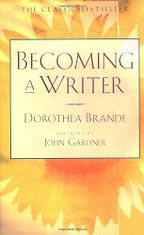
Becoming a Writer by Dorothea Brande
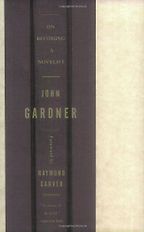
On Becoming a Novelist by John C. Gardner
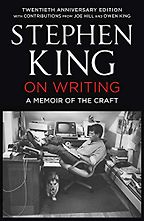
On Writing: A Memoir of the Craft by Stephen King
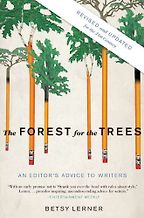
The Forest for the Trees by Betsy Lerner
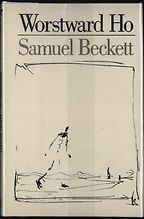
Worstward Ho by Samuel Beckett

1 Becoming a Writer by Dorothea Brande
2 on becoming a novelist by john c. gardner, 3 on writing: a memoir of the craft by stephen king, 4 the forest for the trees by betsy lerner, 5 worstward ho by samuel beckett.
How would you describe creative writing?
But because it is in academia there is all this paraphernalia that has to go with it. So you get credits for attending classes. You have to do supporting modules; you have to be assessed. If you are doing an undergraduate degree you have to follow a particular curriculum and only about a quarter of that will be creative writing and the rest will be in the canon of English literature . If you are doing a PhD you have to support whatever the creative element is with a critical element. So there are these ways in which academia disciplines writing and I think of that as Creative Writing with a capital C and a capital W. All of us who teach creative writing are doing it, in a sense, to support our writing, but it is also often at the expense of our writing. We give up quite a lot of time and mental energy and also, I think, imaginative and creative energy to teach.
Your first choice is Dorothea Brande’s Becoming a Writer , which for someone writing in 1934 sounds pretty forward thinking.
Because creative writing has now taken off and has become this very widespread academic discipline it is beginning to acquire its own canon of key works and key texts. This is one of the oldest of them. It’s a book that almost anyone who teaches creative writing will have read. They will probably have read it because some fundamentals are explained and I think the most important one is Brande’s sense of the creative writer being comprised of two people. One of them is the artist and the other is the critic.
Actually, Malcolm Bradbury who taught me at UEA, wrote the foreword to my edition of Becoming a Writer , and he talks about how Dorothea Brande was writing this book ‘in Freudian times’ – the 1930s in the States. And she does have this very Freudian idea of the writer as comprised of a child artist on the one hand, who is associated with spontaneity, unconscious processes, while on the other side there is the adult critic making very careful discriminations.
And did she think the adult critic hindered the child artist?
No. Her point is that the two have to work in harmony and in some way the writer has to achieve an effective balance between the two, which is often taken to mean that you allow the artist child free rein in the morning. So you just pour stuff on to the page in the morning when you are closest to the condition of sleep. The dream state for the writer is the one that is closest to the unconscious. And then in the afternoon you come back to your morning’s work with your critical head on and you consciously and objectively edit it. Lots of how-to-write books encourage writers to do it that way. It is also possible that you can just pour stuff on to the page for days on end as long as you come back to it eventually with a critical eye.
Get the weekly Five Books newsletter
Good! Your next book, John Gardner’s On Becoming a Novelist , is described as comfort food for the aspiring novelist.
This is another one of the classics. He was quite a successful novelist in the States, but possibly an even more successful teacher of creative writing. The short story writer and poet Raymond Carver, for instance, was one of his students. And he died young in a motorcycle accident when he was 49. There are two classic works by him. One is this book, On Becoming a Novelist , and the other is The Art of Fiction: Notes on Craft for Young Writers . They were both put together from his teaching notes after he died.
On Becoming a Novelist is the more succinct and, I think, is the better of the two. He talks about automatic writing and the idea, just like Dorothea Brande, of the artist being comprised of two people. But his key idea is the notion of the vivid and continuous dream. He suggests that when we read a novel we submit to the logic of that novel in the same way as we might submit to the logic of a dream – we sink into it, and clearly the events that occur could not exist outside the imagination.
What makes student writing in particular go wrong is when it draws attention to itself, either through bad writing or over-elaborate writing. He suggests that these faults in the aspirant writer alert the reader to the fact that they are reading a fiction and it is a bit like giving someone who is dreaming a nudge. It jolts them out of the dream. So he proposes that the student writer should try to create a dream state in the reader that is vivid and appeals to all the senses and is continuous. What you mustn’t do is alert the reader to the fact that they are reading a fiction.
It is a very good piece of advice for writers starting out but it is ultimately very limiting. It rules out all the great works of modernism and post-modernism, anything which is linguistically experimental. It rules out anything which draws attention to the words as words on a page. It’s a piece of advice which really applies to the writing of realist fiction, but is a very good place from which to begin.
And then people can move on.
I never would have expected the master of terror Stephen King to write a book about writing. But your next choice, On Writing , is more of an autobiography .
Yes. It is a surprise to a lot of people that this book is so widely read on university campuses and so widely recommended by teachers of writing. Students love it. It’s bracing: there’s no nonsense. He says somewhere in the foreword or preface that it is a short book because most books are filled with bullshit and he is determined not to offer bullshit but to tell it like it is.
It is autobiographical. It describes his struggle to emerge from his addictions – to alcohol and drugs – and he talks about how he managed to pull himself and his family out of poverty and the dead end into which he had taken them. He comes from a very disadvantaged background and through sheer hard work and determination he becomes this worldwide bestselling author. This is partly because of his idea of the creative muse. Most people think of this as some sprite or fairy that is usually feminine and flutters about your head offering inspiration. His idea of the muse is ‘a basement guy’, as he calls him, who is grumpy and turns up smoking a cigar. You have to be down in the basement every day clocking in to do your shift if you want to meet the basement guy.
Stephen King has this attitude that if you are going to be a writer you need to keep going and accept that quite a lot of what you produce is going to be rubbish and then you are going to revise it and keep working at it.
Do you agree with him?
He sounds inspirational. Your next book, Betsy Lerner’s The Forest for the Trees , looks at things from the editor’s point of view.
Yes, she was an editor at several major American publishing houses, such as Simon & Schuster. She went on to become an agent, and also did an MFA in poetry before that, so she came through the US creative writing process and understands where many writers are coming from.
The book is divided into two halves. In the second half she describes the process that goes from the completion of the author’s manuscript to submitting it to agents and editors. She explains what goes on at the agent’s offices and the publisher’s offices. She talks about the drawing up of contracts, negotiating advances and royalties. So she takes the manuscript from the author’s hands, all the way through the publishing process to its appearance in bookshops. She describes that from an insider’s point of view, which is hugely interesting.
But the reason I like this book is for the first half of it, which is very different. Here she offers six chapters, each of which is a character sketch of a different type of author. She has met each of them and so although she doesn’t mention names you feel she is revealing something to you about authors whose books you may have read. She describes six classic personality types. She has the ambivalent writer, the natural, the wicked child, the self-promoter, the neurotic and a chapter called ‘Touching Fire’, which is about the addictive and the mentally unstable.
Your final choice is Worstward Ho by Samuel Beckett .
This is a tiny book – it is only about 40 pages and it has got these massive white margins and really large type. I haven’t counted, but I would guess it is only about two to three thousand words and it is dressed up as a novella when it is really only a short story. On the first page there is this riff: ‘Ever tried. Ever failed. No matter. Try again. Fail again. Fail better.’
Support Five Books
Five Books interviews are expensive to produce. If you're enjoying this interview, please support us by donating a small amount .
When I read this I thought I had discovered a slogan for the classroom that I could share with my students. I want to encourage them to make mistakes and not to be perfectionists, not to feel that everything they do has to be of publishable standard. The whole point of doing a course, especially a creative writing MA and attending workshops, is that you can treat the course as a sandpit. You go in there, you try things out which otherwise you wouldn’t try, and then you submit it to the scrutiny of your classmates and you get feedback. Inevitably there will be things that don’t work and your classmates will help you to identify those so that you can take it away and redraft it – you can try again. And inevitably you are going to fail again because any artistic endeavour is doomed to failure because the achievement can never match the ambition. That’s why artists keep producing their art and writers keep writing, because the thing you did last just didn’t quite satisfy you, just wasn’t quite right. And you keep going and trying to improve on that.
But why, when so much of it is about failing – failing to get published, failing to be satisfied, failing to be inspired – do writers carry on?
I have a really good quote from Joseph Conrad in which he says the sitting down is all. He spends eight hours at his desk, trying to write, failing to write, foaming at the mouth, and in the end wanting to hit his head on the wall but refraining from that for fear of alarming his wife!
It’s a familiar situation; lots of writers will have been there. For me it is a kind of obsessive-compulsive disorder. It is something I have to keep returning to. I have to keep going back to the sentences, trying to get them right. Trying to line them up correctly. I can’t let them go. It is endlessly frustrating because they are never quite right.
You have published four books. Are you happy with them?
Reasonably happy. Once they are done and gone I can relax and feel a little bit proud of them. But at the time I just experience agonies. It takes me ages. It takes me four or five years to finish a novel partly because I always find distractions – like working in academia – something that will keep me away from the writing, which is equally as unrewarding as it is rewarding!
September 27, 2012
Five Books aims to keep its book recommendations and interviews up to date. If you are the interviewee and would like to update your choice of books (or even just what you say about them) please email us at [email protected]
Andrew Cowan
Andrew Cowan is Professor of Creative Writing and Director of the Creative Writing programme at UEA. His first novel, Pig , won the Sunday Times Young Writer of the Year Award, the Betty Trask Award, the Ruth Hadden Memorial Prize, the Author’s Club First Novel Award and a Scottish Council Book Award. He is also the author of the novels Common Ground , Crustaceans , What I Know and Worthless Men . His own creative writing guidebook is The Art of Writing Fiction .
We ask experts to recommend the five best books in their subject and explain their selection in an interview.
This site has an archive of more than one thousand seven hundred interviews, or eight thousand book recommendations. We publish at least two new interviews per week.
Five Books participates in the Amazon Associate program and earns money from qualifying purchases.
© Five Books 2024
VIDEO COURSE
Finish your draft in our 3-month master class. Sign up now to watch a free lesson!
Learn How to Write a Novel
Finish your draft in our 3-month master class. Enroll now for daily lessons, weekly critique, and live events. Your first lesson is free!

Blog • Perfecting your Craft
Last updated on May 31, 2022
The 40 Best Books About Writing: A Reading List for Authors
About the author.
Reedsy's editorial team is a diverse group of industry experts devoted to helping authors write and publish beautiful books.
About Dario Villirilli
Editor-in-Chief of the Reedsy blog, Dario is a graduate of Mälardalen University. As a freelance writer, he has written for many esteemed outlets aimed at writers. A traveler at heart, he can be found roaming the world and working from his laptop.
For this post, we’ve scoured the web (so you don’t have to) and asked our community of writers for recommendations on some indispensable books about writing. We've filled this list with dozens of amazing titles, all of which are great — but this list might seem intimidating. So for starters, here are our top 10 books about writing:
- On Writing by Stephen King
- The Kick-Ass Writer by Chuck Wendig
- Dreyer’s Englis h by Benjamin Dreyer
- The Elements of Style by Strunk, White, and Kalman
- The Story Grid by Shawn Coyne
- A Swim in a Pond in the Rain by George Saunders
- Bird by Bird by Anne Lamott
- Mouth Full of Blood by Toni Morrison
- How to Market a Book by Ricardo Fayet
- On Writing Well by William Zinsser
But if you're ready to get into the weeds, here are 40 of our favorite writing books.
Books about becoming a writer
1. on writing by stephen king.
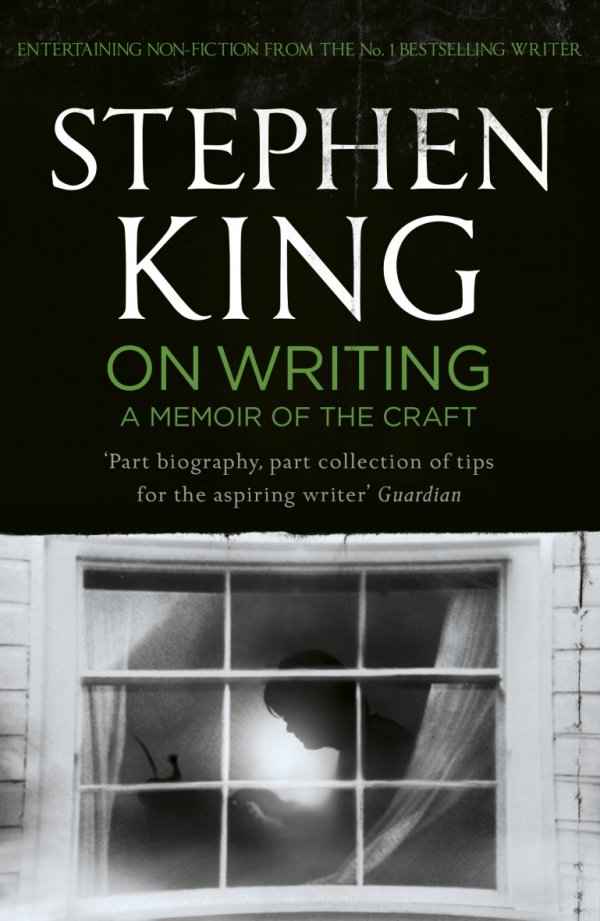
Perhaps the most-cited book on this list, On Writing is part-memoir, part-masterclass from one of America’s leading authors. Come for the vivid accounts of his childhood and youth — including his extended "lost weekend" spent on alcohol and drugs in the 1980s. Stay for the actionable advice on how to use your emotions and experiences to kickstart your writing, hone your skills, and become an author. Among the many craft-based tips are King’s expert takes on plot, story, character, and more.
From the book: “Amateurs sit and wait for inspiration, the rest of us just get up and go to work.”
2. The Kick-Ass Writer by Chuck Wendig
If you haven’t checked out Wendig’s personal blog, head over there now and bookmark it. Unfiltered, profane, and almost always right, Wendig has become a leading voice among online writing communities in the past few years. In The Kick-Ass Writer , he offers over 1,000 pearls of wisdom for authors, ranging from express writing tips to guidance on getting published. Written to be read in short bursts, we’re sure he’d agree that this is the perfect bathroom book for writers.
From the book: “I have been writing professionally for a lucky-despite-the-number 13 years. Not once — seriously, not once ever — has anyone ever asked me where I got my writing degree… Nobody gives two ferrets fornicating in a filth-caked gym sock whether or not you have a degree… The only thing that matters is, Can you write well? ”
3. Find Your Voice by Angie Thomas
Taking advice from famous authors is not about imitation, but about finding your own voice . Take it from someone who knows: Thomas is the New York Times #1 Bestselling author of The Hate U Give , On the Come Up , and Concrete Rose . While she’s found her calling in YA literature, she has plenty of insight into finding your own voice in your genre of choice. Written in the form of a guided journal, this volume comes with step-by-step instructions, writing prompts, and exercises especially aimed at helping younger creatives develop the strength and skills to realize their vision.
From the book: “Write fearlessly. Write what is true and real to you.”
4. The Forest for the Trees by Betsy Lerner
Since its publication in 2000, The Forest for the Trees has remained an essential resource for authors at various stages in their careers. As an editor, Lerner gives advice not only on producing quality content, but also on how to build your career as an author and develop a winning routine — like how writers can be more productive in their creative process, how to get published, and how to publish well .
From the book: “The world doesn't fully make sense until the writer has secured his version of it on the page. And the act of writing is strangely more lifelike than life.”

Perfect your book with professional help
Meet the top book editors, designers, and marketers on Reedsy
Learn how Reedsy can help you craft a beautiful book.
5. How to Write Like Tolstoy by Richard Cohen
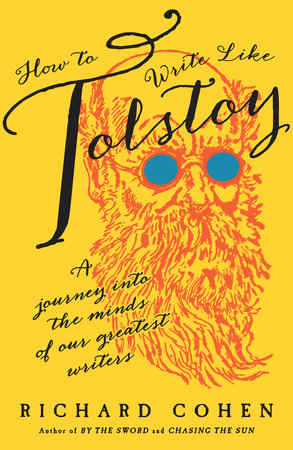
From the book: “Great writers can be inhibiting, and maybe after one has read a Scott Fitzgerald or Henry James one can’t escape imitating them; but more often such writers are inspiring.”
6. Feel Free: Essays by Zadie Smith
Smith is well-known for her fiction, but she is also a prolific essay writer. In Feel Free , she has gathered several essays on recent cultural and political developments and combined them with experiences from her own life and career. In “The I Who Is Not Me”, she explores how her own lived experience comes into play in her fiction writing, and how she manages to extrapolate that to comment on contemporary social contexts, discussing race, class, and ethnicity.
From the book: “Writing exists (for me) at the intersection of three precarious, uncertain elements: language, the world, the self. The first is never wholly mine; the second I can only ever know in a partial sense; the third is a malleable and improvised response to the previous two.”
Books about language and style
7. dreyer’s english by benjamin dreyer.
A staple book about writing well, Dreyer’s English serves as a one-stop guide to proper English, based on the knowledge that Dreyer — a senior copy editor at Random House — has accumulated throughout his career. From punctuation to tricky homophones, passive voice, and commas, the goal of these tools should be to facilitate effective communication of ideas and thoughts. Dreyer delivers this and then some, but not without its due dosage of humor and informative examples.
From the book: “A good sentence, I find myself saying frequently, is one that the reader can follow from beginning to end, no matter how long it is, without having to double back in confusion because the writer misused or omitted a key piece of punctuation, chose a vague or misleading pronoun, or in some other way engaged in inadvertent misdirection.”
8. The Elements of Style (Illustrated) by William Strunk, Jr., E. B. White, and Maira Kalman
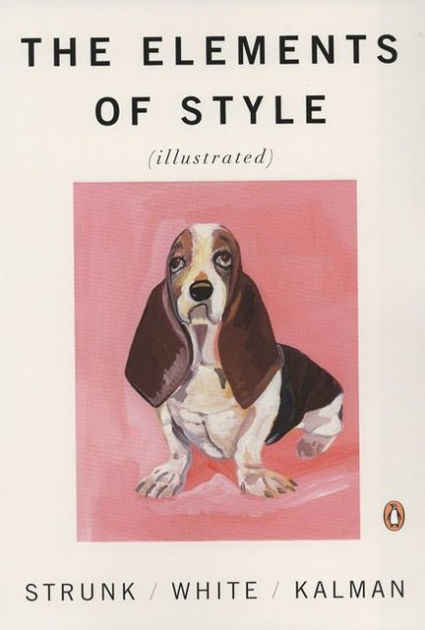
A perfect resource for visual learners, this illustrated edition of The Elements of Style has taken the classic style manual to a new, more accessible level but kept its main tenet intact: make every word tell. The written content by Strunk and White has long been referred to as an outline of the basic principles of style. Maira Kalman’s illustrations elevate the experience and make it a feast for both the mind and the eye.
From the book: “A sentence should contain no unnecessary words, a paragraph no unnecessary sentences, for the same reason that a drawing should have no unnecessary lines and a machine no unnecessary parts.”
9. Sin and Syntax by Constance Hale
If you’re looking to bring a bit of spunk into your writing, copy editor Constance Hale may hold the key . Whether you’re writing a work-related email or the next rap anthem, she has one goal: to make creative communication available to everyone by dispelling old writing myths and making every word count. Peppered with writing prompts and challenges, this book will have you itching to put pen to paper.
From the book: “Verbose is not a synonym for literary.”
10. The Sense of Style by Steven Pinker
Combining entertainment with intellectual pursuit, Pinker, a cognitive scientist and dictionary consultant, explores and rethinks language usage in the 21st century . With illustrative examples of both great and not-so-great linguistic constructions, Pinker breaks down the art of writing and gives a gentle but firm nudge in the right direction, towards coherent yet stylish prose. This is not a polemic on the decay of the English language, nor a recitation of pet peeves, but a thoughtful, challenging, and practical take on the science of communication.
From the book: “Why is so much writing so bad, and how can we make it better? Is the English language being corrupted by texting and social media? Do the kids today even care about good writing—and why should we care?”
11. Eats, Shoots, & Leaves: The Zero Tolerance Approach to Punctuation by Lynne Truss
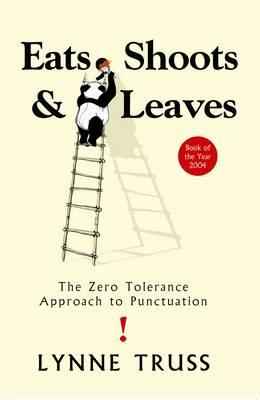
From the book: “A panda walks into a cafe. He orders a sandwich, eats it, then draws a gun and fires two shots in the air. "Why?" asks the confused waiter, as the panda makes towards the exit. The panda produces a badly punctuated wildlife annual and tosses it over his shoulder. "I'm a panda," he says, at the door. "Look it up." The waiter turns to the relevant entry and, sure enough, finds an explanation. Panda. Large black-and-white bear-like mammal, native to China. Eats, shoots and leaves.”
Books about story structure
12. save the cat by blake snyder.
Best known as a screenwriting manual, Save the Cat! is just as often named by authors as one of their most influential books about writing. The title comes from the tried-and-true trope of the protagonist doing something heroic in the first act (such as saving a cat) in order to win over the audience. Yes, it might sound trite to some — but others swear by its bulletproof beat sheet. More recently, there has been Save the Cat! Writes a Novel , which tailors its principles specifically to the literary crowd. (For a concise breakdown of the beat sheet, check this post out!)
From the book: “Because liking the person we go on a journey with is the single most important element in drawing us into the story.”
13. The Story Grid by Shawn Coyne
Shawn Coyne is a veteran editor with over 25 years of publishing experience, and he knows exactly what works and what doesn’t in a story — indeed, he’s pretty much got it down to a science. The Story Grid: What Good Editors Know outlines Coyne’s original “Story Grid” evaluation technique, which both writers and editors can use to appraise, revise, and ultimately improve their writing (in order to get it ready for publication). Coyne and his friend Tim Grahl also co-host the acclaimed Story Grid podcast , another great resource for aspiring writers.
From the book: “The Story Grid is a tool with many applications. It pinpoints problems but does not emotionally abuse the writer… it is a tool to re-envision and resuscitate a seemingly irredeemable pile of paper stuck in an attack drawer, and it can inspire an original creation.”
14. Story Structure Architect by Victoria Schmidt
For those who find the idea of improvising utterly terrifying and prefer the security of structures, this book breaks down just about every kind of story structure you’ve ever heard of . Victoria Schmidt offers no less than fifty-five different creative paths for your story to follow — some of which are more unconventional, or outright outlandish than others. The level of detail here is pretty staggering: Schmidt goes into the various conflicts, subplots, and resolutions these different story structures entail — with plenty of concrete examples! Suffice to say that no matter what kind of story you’re writing, you’ll find a blueprint for it in Story Structure Architect .
From the book: “When you grow up in a Westernized culture, the traditional plot structure becomes so embedded in your subconscious that you may have to work hard to create a plot structure that deviates from it… Understand this and keep your mind open when reading [this book]. Just because a piece doesn’t conform to the model you are used to, does not make it bad or wrong.”
15. The Writer's Journey by Christopher Vogler
Moving on, we hone in on the mythic structure. Vogler’s book, originally published in 1992, is now a modern classic of writing advice; though intended as a screenwriting textbook, its contents apply to any story of mythic proportions. In The Writer’s Journey: Mythic Structure for Writers , Vogler takes a page (literally) from Joseph Campbell’s Hero of a Thousand Faces to ruminate upon the most essential narrative structures and character archetypes of the writing craft. So if you’re thinking of drawing up an epic fantasy series full of those tropes we all know and love , this guide should be right up your alley.
From the book: “The Hero’s Journey is not an invention, but an observation. It is a recognition of a beautiful design… It’s difficult to avoid the sensation that the Hero’s Journey exists somewhere, somehow, as an external reality, a Platonic ideal form, a divine model. From this model, infinite and highly varied copies can be produced, each resonating with the essential spirit of the form.”
16. Story Genius by Lisa Cron
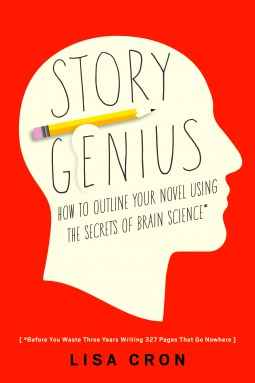
From the book: “We don't turn to story to escape reality. We turn to story to navigate reality.”
17. A Swim in a Pond in the Rain by George Saunders
More than just a New York Times bestseller and the winner of the Booker Prize, A Swim in a Pond in the Rain is a distillation of the MFA class on Russian short stories that Saunders has been teaching. Breaking down narrative functions and why we become immersed in a story, this is a must-read for anyone wanting to understand and nurture our continued need for fiction.
From the book: “We’re going to enter seven fastidiously constructed scale models of the world, made for a specific purpose that our time maybe doesn’t fully endorse but that these writers accepted implicitly as the aim of art—namely, to ask the big questions, questions like, How are we supposed to be living down here? What were we put here to accomplish? What should we value? What is truth, anyway, and how might we recognize it?”
Books about overcoming obstacles as a writer
18. bird by bird by anne lamott .
Like Stephen King’s book about writing craft, this work from acclaimed novelist and nonfiction writer Anne Lamott also fuses elements of a memoir with invaluable advice on the writer’s journey. Particularly known for popularizing the concept of “shitty first drafts”, Bird by Bird was recently recommended by editor Jennifer Hartmann in her Reedsy Live webinar for its outlook take on book writing. She said, “This book does exactly what it says it will do: it teaches you to become a better writer. [Lamott] is funny and witty and very knowledgeable.”
From the book: “Perfectionism is the voice of the oppressor, the enemy of the people. It will keep you cramped and insane your whole life, and it is the main obstacle between you and a shitty first draft.”
19. Take Off Your Pants by Libbie Hawker
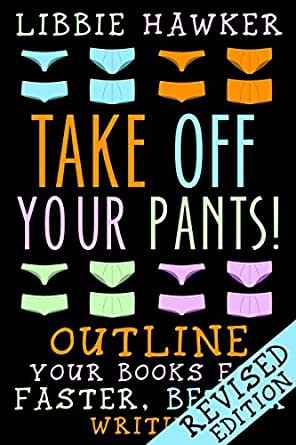
From the book: “When it comes to the eternal quandary of pantsing or plotting, you can keep a foot in each camp. But if your goals will require you to write with speed and confidence, an effective outline will be your best friend.”
20. Writing into the Dark by Dean Wesley Smith
And for those who eschew structure altogether, we’ll now refer you to this title from profile science fiction author Dean Wesley Smith. Having authored a number of official Star Trek novels, he definitely knows what he’s talking about when he encourages writers to go boldly into the unknown with an approach to writing books that doesn’t necessarily involve an elaborate plan. It might not be your action plan, but it can be a fresh perspective to get out of the occasional writer’s block.
From the book: “Imagine if every novel you picked up had a detailed outline of the entire plot… Would you read the novel after reading the outline? Chances are, no. What would be the point? You already know the journey the writer is going to take you on. So, as a writer, why do an outline and then have to spend all that time creating a book you already know?”
21. No Plot, No Problem by Chris Baty
If you’re procrastinating to the point where you haven’t even started your novel yet, NaNoWriMo founder Chris Baty is your guy! No Plot, No Problem is a “low-stress, high-velocity” guide to writing a novel in just 30 days (yup, it’s great prep for the NaNoWriMo challenge). You’ll get tons of tips on how to survive this rigorous process, from taking advantage of your initial momentum to persisting through moments of doubt.
Whether you’re participating in everyone’s favorite November write-a-thon or you just want to bang out a novel that’s been in your head forever, Baty will help you cross that elusive finish line.
From the book: “A rough draft is best written in the steam-cooker of an already busy life. If you have a million things to do, adding item number 1,000,001 is not such a big deal.”
22. The 90-Day Novel by Alan Watt
And for those who think 30 days is a bit too steam cooker-esque, there’s always Alan Watt’s more laid-back option. In The 90-Day Novel , Watt provides a unique three-part process to assist you with your writing. The first part provides assistance in developing your story’s premise, the second part helps you work through obstacles to execute it, and the third part is full of writing exercises to unlock the “primal forces” of your story — in other words, the energy that will invigorate your work and incite readers to devour it like popcorn at the movies.
From the book: “Why we write is as important as what we write. Grammar, punctuation, and syntax are fairly irrelevant in the first draft. Get the story down… fast. Get out of your head, so you can surprise yourself on the page.”
23. The War of Art by Steven Pressfield
If you feel like you’re constantly in the trenches of your “inner creative battle,” The War of Art is the book for you. Pressfield emphasizes the importance of breaking down creative barriers — what he calls “Resistance” — in order to defeat your demons (i.e., procrastination, self-doubt, etc.) and fulfill your potential. Though some of his opinions are no doubt controversial (he makes repeated claims that almost anything can be procrastination, including going to the doctor), this book is the perfect remedy for prevaricating writers who need a little bit of tough love.
From the book: “Most of us have two lives. The life we live, and the unlived life within us. Between the two stands Resistance.”
Free course: Create a Solid Writing Routine
Learn to banish your procrastination gremlins and finish writing your book. Get started now.
Books about writing as a lifestyle and career
24. steal like an artist by austin kleon.
As Kleon notes in the first section of Steal Like an Artist , this title obviously doesn’t refer to plagiarism. Rather, it acknowledges that art cannot be created in a vacuum, and encourages writers (and all other artists) to be open and receptive to all sources of inspiration. By “stealing like an artist,” writers can construct stories that already have a baseline of familiarity for readers, but with new twists that keep them fresh and exciting .
From the book: “If we’re free from the burden of trying to be completely original, we can stop trying to make something out of nothing, and we can embrace influence instead of running away from it.”
25. Mouth Full of Blood by Toni Morrison
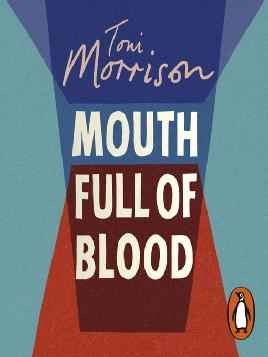
From the book: “A writer's life and work are not a gift to mankind; they are its necessity.”
26. Writing Down the Bones by Natalie Goldberg
No matter what stage you’re at in your writing career, Goldberg’s Writing Down the Bones will help you write more skillfully and creatively. With suggestions, encouragement, and valuable advice on the many aspects of the writing craft, Goldberg doesn’t shy away from making the crucial connection between writing and adding value to your life. Covering a range of topics including taking notes of your initial thoughts, listening, overcoming doubt, choosing where to write, and the selection of your verbs, this guide has plenty to say about the minute details of writing, but excels at exploring the author life.
From the book: “Write what disturbs you, what you fear, what you have not been willing to speak about. Be willing to be split open.”
27. Zen in the Art of Writing by Ray Bradbury
What does it take to become a great author? According to the beloved writer Ray Bradbury, it takes zest, gusto, curiosity, as well as a spirit of adventure. Sharing his wisdom and experiences as one of the most prolific writers in America , Bradbury gives plenty of practical tips and tricks on how to develop ideas, find your voice, and create your own style in this thoughtful volume . In addition to that, this is also an insight into the life and mind of this prolific writer, and a celebration of the act of writing.
From the book: “Every morning I jump out of bed and step on a land mine. The land mine is me. After the explosion, I spend the rest of the day putting the pieces back together. Now, it's your turn. Jump!”
28. The Kite and the String by Alice Mattison
One of the most common dilemmas an author faces is the struggle between spontaneity and control. Literary endeavors need those unexpected light-bulb moments, but a book will never be finished if you rely solely on inspiration. In The Kite and the String , Mattison has heard your cry for help and developed a guide for balancing these elements throughout the different stages of writing a novel or a memoir. Sure, there may be language and grammar rules that govern the way you write, but letting a bit of playfulness breathe life into your writing will see it take off to a whole new level. On the other hand, your writing routine, solitude, audience, and goal-setting will act as the strings that keep you from floating too far away.
From the book: "Don’t make yourself miserable wishing for a kind of success that you wouldn’t enjoy if you had it."
29. How to Become a Successful Indie Author by Craig Martelle
This one’s for all the indie authors out there! Even if you’ve already self-published a book, you can still learn a lot from this guide by Craig Martelle, who has dozens of indie books — “over two and a half million words,” as he puts it — under his belt. With patience and expertise, Martelle walks you through everything you need to know: from developing your premise to perfecting your writing routine, to finally getting your work to the top of the Amazon charts.
From the book: “No matter where you are on your author journey, there’s always a new level you can reach. Roll up your sleeves, because it’s time to get to work.”
Free course: Amazon Algorithms
Send your book to the top of its category by using Amazon's recommendation system to your advantage. Get started now.
30. How to Market a Book by Ricardo Fayet
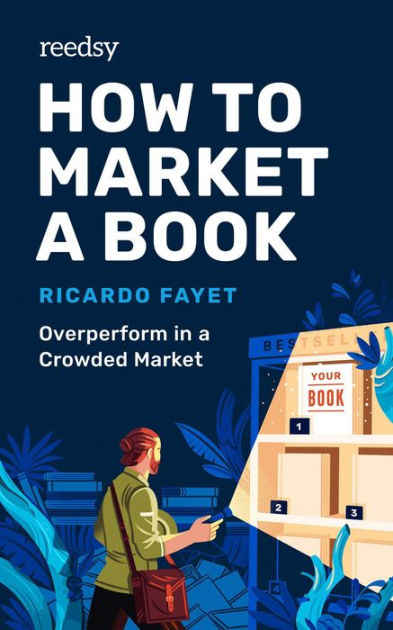
From the book: “Here’s the thing: authors don’t find readers; readers find books . [...] Marketing is not about selling your book to readers. It’s about getting readers to find it.”
31. Everybody Writes by Ann Handley
The full title of Handley’s all-inclusive book on writing is actually Everybody Writes: Your Go-To Guide to Creating Ridiculously Good Content — which should tell you something about its broad appeal. Not only does Handley have some great ideas on how to plan and produce a great story, but she also provides tips on general content writing, which comes in handy when it’s time to build your author platform or a mailing list to promote your book . As such, Everybody Writes is nothing like your other books on novel writing — it’ll make you see writing in a whole new light.
From the book: “In our world, many hold a notion that the ability to write, or write well, is a gift bestowed on a chosen few. That leaves us thinking there are two kinds of people: the writing haves — and the hapless, for whom writing well is a hopeless struggle, like trying to carve marble with a butter knife. But I don’t believe that, and neither should you.”
Free course: Author Mailing Lists
Acquire more readers, sell more books, and make more money with the only indispensable tool in the book marketer's arsenal. Get started now.
Books on writing poetry
32. madness, rack, and honey by mary ruefle.
With a long history of crafting and lecturing about poetry, Ruefle invites the reader of Madness, Rack, and Honey to immerse themselves into its beauty and magic. In a powerful combination of lectures and musings, she expertly explores the mind and craft of writers while excavating the magical potential of poetry. Often a struggle between giving and taking, poetry is, according to Ruefle, a unique art form that reveals the innermost workings of the human heart.
From the book: “In one sense, reading is a great waste of time. In another sense, it is a great extension of time, a way for one person to live a thousand and one lives in a single lifespan, to watch the great impersonal universe at work again and again”
33. Threads by Sandeep Parmar, Nisha Ramayya, and Bhanu Kapil
If you’re looking for something that explores the philosophical aspects of writing, Threads asks big questions about writing and the position of the writer in an industry that has largely excluded marginalized voices. Where does the writer exist in relation to its text and, particularly in the case of poetry, who is the “I”? Examining the common white, British, male lens, this collection of short essays will make it hard for you not to critically consider your own perceptions and how they affect your writing process.
From the book: “It is impossible to consider the lyric without fully interrogating its inherent promise of universality, its coded whiteness.”
34. The Hatred of Poetry by Ben Lerner
Despite its eye-catching title, this short essay is actually a defense of poetry. Lerner begins with his own hatred of the art form, and then moves on to explore this love-hate dichotomy that actually doesn’t seem to be contradictory. Rather, such a multitude of emotions might be one of the reasons that writers and readers alike turn to it. With its ability to evoke feelings and responses through word-play and meter, poetry has often been misconceived as inaccessible and elitist; this is a call to change that perception.
From the book: “All I ask the haters — and I, too, am one — is that they strive to perfect their contempt, even consider bringing it to bear on poems, where it will be deepened, not dispelled, and where, by creating a place for possibility and present absences (like unheard melodies), it might come to resemble love.”
35. Poemcrazy by Susan G. Wooldridge
If you’ve ever felt that the mysterious workings of poetry are out of your reach and expressly not for you, Wooldridge is here to tell you that anyone who wants to can write poetry. An experienced workshop leader, she will help you find your inner voice and to express it through the written word . Giving you advice on how to think, use your senses, and practice your writing, Wooldrige will have you putting down rhyme schemes before you know it.
From the book: “Writing a poem is a form of listening, helping me discover what's wrong or frightening in my world as well as what delights me.”
36. Writing Better Lyrics by Pat Pattison
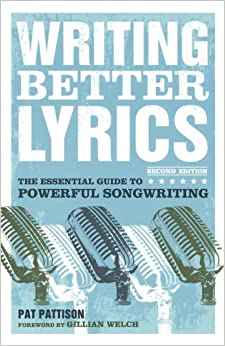
From the book: “Don't be afraid to write crap — it makes the best fertilizer. The more of it you write, the better your chances are of growing something wonderful.”
Books about writing nonfiction
37. on writing well by william zinsser.
Going strong with its 30th-anniversary edition, On Writing Well: The Classic Guide to Writing Nonfiction is an evergreen resource for nonfiction writers which breaks down the fundamental principles of written communication. As a bonus, the insights and guidelines in this book can certainly be applied to most forms of writing, from interviewing to camp-fire storytelling. Beyond giving tips on how to stay consistent in your writing and voice, how to edit, and how to avoid common pitfalls, Zinsser can also help you grow as a professional writer, strengthening your career and taking steps in a new direction.
From the book: “Don’t try to visualize the great mass audience. There is no such audience—every reader is a different person.”
38. Essays by Lydia Davis
Ironically enough, this rather lengthy book is a celebration of brevity. As one of the leading American voices in flash-fiction and short-form writing, Davis traces her literary roots and inspirations in essays on everything, ranging from the mastodonic work of Proust to minimalism. In both her translations and her own writing, she celebrates experimental writing that stretches the boundaries of language. Playing with the contrast between what is said and what is not, this collection of essays is another tool to the writing shed to help you feel and use the power of every word you write.
From the book: “Free yourself of your device, for at least certain hours of the day — or at the very least one hour. Learn to be alone, all alone, without people, and without a device that is turned on. Learn to experience the purity of that kind of concentration. Develop focus, learn to focus intently on one thing, uninterrupted, for a long time.”
39. Essayism by Brian Dillon
In this volume , Dillon explores the often overlooked genre of essay writing and its place in literature’s past, present, and future. He argues that essays are an “experiment in attention” but also highlights how and why certain essays have directly impacted the development of the cultural and political landscape, from the end of the Middle Ages until the present day. At its heart, despite its many forms, subject areas, and purposes, essayism has its root in self-exploration. Dip in and out of Dillon’s short texts to find inspiration for your own nonfiction writing.
From the book: “What exactly do I mean, even, by 'style'? Perhaps it is nothing but an urge, an aspiration, a clumsy access of admiration, a crush.”
40. Naked, Drunk, and Writing by Adair Lara
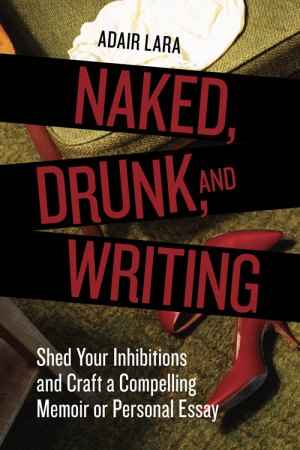
From the book: “Write it down. Whatever it is, write it down. Chip it into marble. Type it into Microsoft Word. Spell it out in seaweeds on the shore. We are each of us an endangered species, delicate as unicorns.”
With a few of these books in your arsenal, you’ll be penning perfect plots in no time! And if you’re interested in learning more about the editing process, check our post on books on editing next!
ZUrlocker says:
11/03/2019 – 19:46
I'm familiar with several of these books. But for new authors, I urge you caution. It is very tempting to read so many books about writing that you never get around to writing. (I did this successfully for many years!) So I will suggest paring it down to just two books: Stephen King on Writing and Blake Snyder Save the Cat. Snyder's book is mostly about screenwriting, so you could also consider Save the Cat Writes a Novel by Jessica Brody. Best of luck!
Comments are currently closed.
Continue reading
Recommended posts from the Reedsy Blog
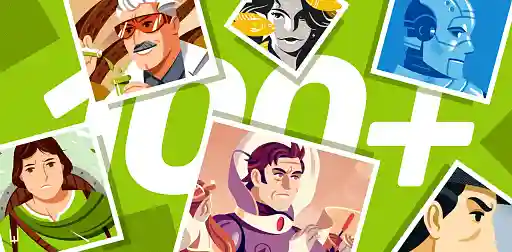
100+ Character Ideas (and How to Come Up With Your Own)
Character creation can be challenging. To help spark your creativity, here’s a list of 100+ character ideas, along with tips on how to come up with your own.
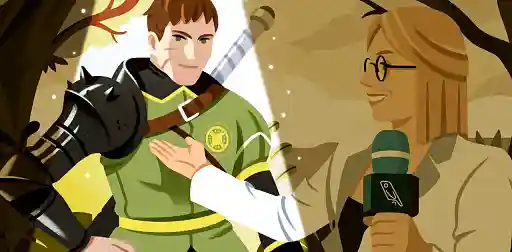
How to Introduce a Character: 8 Tips To Hook Readers In
Introducing characters is an art, and these eight tips and examples will help you master it.

450+ Powerful Adjectives to Describe a Person (With Examples)
Want a handy list to help you bring your characters to life? Discover words that describe physical attributes, dispositions, and emotions.
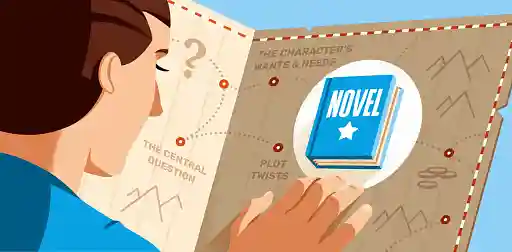
How to Plot a Novel Like a NYT Bestselling Author
Need to plot your novel? Follow these 7 steps from New York Times bestselling author Caroline Leavitt.
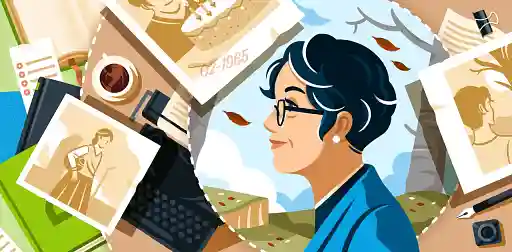
How to Write an Autobiography: The Story of Your Life
Want to write your autobiography but aren’t sure where to start? This step-by-step guide will take you from opening lines to publishing it for everyone to read.

What is the Climax of a Story? Examples & Tips
The climax is perhaps a story's most crucial moment, but many writers struggle to stick the landing. Let's see what makes for a great story climax.
Join a community of over 1 million authors
Reedsy is more than just a blog. Become a member today to discover how we can help you publish a beautiful book.
We have an app for that
Build a writing routine with our free writing app.

1 million authors trust the professionals on Reedsy. Come meet them.
Enter your email or get started with a social account:
- Writing, Research & Publishing Guides
Sorry, there was a problem.

Download the free Kindle app and start reading Kindle books instantly on your smartphone, tablet, or computer - no Kindle device required .
Read instantly on your browser with Kindle for Web.
Using your mobile phone camera - scan the code below and download the Kindle app.

Image Unavailable

- To view this video download Flash Player
Follow the author

The Making of a Story: A Norton Guide to Creative Writing Reprint Edition
A Los Angeles Times bestseller: wonderfully lucid and illuminating, Alice LaPlante’s guide to writing fiction “recalls Francine Prose’s bestseller, Reading Like a Writer ” ( Library Journal ).
- ISBN-10 0393337081
- ISBN-13 978-0393337082
- Edition Reprint
- Publisher W. W. Norton & Company
- Publication date January 11, 2010
- Language English
- Dimensions 6.1 x 1.8 x 9.3 inches
- Print length 677 pages
- See all details
More items to explore

Editorial Reviews
About the author, product details.
- Publisher : W. W. Norton & Company; Reprint edition (January 11, 2010)
- Language : English
- Paperback : 677 pages
- ISBN-10 : 0393337081
- ISBN-13 : 978-0393337082
- Item Weight : 1.7 pounds
- Dimensions : 6.1 x 1.8 x 9.3 inches
- #19 in Writing Skill Reference (Books)
- #26 in Words, Language & Grammar Reference
- #37 in Fiction Writing Reference (Books)
Videos for this product

Click to play video

Excellent resource for the creative writing teacher/student
TheEnglishTeacher

About the author
Alice laplante.
Discover more of the author’s books, see similar authors, read author blogs and more
Products related to this item

Related books

Customer reviews
- 5 star 4 star 3 star 2 star 1 star 5 star 79% 12% 5% 2% 2% 79%
- 5 star 4 star 3 star 2 star 1 star 4 star 79% 12% 5% 2% 2% 12%
- 5 star 4 star 3 star 2 star 1 star 3 star 79% 12% 5% 2% 2% 5%
- 5 star 4 star 3 star 2 star 1 star 2 star 79% 12% 5% 2% 2% 2%
- 5 star 4 star 3 star 2 star 1 star 1 star 79% 12% 5% 2% 2% 2%
Customer Reviews, including Product Star Ratings help customers to learn more about the product and decide whether it is the right product for them.
To calculate the overall star rating and percentage breakdown by star, we don’t use a simple average. Instead, our system considers things like how recent a review is and if the reviewer bought the item on Amazon. It also analyzed reviews to verify trustworthiness.
Customers say
Customers find the book immensely useful and say each chapter presents a clearly explained writing concept with spot-on examples. They also appreciate the great collection of stories and the wonderful writing text.
AI-generated from the text of customer reviews
Customers find the book readable, insightful, and well structured. They say the examples are clear and the book is immensely useful. Readers also enjoy the beginning and like the exercises. They mention that it has great information that is missing from most how-to-write books.
"...I enjoyed this book, I like the exercises. End of the book there was a glossary , bibliography, and a list of stories and permissions that were used..." Read more
"THIS BOOK WAS WELL DETAILED AND THOUGHTFULWELL WORTH THE INVESTMENT" Read more
"...Though the length may seem intimidating, the author writes clearly and concisely ." Read more
"...It has great information that is missing from most how-to-write books. Like when Show-Don't-Tell is not necessarily the best advice!..." Read more
Customers find the storytelling in the book great.
"...End of the book there was a glossary, bibliography, and a list of stories and permissions that were used in the book." Read more
"This was written as a textbook, so it includes both narrative advice , and reading exercises and such...." Read more
"...The exercises are helpful and the short stories are varied and sensitively chosen...." Read more
"...That alone introduced me to several amazing short stories , including "Sonny's Blues" by James Baldwin and "The Lady with the Little Dog" by Anton..." Read more
Customers find the writing style wonderful and splendid. They also mention that they're using it in a community college class.
"...This is the book for you. It is very well written and the examples are great. My favorite are the exercises that really make you dig deep." Read more
"I bought this for a creative writing class and it’s very insightful, well-written , and the sample stories are all great examples for the elements of..." Read more
"...and exercises to help the creative process, it's concise and well written , reads easily at reader's pace. Great learning tool" Read more
" Wonderful writing text . I'm using it in a community college class. The instructor really likes it, too!" Read more
Customers find the book worth the price.
"THIS BOOK WAS WELL DETAILED AND THOUGHTFUL WELL WORTH THE INVESTMENT " Read more
"The Making of A Story is one of the best books on writing. It is worth every penny ...." Read more
"...But the price different is astounding for basically the same book. All my short story writing friends have purchased this." Read more
" Worth the price not just for book enthusiasts not everyone" Read more
Reviews with images

Ideal for a writer enthusiast!

- Sort reviews by Top reviews Most recent Top reviews
Top reviews from the United States
There was a problem filtering reviews right now. please try again later..
Top reviews from other countries
- About Amazon
- Investor Relations
- Amazon Devices
- Amazon Science
- Sell products on Amazon
- Sell on Amazon Business
- Sell apps on Amazon
- Become an Affiliate
- Advertise Your Products
- Self-Publish with Us
- Host an Amazon Hub
- › See More Make Money with Us
- Amazon Business Card
- Shop with Points
- Reload Your Balance
- Amazon Currency Converter
- Amazon and COVID-19
- Your Account
- Your Orders
- Shipping Rates & Policies
- Returns & Replacements
- Manage Your Content and Devices
- Conditions of Use
- Privacy Notice
- Consumer Health Data Privacy Disclosure
- Your Ads Privacy Choices

Hemingway's Books and Records
Creative Writing Books: A Curated 2024 Updated List
If you’re a writer looking to sharpen your skills, you’ll want to check out these 20 best books about creative writing. Whether you’re a seasoned novelist or just starting out, these books on creative writing offer valuable insights, exercises, and inspiration to help you unleash your creativity and improve your writing craft. From classic guides to contemporary must-reads, this list has something for every aspiring writer. Let’s dive into the world of creative writing books and discover the essential tools for honing your literary talent.
- 1 20 Best Books About Creative Writing
- 2 On Writing: A Memoir of the Craft
- 3 Bird by Bird: Some Instructions on Writing and Life
- 4 The Elements of Style
- 5 Big Magic: Creative Living Beyond Fear
- 6 The Writing Life
- 7 Zen in the Art of Writing
- 8 The Artist’s Way: A Spiritual Path to Higher Creativity
- 9 Writing Down the Bones: Freeing the Writer Within
- 10 The War of Art: Break Through the Blocks and Win Your Inner Creative Battles
- 11 The Creative Habit: Learn It and Use It for Life
- 12 The Right to Write: An Invitation and Initiation into the Writing Life
- 13 The Writing Book: A Workbook for Fiction Writers
- 14 The Art of Fiction: Notes on Craft for Young Writers
- 15 The Writing Life: Writers on How They Think and Work
- 16 The Creative Writer’s Survival Guide: Advice from an Unrepentant Novelist
- 17 The Making of a Story: A Norton Guide to Creative Writing
- 18 The Art of X-Ray Reading: How the Secrets of 25 Great Works of Literature Will Improve Your Writing
- 19 Steering the Craft: A Twenty-First-Century Guide to Sailing the Sea of Story
- 20 Story: Substance, Structure, Style, and the Principles of Screenwriting
- 21 The War of Art: Break Through the Blocks & Win Your Inner Creative Battles
- 22 Conclusion
20 Best Books About Creative Writing

See Best Deals
On Writing: A Memoir of the Craft
By stephen king.
On Writing: A Memoir of the Craft is a captivating book about the art of storytelling and the life of a prolific writer, Stephen King . In this compelling memoir, King shares his personal journey as a writer, from his early struggles to his eventual success. The book provides invaluable insights into the creative process, offering practical advice on honing one’s craft and developing a unique voice. King’s honest and straightforward narrative style makes this book about creative writing both informative and entertaining. Whether you’re an aspiring writer or a fan of King’s work, this creative writing book is a must-read for anyone interested in the art and craft of storytelling.

Bird by Bird: Some Instructions on Writing and Life
By anne lamott.
Bird by Bird: Some Instructions on Writing and Life by Anne Lamott is a beloved book on creative writing that offers practical advice and humorous insights for aspiring writers. Lamott shares her personal experiences and wisdom on the creative process, tackling self-doubt, and finding inspiration. The book about creative writing encourages writers to embrace their imperfections and to approach their work with patience and perseverance. With its warm and candid tone, this creative writing book is an invaluable resource for anyone looking to navigate the challenges of the writing life while honing their craft. Whether you’re a seasoned writer or just starting out, Bird by Bird provides a wealth of encouragement and guidance for the creative journey.

The Elements of Style
By william strunk jr. and e.b. white.
The Elements of Style, written by William Strunk Jr. and later revised and expanded by E.B. White, is a classic book on creative writing. This timeless guidebook is essential for anyone looking to improve their writing skills. It covers everything from grammar and punctuation to style and composition, providing clear and practical advice for crafting clear and impactful prose. The book about creative writing is concise and easy to follow, making it a valuable resource for writers of all levels. Whether you’re a student, professional writer, or just someone who wants to communicate more effectively, The Elements of Style is an indispensable tool for honing your craft and mastering the art of storytelling.
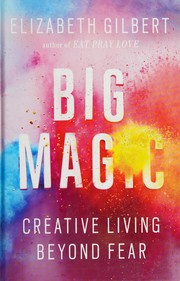
Big Magic: Creative Living Beyond Fear
By elizabeth gilbert.
Big Magic: Creative Living Beyond Fear by Elizabeth Gilbert is a captivating book about creative writing. Gilbert, the author of Eat, Pray, Love, explores the mysterious and inspiring world of creativity in this book. She shares her wisdom and insights on how to live a creative life without succumbing to fear. With a blend of personal anecdotes, practical advice, and profound observations, Gilbert encourages readers to embrace their curiosity, let go of perfectionism, and pursue their creative passions wholeheartedly. Whether you’re a writer, artist, or simply someone who craves a more fulfilling and imaginative life, this creative writing book offers a fresh perspective on the creative process and the courage required to bring your ideas to life. Big Magic is a must-read for anyone seeking inspiration and guidance on their creative journey.
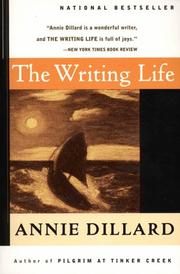
The Writing Life
By annie dillard.
The Writing Life by Annie Dillard is a captivating book on creative writing that takes readers on a journey into the world of writing. Dillard offers a unique perspective on the challenges and rewards of the writing life, drawing from her own experiences as a renowned author. Through beautiful prose and insightful observations, she explores the craft of writing, the solitary nature of the creative process, and the relentless pursuit of perfection. This book about creative writing is filled with wisdom and inspiration, making it a must-read for aspiring writers and anyone interested in the art of storytelling. Dillard’s eloquent reflections will resonate with anyone who has ever grappled with the complexities of the writing life, making it an essential addition to any writer’s library.

Zen in the Art of Writing
By ray bradbury.
Zen in the Art of Writing by Ray Bradbury is a timeless classic that delves into the essence of the creative process. This book about creative writing is a collection of essays that offer insights, encouragement, and practical advice for aspiring writers. Bradbury’s passion for storytelling and his unique approach to the craft of writing are evident in every page, making it a must-read for anyone interested in honing their craft. Through his vivid prose and heartfelt anecdotes, he inspires readers to embrace their creativity and pursue their writing dreams with zeal. Zen in the Art of Writing is a captivating and enlightening guide that celebrates the joy and magic of the written word, making it an essential addition to any writer’s bookshelf.
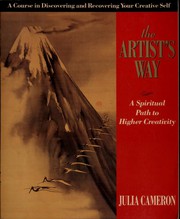
The Artist’s Way: A Spiritual Path to Higher Creativity
By julia cameron.
The Artist’s Way by Julia Cameron is a transformative book on creative writing that guides readers on a spiritual journey to unlock their creativity. Cameron presents a 12-week program designed to help individuals overcome creative blocks, self-doubt, and fear, and tap into their innate creativity. Through a series of exercises and reflections, readers learn to cultivate a sense of curiosity, playfulness, and self-expression to unleash their creative potential. With its practical techniques and insightful wisdom, this book about creative writing has been a go-to resource for artists, writers, and anyone seeking to live a more creative and fulfilling life. The Artist’s Way is a must-read for anyone looking to reignite their passion for creative expression and reconnect with their artistic side.
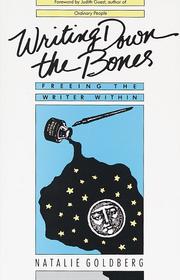
Writing Down the Bones: Freeing the Writer Within
By natalie goldberg.
Writing Down the Bones: Freeing the Writer Within by Natalie Goldberg is a beloved book on creative writing that has inspired countless writers to tap into their creativity and find their authentic voice. In this classic book about creative writing, Goldberg shares her wisdom and experience as a writer and writing teacher, offering practical advice and insightful exercises to help writers overcome self-doubt and unleash their creativity. Through her candid and engaging writing style, she encourages readers to embrace the practice of writing as a way of life, emphasizing the importance of discipline, observation, and fearlessness. Whether you’re a seasoned writer or just starting out, this creative writing book is a valuable resource for anyone looking to deepen their connection to the written word and cultivate a more meaningful and fulfilling writing practice.
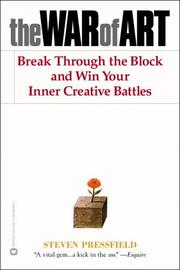
The War of Art: Break Through the Blocks and Win Your Inner Creative Battles
By steven pressfield.
The War of Art by Steven Pressfield is a powerful and inspiring book about the challenges and obstacles that creative individuals face in their pursuit of artistic expression. Pressfield delves into the concept of ‘resistance’ – the internal force that prevents us from reaching our true creative potential. Through a series of insightful essays, he provides valuable advice on how to overcome this resistance and break through the barriers that hinder our creativity. This book is a must-read for anyone struggling with their creative endeavors, as it offers practical strategies and encouragement to help readers win their inner creative battles. Whether you’re a writer, artist, musician, or any other type of creative professional, The War of Art is an essential resource for understanding and conquering the obstacles that stand in the way of your artistic fulfillment.
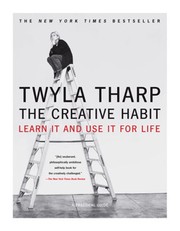
The Creative Habit: Learn It and Use It for Life
By twyla tharp.
The Creative Habit by Twyla Tharp is a must-read for anyone looking to enhance their artistic practice. This insightful book on creative writing delves into the habits and routines that can cultivate creativity for a lifetime. Twyla Tharp, a renowned choreographer, shares her personal experiences and provides practical advice on how to harness creativity through discipline and dedication. She emphasizes the importance of establishing a daily routine and developing rituals to spark inspiration. Tharp’s unique perspective and engaging writing style make this a valuable resource for both aspiring and experienced creators. Whether you’re a writer, artist, or musician, this book about creative writing will inspire you to tap into your creative potential and establish a sustainable creative practice.
Recommended for you:

The Right to Write: An Invitation and Initiation into the Writing Life
The Right to Write: An Invitation and Initiation into the Writing Life by Julia Cameron is a compelling and inspiring book about creative writing. Cameron, known for her bestseller The Artist’s Way, encourages readers to embrace their natural creativity and overcome the fear of writing. She provides practical exercises and insights to help aspiring writers unlock their potential and find their unique voice. The book explores the joy of creative writing and the importance of self-expression, offering guidance on how to cultivate a regular writing practice and overcome common obstacles. With warmth and wisdom, Cameron invites readers to explore the power of writing and discover the transformative impact it can have on their lives. Whether you’re a seasoned writer or just starting out, The Right to Write is a valuable resource for anyone looking to unleash their creativity and embrace the writing life.
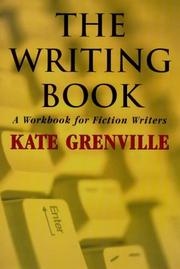
The Writing Book: A Workbook for Fiction Writers
By kate grenville.
The Writing Book: A Workbook for Fiction Writers by Kate Grenville is a comprehensive guide for aspiring writers looking to enhance their storytelling skills. This book on creative writing offers practical exercises and insightful advice to help writers develop their craft and create compelling works of fiction. Grenville’s approach is both informative and engaging, providing valuable techniques for character development, plot structure, and narrative voice. Whether you’re a beginner or seasoned writer, this book about creative writing is a valuable resource for honing your skills and unleashing your creativity. With its practical exercises and expert guidance, The Writing Book is a must-have for anyone looking to elevate their storytelling abilities and produce captivating fiction.

The Art of Fiction: Notes on Craft for Young Writers
By john gardner.
The Art of Fiction: Notes on Craft for Young Writers by John Gardner is a classic book on creative writing that provides insightful guidance for aspiring writers. Gardner, a renowned novelist and writing instructor, delves into the essential elements of storytelling, such as character development, plot structure, and narrative craft. Through clear and practical advice, he offers valuable tips for honing one’s writing skills and creating compelling fiction. This book about creative writing is a treasure trove of wisdom for writers of all levels, as Gardner’s engaging prose and thoughtful analysis illuminate the art of storytelling. Whether you’re a novice writer seeking guidance or a seasoned wordsmith looking to refine your craft, The Art of Fiction is an indispensable resource for anyone passionate about the creative writing process.
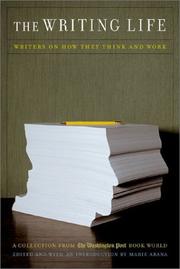
The Writing Life: Writers on How They Think and Work
By marie arana.
The Writing Life: Writers on How They Think and Work by Marie Arana is a captivating book about creative writing that offers a rare glimpse into the minds of some of the world’s most renowned authors. Through a series of intimate interviews, Arana explores the writing process and the various techniques and rituals that different writers employ to bring their stories to life. The book delves into the creative process and provides valuable insights and inspiration for aspiring writers. It’s a must-read for anyone interested in the writing craft and the inner workings of the literary mind. The Writing Life is a treasure trove of wisdom and advice from some of the literary world’s most esteemed figures, making it an essential addition to any creative writing book collection.
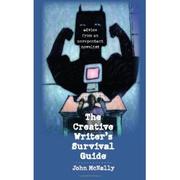
The Creative Writer’s Survival Guide: Advice from an Unrepentant Novelist
By john mcnally.
The Creative Writer’s Survival Guide: Advice from an Unrepentant Novelist by John McNally is a treasure trove for aspiring writers. This book on creative writing is filled with valuable tips and insights on the craft of storytelling, character development, and navigating the publishing industry. McNally, an accomplished novelist, shares his wisdom with wit and candor, making this a must-read for anyone serious about honing their writing skills. Whether you’re struggling with writer’s block or seeking guidance on the business side of publishing, this book about creative writing has got you covered. McNally’s unapologetic approach to the art of writing is both refreshing and inspiring, making this creative writing book a valuable resource for writers at any stage of their journey.

The Making of a Story: A Norton Guide to Creative Writing
By alice laplante.
The Making of a Story: A Norton Guide to Creative Writing by Alice LaPlante is a comprehensive and insightful book on the craft of storytelling. LaPlante offers practical advice and exercises for writers of all levels, covering the essential elements of fiction, such as character development, plot structure, and dialogue. What sets this book about creative writing apart is its emphasis on the psychology of storytelling, delving into the motivations and intentions behind a writer’s creative choices. LaPlante’s engaging and accessible style makes this creative writing book a valuable resource for aspiring writers looking to hone their skills and deepen their understanding of the storytelling process. Whether you’re a beginner or an experienced writer, The Making of a Story provides the tools and inspiration needed to embark on a literary journey.

The Art of X-Ray Reading: How the Secrets of 25 Great Works of Literature Will Improve Your Writing
By roy peter clark.
The Art of X-Ray Reading by Roy Peter Clark is a captivating book on creative writing that offers a unique approach to dissecting and understanding literature. Through the analysis of 25 classic works of literature, Clark reveals the hidden techniques and secrets that great writers use to captivate their readers. By delving into the subtext, structure, and language of these works, he provides valuable insights and practical tips that can help writers improve their own craft. This creative writing book is not just about creative writing; it’s about learning to read like a writer, to see beyond the surface and uncover the deeper layers of meaning and technique. Whether you’re an aspiring writer looking to enhance your skills or a literature enthusiast eager to gain a deeper appreciation for the art of storytelling, The Art of X-Ray Reading is a must-read.
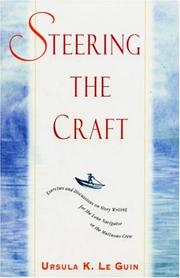
Steering the Craft: A Twenty-First-Century Guide to Sailing the Sea of Story
By ursula k. le guin.
Steering the Craft is a renowned book on creative writing written by the legendary Ursula K. Le Guin . This comprehensive and engaging book about creative writing provides valuable insights and techniques for navigating the complexities of storytelling. Le Guin’s expertise and passion for the craft shine through as she delves into the essential elements of writing, such as voice, style, and point of view. Through thought-provoking exercises and illuminating examples, she guides writers on a transformative journey through the sea of story, empowering them to hone their skills and craft compelling narratives. Whether you’re a novice writer or a seasoned wordsmith, this creative writing book is an indispensable resource that will inspire and elevate your storytelling prowess.
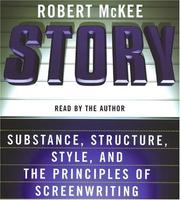
Story: Substance, Structure, Style, and the Principles of Screenwriting
By robert mckee.
Robert McKee’s “Story: Substance, Structure, Style, and the Principles of Screenwriting” is a renowned book on creative writing that delves into the art of crafting compelling narratives. McKee provides a comprehensive overview of the principles of storytelling, exploring the essential elements of substance, structure, and style. With a focus on screenwriting, the book offers valuable insights into character development, plot construction, and dialogue, making it an indispensable resource for writers looking to enhance their storytelling skills. McKee’s engaging writing style and in-depth analysis of successful storytelling make this book about creative writing a must-read for aspiring writers and seasoned authors alike. Whether you’re a screenwriter, novelist, or simply passionate about the craft of storytelling, “Story” is a creative writing book that will inspire and inform your writing journey.

The War of Art: Break Through the Blocks & Win Your Inner Creative Battles
The War of Art by Steven Pressfield is a powerful and inspiring book on creative writing that delves into the internal battles faced by every artist. Pressfield identifies the enemy as Resistance, which manifests as self-doubt, procrastination, and fear of failure. He presents practical strategies to overcome Resistance and unleash one’s creative potential. The book offers a no-nonsense approach to tackling the obstacles that stand in the way of artistic expression, making it a must-read for anyone struggling with their creative endeavors. With its profound insights and motivational tone, this book about creative writing is a valuable resource for writers, artists, and anyone seeking to break through their inner creative battles and fulfill their creative potential.
In conclusion, the world of Creative Writing is vast and diverse, and there are countless books about creative writing that can inspire and guide both aspiring and seasoned writers. Whether you’re looking for practical advice, creative prompts, or insight into the writing process, the 20 books listed in this article are excellent resources to add to your reading list. From classic texts to contemporary guides, there’s something for every writer to explore and learn from. Happy reading and happy writing!
Which Creative Writing book is best?
The best book on Creative Writing can vary with personal preference, but three widely recommended titles are:
- On Writing: A Memoir of the Craft by Stephen King ,
- Bird by Bird: Some Instructions on Writing and Life by Anne Lamott ,
- The Elements of Style by William Strunk Jr. and E.B. White .
Each offers valuable insights and could be a great starting point.
What are the best books to learn about Creative Writing?
For those looking to learn about Creative Writing, there is a wealth of literature that can provide a comprehensive understanding of the subject. Some of the most highly recommended books include:
- The Elements of Style by William Strunk Jr. and E.B. White ,
- Big Magic: Creative Living Beyond Fear by Elizabeth Gilbert ,
- The Writing Life by Annie Dillard ,
- Zen in the Art of Writing by Ray Bradbury ,
- The Artist’s Way: A Spiritual Path to Higher Creativity by Julia Cameron ,
- Writing Down the Bones: Freeing the Writer Within by Natalie Goldberg ,
- The War of Art: Break Through the Blocks and Win Your Inner Creative Battles by Steven Pressfield ,
- The Creative Habit: Learn It and Use It for Life by Twyla Tharp
These books offer a range of perspectives on Creative Writing, covering various aspects and approaches to the subject.
What are the best books on Creative Writing?
The best books on Creative Writing include:
- The Right to Write: An Invitation and Initiation into the Writing Life by Julia Cameron ,
- The Writing Book: A Workbook for Fiction Writers by Kate Grenville ,
- Zen in the Art of Writing by Ray Bradbury .
Each offers unique insights into the subject. While these books on the topic of Creative Writing are highly regarded, it’s important to note that any list of ‘best’ books is subjective and reflects a range of opinions.
What are the best Creative Writing books of all time?
Choosing the best Creative Writing books of all time can vary depending on who you ask, but seven titles that are often celebrated include
- The Creative Habit: Learn It and Use It for Life by Twyla Tharp ,
- and The Right to Write: An Invitation and Initiation into the Writing Life by Julia Cameron .
Each of these books has made a significant impact in the field of Creative Writing and continues to be influential today.
Related posts:
11 Best Creative Writing Books (Fiction & Non-Fiction Picks)
Writing is a craft, and like any craft, it requires practice. Aspiring writers need to hone their skills to express their ideas and imagination in a meaningful way. Creative writing books can be a great instrument in helping newbie writers grow and succeed. In this article, we will highlight the best creative writing books for aspiring writers, with fiction and non-fiction genres shown separately below.
Why Creative Writing Books Are Essential for Aspiring Writers
Aspiring writers sometimes struggle to find their voice and develop their skills. It’s essential to understand that writing is a lifelong learning process. Creative writing books can offer guidance and insights into the craft, providing an opportunity for writers to expand their knowledge and develop their skills. These books can help you learn writing techniques, inspire your creativity, and guide you through the publishing process.
Enhancing your writing skills
Have you ever read something and became mesmerized by the prose? Acclaimed authors have developed their writing skills through years of practice. Yet, with the right tools and guidance, aspiring authors can master these skills much faster. Some of the best creative writing books offer insights on grammar and style that can enhance your writing skills.
For example, sifting through “ The Elements of Style ” by William Strunk Jr. and E.B. White can help in grammar and guide you in using figures of speech appropriately. This classic book teaches you how to structure your sentences and essays, ideal for writers looking to add a polished finish to their writing skills. Similarly, “ On Writing Well ” by William Zinsser guides writers on how to develop their voice, rhythm, and flow – which are all vital elements in improving writing skills.
Another excellent book that can help you enhance your writing skills is “ Bird by Bird ” by Anne Lamott. This book is full of practical advice and exercises that can help you develop your writing skills. Lamott’s humorous and engaging style makes it an enjoyable read, making it easier to digest the information and apply it to your writing.
Expanding your imagination
Creative writing books not only help you develop your writing skills, but they can also expand your imagination, which is the heart of any great piece of writing. They allow you to explore different worlds and narratives, learn how to describe settings and characters, and master the art of symbolism and metaphor. A great example of a book that can help with this is “ Writing Down the Bones ” by Natalie Goldberg. In this book, Goldberg shares effective techniques to free your mind of any mental barriers and open up your imagination. Through her prompts and writing exercises, Goldberg encourages writers to explore their creative ideas and urges them to take their writing to new heights.
Another book that can help you expand your imagination is “ The Creative Habit ” by Twyla Tharp. Tharp is a renowned choreographer, but her book is not just for dancers. It’s a practical guide to cultivating creativity in any field, including writing. Tharp shares her methods for developing creative habits, such as setting aside time for creativity and finding inspiration in unexpected places.
Learning from the experts
One of the best ways to improve your writing is to read works from successful authors. However, in addition to reading books, you can also learn from the writers themselves by reading their experiences and insights on writing. Through their personal journeys, published writers can offer insight into the industry and what it takes to become a successful author.
For instance, the book “ The Writing Life ” by Annie Dillard delves into the raw and honest realities of being a writer. It’s a must-read for aspiring writers looking for inspiration and guidance, as Dillard offers a unique perspective on the craft of writing. Similarly, “ The Art of Memoir ” by Mary Karr details how to write vivid memoirs, with honest and sometimes painful hints of Karr’s own journey.
Another book that can offer insights into the publishing industry is “ On Writing” by Stephen King. In this memoir, King shares his journey to becoming a successful writer and offers practical advice on writing and publishing. King’s candid and straightforward approach makes it an entertaining and informative read.
Overall, creative writing books are essential for aspiring writers who want to develop their skills, expand their imagination, and learn from successful authors. With the right guidance and tools, you can improve your writing and take your craft to the next level.
Top Fiction Writing Books
Writing fiction is an art that requires skill, creativity, and dedication. Whether you’re a beginner or an experienced writer, there are always ways to improve your craft. Reading books on writing can be a great way to gain new insights and techniques that can help you become a better writer. Here are the top 5 fiction writing books that every aspiring writer should read:
“On Writing” by Stephen King
“ On Writing ” by Stephen King is a must-read for any aspiring writer. King shares his personal journey as a writer, from his early struggles to his eventual success. He provides practical advice on everything from grammar and style to the importance of reading and revision. King’s candid and humorous writing style makes this book an enjoyable read that will leave you feeling inspired and motivated to write.
“Bird by Bird” by Anne Lamott
In “ Bird by Bird ,” Anne Lamott offers a refreshing and honest perspective on the writing process. She emphasizes the importance of taking things one step at a time and encourages writers to embrace their imperfections. Lamott’s witty and relatable anecdotes will make you feel like you’re chatting with a friend who understands the struggles of being a writer.
“The Elements of Style” by William Strunk Jr. and E.B. White
“ The Elements of Style ” is a classic writing guide that has stood the test of time. Written by William Strunk Jr. and E.B. White, this book offers practical advice on grammar, style, and usage. It’s a concise and easy-to-read guide that will help you improve your writing skills and make your prose more polished and professional.
“Writing Down the Bones” by Natalie Goldberg
If you’re looking for a book that will help you tap into your creativity, “ Writing Down the Bones ” is the perfect choice. Natalie Goldberg’s book is a collection of short essays that offer practical advice on writing and creativity. She encourages writers to let go of their inhibitions and write freely, without worrying about perfection. Goldberg’s exercises and prompts will help you develop a daily writing practice that can unlock your full creative potential.
“The War of Art” by Steven Pressfield
“ The War of Art ” is a book that every writer should read. Steven Pressfield’s book is a powerful manifesto on the creative process and the obstacles that writers face. He identifies the internal forces of resistance that can prevent writers from pursuing their dreams and offers practical advice on how to overcome them. Pressfield’s book is a call to action for writers who want to take their craft to the next level.
Reading these books will not only improve your writing skills but also provide you with the inspiration and motivation you need to keep writing. Remember, writing is a journey, and every step you take will bring you closer to your goal of becoming a successful writer.
Top Non-Fiction Writing Books
If you’re looking to improve your non-fiction writing skills, you’re in luck. There are many excellent books out there that can help you sharpen your craft and take your writing to the next level. Here are five of the best non-fiction writing books, each with its unique insights and tips.
“The Art of Memoir” by Mary Karr
“ The Art of Memoir ” by Mary Karr is a must-read for anyone interested in writing memoirs. Karr is a master of the genre, and she draws on her own experiences to provide invaluable guidance on how to craft compelling and vivid stories. In this book, Karr explores the dynamics of memory, the challenges of writing about real people, and the importance of honesty and vulnerability in memoir writing. Whether you’re a seasoned writer or just starting, “The Art of Memoir” is an excellent resource for anyone looking to improve their memoir writing skills.
“The Writing Life” by Annie Dillard
“ The Writing Life ” by Annie Dillard is a classic book on the challenges and rewards of being a writer. Dillard shares her own experiences and insights, offering honest and encouraging guidance to anyone looking to make a career out of writing. In this book, Dillard explores the difficulties and struggles involved in the writing process, as well as the joys and rewards of creating something new. Whether you’re a novice or an experienced writer, “The Writing Life” is an inspiring and insightful read.
“On Writing Well” by William Zinsser
“ On Writing Well ” by William Zinsser is one of the best books out there on writing non-fiction. Zinsser lays out guidelines for clear, concise writing, using excellent examples and insights to help writers craft engaging and compelling pieces. In this book, Zinsser covers everything from grammar and syntax to style and voice, offering practical tips and advice for anyone looking to improve their non-fiction writing skills.
“The Right to Write” by Julia Cameron
“ The Right to Write ” by Julia Cameron is an excellent resource for anyone looking to develop a consistent writing habit. Cameron offers practical tips and exercises to help writers find their voice and develop their writing skills. In this book, Cameron explores the importance of cultivating a writing practice, overcoming writer’s block, and finding inspiration in everyday life. Whether you’re a beginner or an experienced writer, “The Right to Write” is an inspiring and practical guide to the writing life.
“The Writer’s Journey” by Christopher Vogler
“ The Writer’s Journey ” by Christopher Vogler is an essential guide for anyone looking to craft engaging non-fiction. Vogler teaches writers how to develop character arcs, build tension, and create compelling stories that keep readers engaged from beginning to end. Whether you’re working on a memoir, a journalistic piece, or any other type of non-fiction, “The Writer’s Journey” is a valuable resource for learning the essential elements of storytelling.
So there you have it – five of the best non-fiction writing books on the market today. Whether you’re a beginner or an experienced writer, these books offer invaluable insights and tips for improving your craft and taking your writing to the next level. So pick up a copy, start reading, and get ready to take your writing to new heights!
The Verdict
There you have it, the best creative writing books for aspiring writers out there. Whether you’re passionate about writing fiction or non-fiction, these books offer valuable tips and insights into how to approach the craft. These books aren’t magical solutions to becoming a writer but are incredibly useful aids in the ongoing process of developing your skills and finding your voice. Investing time in studying these books is worth it for anyone looking to grow and develop as a writer.
- Recent Posts
- The 11 Best Books About Cats You Should Read - January 16, 2024
- The 9 Best Books on Building Confidence - January 16, 2024
- Discover the 10 Best Books on the Brain - January 16, 2024
Related Posts:
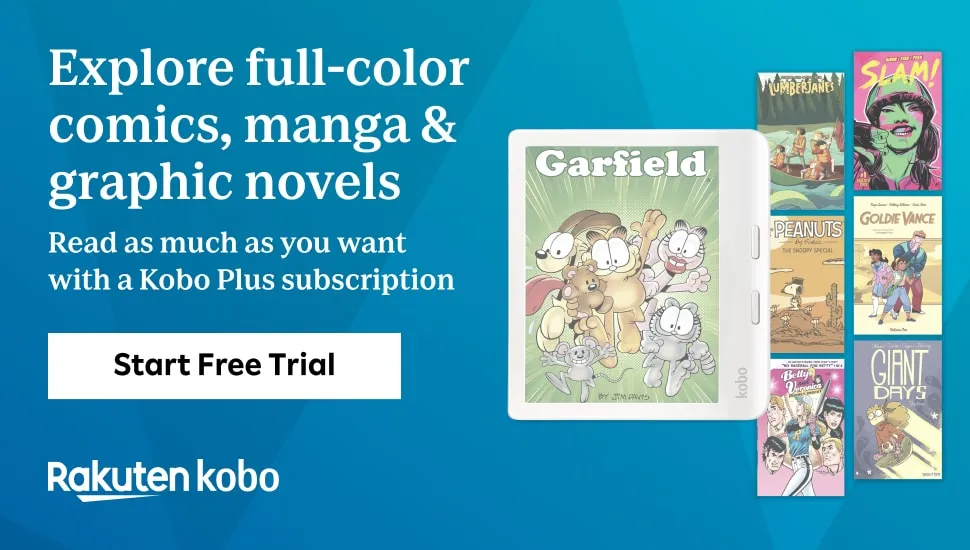
100 Must-Read, Best Books On Writing And The Writer’s Life
From craft to writer's lives, get ready to dig into 100 of the must-read, best books on writing for improving your own work.
Nikki VanRy
Nikki VanRy is a proud resident of Arizona, where she gets to indulge her love of tacos, desert storms, and tank tops. She also writes for the Tucson Festival of Books, loves anything sci-fi/fantasy/historical, drinks too much chai, and will spend all day in bed reading thankyouverymuch. Follow her on Instagram @nikki.vanry .
View All posts by Nikki VanRy
If you’re a working or aspiring writer, y ou already likely know about the classic best books on writing–King’s On Writing, Strunk and White’s Elements of Style– but for a craft as varied and personal as writing, you’ll always benefit from learning from more voices, with more techniques.
That’s why this list is full of writers not only talking about the bare-bones craft of writing (and there’s plenty of fantastic advice there), but also how becoming a writer changed their lives and what role they believe writers play in an ever-changing world. From craft to writer’s lives, get ready to dig into 100 of the must-read, best books on writing for improving your own work.
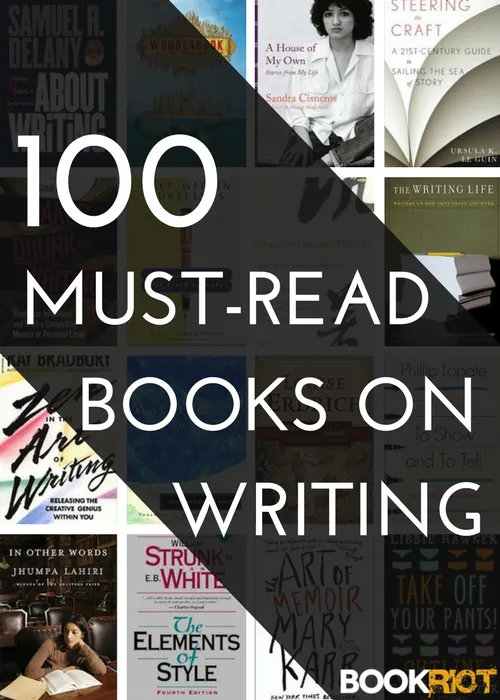
“Written with her trademark lyricism, in these signature pieces the acclaimed author of The House on Mango Street shares her transformative memories and reveals her artistic and intellectual influences. Poignant, honest, and deeply moving, A House of My Own is an exuberant celebration of a life lived to the fullest, from one of our most beloved writers.”
2. A Little Book on Form by Robert Hass
“Brilliantly synthesizes Hass’s formidable gifts as both a poet and a critic and reflects his profound education in the art of poetry. Starting with the exploration of a single line as the basic gesture of a poem, and moving into an examination of the essential expressive gestures that exist inside forms, Hass goes beyond approaching form as a set of traditional rules that precede composition, and instead offers penetrating insight into the true openness and instinctiveness of formal creation.”
3. A Personal Anthology by Jorge Luis Borges
“After almost a half a century of scrupulous devotion to his art, Jorge Luis Borges personally compiled this anthology of his work—short stories, essays, poems, and brief mordant ‘sketches,’ which, in Borges’s hands, take on the dimensions of a genre unique in modern letters. In this anthology, the author has put together those pieces on which he would like his reputation to rest; they are not arranged chronologically, but with an eye to their ‘sympathies and differences.'”
4. A Room of One’s Own by Virginia Woolf
“Virginia Woolf imagines that Shakespeare had a sister—a sister equal to Shakespeare in talent, and equal in genius, but whose legacy is radically different. In this classic essay, she takes on the establishment, using her gift of language to dissect the world around her and give voice to those who are without. Her message is a simple one: women must have a fixed income and a room of their own in order to have the freedom to create.”
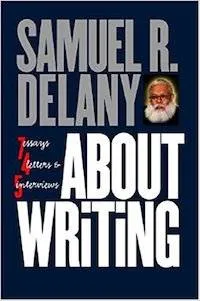
“Taking up specifics (When do flashbacks work, and when should you avoid them? How do you make characters both vivid and sympathetic?) and generalities (How are novels structured? How do writers establish serious literary reputations today?), Delany also examines the condition of the contemporary creative writer and how it differs from that of the writer in the years of Hemingway, Fitzgerald, and the high Modernists. Like a private writing tutorial, About Writing treats each topic with clarity and insight.”
6. The Anatomy of Story: 22 Steps to Becoming a Master Storyteller by John Truby
“Based on the lessons in his award-winning class, Great Screenwriting, The Anatomy of Story draws on a broad range of philosophy and mythology, offering fresh techniques and insightful anecdotes alongside Truby’s own unique approach to building an effective, multifaceted narrative.”
7. Art & Fear: Observations on the Perils (and Rewards) of Artmaking by David Bayles and Ted Orland
“Explores the way art gets made, the reasons it often doesn’t get made, and the nature of the difficulties that cause so many artists to give up along the way. The book’s co-authors, David Bayles and Ted Orland, are themselves both working artists, grappling daily with the problems of making art in the real world. Their insights and observations, drawn from personal experience, provide an incisive view into the world of art as it is experienced by artmakers themselves.”
8. The Art of Death by Edwidge Danticat
“At once a personal account of her mother dying from cancer and a deeply considered reckoning with the ways that other writers have approached death in their own work.”
9. The Art of Fiction: Notes on Craft for Young Writers by John Gardner
“Gardner’s lessons, exemplified with detailed excerpts from classic works of literature, sweep across a complete range of topics—from the nature of aesthetics to the shape of a refined sentence. Written with passion, precision, and a deep respect for the art of writing, Gardner’s book serves by turns as a critic, mentor, and friend. Anyone who has ever thought of taking the step from reader to writer should begin here.”
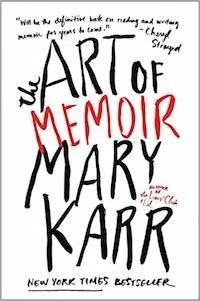
“Karr synthesizes her expertise as professor and therapy patient, writer and spiritual seeker, recovered alcoholic and ‘black belt sinner,’ providing a unique window into the mechanics and art of the form that is as irreverent, insightful, and entertaining as her own work in the genre.”
11. The Artist’s Way: A Spiritual Path to Higher Creativity by Julia Cameron
“The seminal book on the subject of creativity. An international bestseller, millions of readers have found it to be an invaluable guide to living the artist’s life. Still as vital today—or perhaps even more so—than it was when it was first published twenty five years ago, it is a powerfully provocative and inspiring work.”
12. Big Magic: Creative Living Beyond Fear by Elizabeth Gilbert
“With profound empathy and radiant generosity, Gilbert offers potent insights into the mysterious nature of inspiration. She asks us to embrace our curiosity and let go of needless suffering. She shows us how to tackle what we most love, and how to face down what we most fear. She discusses the attitudes, approaches, and habits we need in order to live our most creative lives.”
13. Bird by Bird: Some Instructions on Writing and Life by Anne Lamott
“Lamott’s miscellany of guidance and reflection should appeal to writers struggling with demons large and slight. Among the pearls she offers is to start small, as their father once advised her 10-year-old brother, who was agonizing over a book report on birds: ‘Just take it bird by bird.’ Lamott’s suggestion on the craft of fiction is down-to-earth: worry about the characters, not the plot. “
14. Black Milk: On the Conflicting Demands of Writing, Creativity, and Motherhood by Elif Shafak
“She intersperses her own experience with the lives of prominent authors such as Sylvia Plath, Virginia Woolf, Alice Walker, Ayn Rand, and Zelda Fitzgerald, Shafak looks for a solution to the inherent conflict between artistic creation and responsible parenting. With searing emotional honesty and an incisive examination of cultural mores within patriarchal societies, Shafak has rendered an important work about literature, motherhood, and spiritual well-being.”
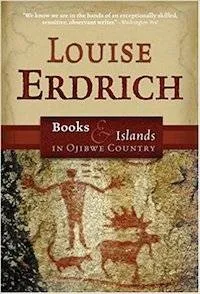
“Erdrich takes us on an illuminating tour through the terrain her ancestors have inhabited for centuries: the lakes and islands of southern Ontario. Summoning to life the Ojibwe’s sacred spirits and songs, their language and sorrows, she considers the many ways in which her tribe—whose name derives from the word ozhibii’ige, ‘to write'”—have influenced her. Her journey links ancient stone paintings with a magical island where a bookish recluse built an extraordinary library, and she reveals how both have transformed her.”
16. Bryson’s Dictionary of Troublesome Words: A Writer’s Guide to Getting It Right by Bill Bryson
“An essential guide to the wonderfully disordered thing that is the English language. With some one thousand entries that feature real-world examples of questionable usage from an international array of publications, and with a helpful glossary and guide to pronunciation, this precise, prescriptive, and–because it is written by Bill Bryson–often witty book belongs on the desk of every person who cares enough about the language not to maul or misuse or distort it.”
17. Bullies, Bastards and Bitches: How to Write the Bad Guys of Fiction by Jessica Morrell
“A truly memorable antagonist is not a one-dimensional super villain bent on world domination for no particular reason. Realistic, credible bad guys create essential story complications, personalize conflict, add immediacy to a story line, and force the protagonist to evolve.”
18. Crazy Brave: A Memoir by Joy Harjo
“In this transcendent memoir, grounded in tribal myth and ancestry, music and poetry, Joy Harjo, one of our leading Native American voices, details her journey to becoming a poet. Narrating the complexities of betrayal and love, Crazy Brave is a memoir about family and the breaking apart necessary in finding a voice.”
19. Eats, Shoots & Leaves: The Zero Tolerance Approach to Punctuation by Lynne Truss
“Former editor Lynne Truss, gravely concerned about our current grammatical state, boldly defends proper punctuation. She proclaims, in her delightfully urbane, witty, and very English way, that it is time to look at our commas and semicolons and see them as the wonderful and necessary things they are.”
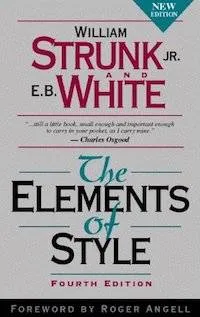
“You know the authors’ names. You recognize the title. You’ve probably used this book yourself. This is The Elements of Style , the classic style manual. This book’s unique tone, wit and charm have conveyed the principles of English style to millions of readers. Use the fourth edition of ‘the little book’ to make a big impact with writing.”
21. The Emotional Craft of Fiction: How to Write the Story Beneath the Surface by Donald Maass
“Veteran literary agent and expert fiction instructor Donald Maass shows you how to use story to provoke a visceral and emotional experience in readers. Readers can simply read a novel…or they can experience it. The Emotional Craft of Fiction shows you how to make that happen.”
22. Everybody Writes: Your Go-To Guide to Creating Ridiculously Good Content by Ann Handley
“A go-to guide to attracting and retaining customers through stellar online communication, because in our content-driven world, every one of us is, in fact, a writer. If you have a web site, you are a publisher. If you are on social media, you are in marketing. And that means that we are all relying on our words to carry our marketing messages. We are all writers.”
23. The First Five Pages: A Writer’s Guide to Staying Out of the Rejection Pile by Noah Lukeman
“With exercises at the end of each chapter, this invaluable reference will allow novelists, journalists, poets and screenwriters alike to improve their technique as they learn to eliminate even the most subtle mistakes that are cause for rejection. The First Five Pages will help writers at every stage take their art to a higher — and more successful — level.”
24. The Forest for the Trees: An Editor’s Advice to Writers by Betsy Lerner
“From blank page to first glowing (or gutting) review, Betsy Lerner is a knowing and sympathetic coach who helps writers discover how they can be more productive in the creative process and how they can better their odds of not only getting published, but getting published well.”
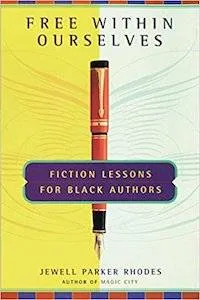
“ Free Within Ourselves is is meant to be a song of encouragement for African-American artists and visionaries. A step-by-step introduction to fictional technique, exploring story ideas, and charting one’s progress, as well as a resource guide for publishing fiction.”
26. Getting Into Character: Seven Secrets a Novelist Can Learn From Actors by Brandilyn Collins
“Want to bring characters to life on the page as vividly as fine actors do on the stage or screen? Getting Into Character will give you a whole new way of thinking about your writing. Drawing on the Method Acting theory that theater professionals have used for decades, this in-depth guide explains seven characterization techniques and adapts them for the novelist’s use.”
27. The Heart of a Woman by Maya Angelou
“In The Heart of a Woman , Maya Angelou leaves California with her son, Guy, to move to New York. There she enters the society and world of black artists and writers, reads her work at the Harlem Writers Guild, and begins to take part in the struggle of black Americans for their rightful place in the world.”
28. If You Want to Write by Brenda Ueland
“In this book, Ueland shares her philosophies on writing and life in general. She stresses the idea that ‘Everyone is talented, original, and has something important to say.’ Drawing heavily on the work and influence of William Blake, she suggests that writers should ‘Try to discover your true, honest, un-theoretical self.’ She sums up her book with 12 points to keep in mind while writing. Carl Sandburg called If You Want to Write the best book ever written on how to write.”
29. Immersion: A Writer’s Guide to Going Deep by Ted Conover
“Conover distills decades of knowledge into an accessible resource aimed at writers of all levels. He covers how to “get into” a community, how to conduct oneself once inside, and how to shape and structure the stories that emerge. Conover is also forthright about the ethics and consequences of immersion reporting, preparing writers for the surprises that often surface when their piece becomes public.”
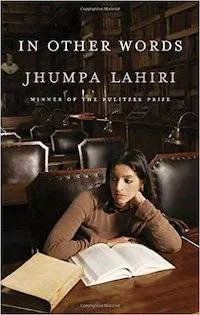
“On a post-college visit to Florence, Pulitzer Prize-winning author Jhumpa Lahiri fell in love with the Italian language. Twenty years later, seeking total immersion, she and her family relocated to Rome, where she began to read and write solely in her adopted tongue. A startling act of self-reflection, In Other Words is Lahiri’s meditation on the process of learning to express herself in another language—and the stunning journey of a writer seeking a new voice.”
31. In Search of Our Mothers’ Gardens: Womanist Prose by Alice Walker
“Alice Walker speaks out as a black woman, writer, mother, and feminist, in thirty-six pieces ranging from the personal to the political. Here are essays about Walker’s own work and that of other writers, accounts of the civil rights movement of the 1960s and the antinuclear movement of the 1980s, and a vivid, courageous memoir of a scarring childhood injury.”
32. It Was the Best of Sentences, It Was the Worst of Sentences: A Writer’s Guide to Crafting Killer Sentences by June Casagrande
“Great writing isn’t born, it’s built—sentence by sentence. But too many writers—and writing guides—overlook this most important unit. The result? Manuscripts that will never be published and writing careers that will never begin. So roll up your sleeves and prepare to craft one bold, effective sentence after another. Your readers will thank you.”
33. The Kick-Ass Writer: 1001 Ways to Write Great Fiction, Get Published, and Earn Your Audience by Chuck Wendig
“The journey to become a successful writer is long, fraught with peril, and filled with difficult questions: How do I write dialogue? How do I build suspense? What should I know about query letters? Where do I start? The best way to answer these questions is to ditch your uncertainty and transform yourself into a KICK-ASS writer.”
34. The Language of Fiction: A Writer’s Stylebook by Brian Shawver
“Grand themes and complex plots are just the beginning of a great piece of fiction. Mastering the nuts and bolts of grammar and prose mechanics is also an essential part of becoming a literary artist. This indispensable guide, created just for writers of fiction, will show you how to take your writing to the next level by exploring the finer points of language.”
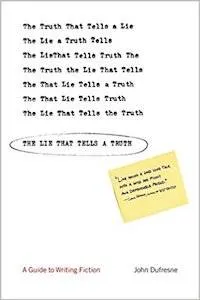
“Finally, a truly creative―and hilarious―guide to creative writing, full of encouragement and sound advice. Provocative and reassuring, nurturing and wise, The Lie That Tells a Truth is essential to writers in general, fiction writers in particular, beginning writers, serious writers, and anyone facing a blank page.”
36. The Magic Words: Writing Great Books for Children and Young Adults by Cheryl Klein
“Editor Cheryl B. Klein guides writers on an enjoyable and practical-minded voyage of their own, from developing a saleable premise for a novel to finding a dream agent. She delves deep into the major elements of fiction―intention, character, plot, and voice―while addressing important topics like diversity, world-building, and the differences between middle-grade and YA novels.”
37. Making a Good Script Great by Linda Seger
“Making a good script great is more than just a matter of putting a good idea on paper. It requires the working and reworking of that idea. This book takes you through the whole screenwriting process – from initial concept through final rewrite – providing specific methods that will help you craft tighter, stronger, and more saleable scripts.”
38. Memoirs by Pablo Neruda
“In his uniquely expressive prose, Neruda not only explains his views on poetry and describes the circumstances that inspired many of his poems, but he creates a revealing record of his life as a poet, a patriot, and one of the twentieth century’s true men of conscience.”
39. The Modern Library Writer’s Workshop: A Guide to the Craft of Fiction by Stephen Koch
“Stephen Koch, former chair of Columbia University’s graduate creative writing program, presents a unique guide to the craft of fiction. Along with his own lucid observations and commonsense techniques, he weaves together wisdom, advice, and inspiring commentary from some of our greatest writers.”
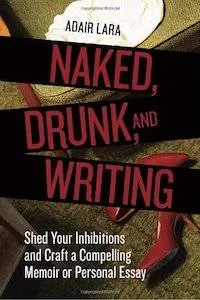
“Packed with insights and advice both practical (‘writing workshops you pay for are the best–it’s too easy to quit when you’ve made no investment’) and irreverent (‘apply Part A [butt] to Part B [chair]’). Naked, Drunk, and Writing is a must-have if you are an aspiring columnist, essayist, or memoirist—or just a writer who needs a bit of help in getting your story told.”
41. Negotiating with the Dead: A Writer on Writing by Margaret Atwood
“In this wise and irresistibly quotable book, one of the most intelligent writers working in English addresses the riddle of her art: why people pursue it, how they view their calling, and what bargains they make with their audience, both real and imagined. To these fascinating issues Booker Prize-winner Margaret Atwood brings a candid appraisal of her own experience as well as a breadth of reading that encompasses everything from Dante to Elmore Leonard.”
42. On Writing by Eudora Welty
“Eudora Welty was one of the twentieth century’s greatest literary figures. For as long as students have been studying her fiction as literature, writers have been looking to her to answer the profound questions of what makes a story good, a novel successful, a writer an artist.”
43. On Writing: A Memoir of the Craft by Stephen King
“Part memoir, part master class by one of the bestselling authors of all time, this superb volume is a revealing and practical view of the writer’s craft, comprising the basic tools of the trade every writer must have.”
44. On Writing Well: The Classic Guide to Writing Nonfiction by William Zinsser
“Whether you want to write about people or places, science and technology, business, sports, the arts or about yourself in the increasingly popular memoir genre, On Writing Well offers you fundamental principles as well as the insights of a distinguished writer and teacher.”
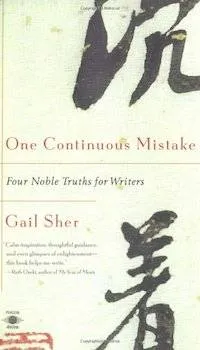
“Based on the Zen philosophy that we learn more from our failures than from our successes, One Continuous Mistake teaches a refreshing new method for writing as spiritual practice. Here she introduces a method of discipline that applies specific Zen practices to enhance and clarify creative work. She also discusses bodily postures that support writing, how to set up the appropriate writing regimen, and how to discover one’s own ‘learning personality.'”
46. Outlining Your Novel: Map Your Way to Success by K.M. Weiland
“Writers often look upon outlines with fear and trembling. But when properly understood and correctly wielded, the outline is one of the most powerful weapons in a writer’s arsenal.”
47. The Paris Review Interviews, Vols. 1-4 by The Paris Review
“For more than half a century, The Paris Review has conducted in-depth interviews with our leading novelists, poets, and playwrights. These revealing, revelatory self-portraits have come to be recognized as themselves classic works of literature, and an essential and definitive record of the writing life.”
48. The Poet’s Companion: A Guide to the Pleasures of Writing Poetry by Kim Addonizio and Dorianne Laux
“Presents brief essays on the elements of poetry, technique, and suggested subjects for writing, each followed by distinctive writing exercises. The ups and downs of writing life―including self-doubt and writer’s block―are here, along with tips about getting published and writing in the electronic age.”
49. The Poetry Home Repair Manual: Practical Advice for Beginning Poets by Ted Kooser
“Using examples from his own rich literary oeuvre and from the work of a number of successful contemporary poets, the author schools us in the critical relationship between poet and reader, which is fundamental to what Kooser believes is poetry’s ultimate purpose: to reach other people and touch their hearts.”
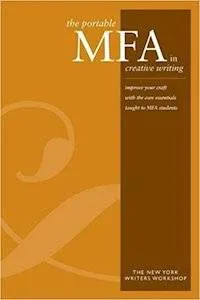
“Have you always wanted to get an MFA, but couldn’t because of the cost, time commitment, or admission requirements? Well now you can fulfill that dream without having to devote tons of money or time. The Portable MFA gives you all of the essential information you would learn in the MFA program in one book.”
51. Paula: A Memoir by Isabel Allende
“Irony and marvelous flights of fantasy mix with the icy reality of Paula’s deathly illness as Allende sketches childhood scenes in Chile and Lebanon; her uncle Salvatore Allende’s reign and ruin as Chilean president; her struggles to shake off or find love; and her metamorphosis into a writer.”
52. Pen on Fire: A Busy Woman’s Guide to Igniting the Writer Within by Barbara DeMarco-Barrett
“In her fifteen years of teaching, Barbara DeMarco-Barrett has found that the biggest stumbling block for aspiring writers (especially women) is not fear of the blank page but frustration with the lack of time. What woman doesn’t have too much to do and too little time? Finding an hour free of work, children, or obligations can seem impossible.”
53. Pixar Storytelling: Rules for Effective Storytelling Based on Pixar’s Greatest Films by Dean Movshovitz
“ Pixar Storytelling is about effective storytelling rules based on Pixar’s greatest films. The book consists of ten chapters, each of which explores an aspect of storytelling that Pixar excels at. Learn what Pixar’s core story ideas all have in common, how they create compelling, moving conflict and what makes their films’ resolutions so emotionally satisfying.”
54. Plot & Structure: Techniques and Exercises for Crafting a Plot That Grips Readers from Start to Finish by James Scott Bell
“How does plot influence story structure? What’s the difference between plotting for commercial and literary fiction? How do you revise a plot or structure that’s gone off course? With Write Great Fiction: Plot & Structure , you’ll discover the answers to these questions and more. Award-winning author James Scott Bell offers clear, concise information that will help you create a believable and memorable plot.”
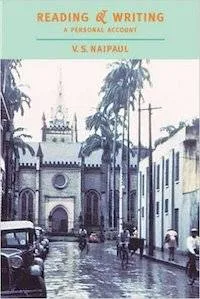
“In this essay of literary autobiography, V. S. Naipaul sifts through memories of his childhood in Trinidad, his university days in England, and his earliest attempts at writing, seeking the experiences of life and reading that shaped his imagination and his growth as a writer.”
56. Reading Like a Writer: A Guide for People Who Love Books and for Those Who Want to Write Them by Francine Prose
“Long before there were creative-writing workshops and degrees, how did aspiring writers learn to write? By reading the work of their predecessors and contemporaries, says Francine Prose. In Reading Like a Writer , Prose invites you to sit by her side and take a guided tour of the tools and the tricks of the masters.”
57. Romancing the Beat: Story Structure for Romance Novels (How to Write Kissing Books) by Gwen Hayes
“ Romancing the Beat is a recipe, not a rigid system. The beats don’t care if you plot or outline before you write, or if you pants your way through the drafts and do a ‘beat check’ when you’re revising. Pantsers and plotters are both welcome. So sit down, grab a cuppa, and let’s talk about kissing books.”
58. Save the Cat! The Last Book on Screenwriting You’ll Ever Need by Blake Snyder
“This ultimate insider’s guide reveals the secrets that none dare admit, told by a show biz veteran who’s proven that you can sell your script if you can save the cat!”
59. Scratch: Writers, Money, and the Art of Making a Living by Manjula Martin
“In the literary world, the debate around writing and commerce often begs us to take sides: either writers should be paid for everything they do or writers should just pay their dues and count themselves lucky to be published. It’s an endless, confusing, and often controversial conversation that, despite our bare-it-all culture, still remains taboo. In Scratch , Manjula Martin has gathered interviews and essays from established and rising authors to confront the age-old question: how do creative people make money?”
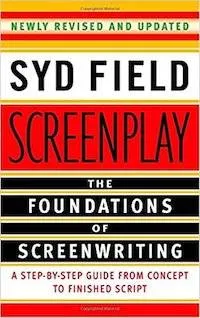
“From concept to character, from opening scene to finished script, here are easily understood guidelines to help aspiring screenwriters—from novices to practiced writers—hone their craft.”
61. Singing School: Learning to Write (And Read) Poetry by Studying with the Masters by Robert Pinsky
“Quick, joyful, and playfully astringent, with surprising comparisons and examples, this collection takes an unconventional approach to the art of poetry. Instead of rules, theories, or recipes, Singing School emphasizes ways to learn from great work: studying magnificent, monumentally enduring poems and how they are made— in terms borrowed from the ‘singing school’ of William Butler Yeats’s ‘Sailing to Byzantium.'”
62. The Situation and the Story: The Art of Personal Narrative by Vivian Gornick
“Taking us on a reading tour of some of the best memoirs and essays of the past hundred years, Gornick traces the changing idea of self that has dominated the century, and demonstrates the enduring truth-speaker to be found in the work of writers as diverse as Edmund Gosse, Joan Didion, Oscar Wilde, James Baldwin, or Marguerite Duras.”
63. Slay the Dragon: Writing Great Video Games by Robert Denton Bryant and Keith Giglio
“Writing for the multibillion-dollar video-game industry is unlike writing for any other medium. Slay the Dragon will help you understand the challenges and offer creative solutions to writing for a medium where the audience not only demands a great story, but to be a driving force within it.”
64. Something to Declare by Julia Alvarez
“From the internationally acclaimed author of the bestselling novels In the Time of the Butterflies and How the García Girls Lost Their Accents comes a rich and revealing work of nonfiction capturing the life and mind of an artist as she knits together the dual themes of coming to America and becoming a writer.”
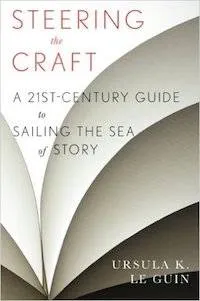
“This handbook is a short, deceptively simple guide to the craft of writing. Le Guin lays out ten chapters that address the most fundamental components of narrative, from the sound of language to sentence construction to point of view.”
66. Stein On Writing: A Master Editor of Some of the Most Successful Writers of Our Century Shares His Craft Techniques and Strategies by Sol Stein
“With examples from bestsellers as well as from students’ drafts, Stein offers detailed sections on characterization, dialogue, pacing, flashbacks, trimming away flabby wording, the so-called ‘triage’ method of revision, using the techniques of fiction to enliven nonfiction, and more.”
67. Story Genius: How to Use Brain Science to Go Beyond Outlining and Write a Riveting Novel by Lisa Cron
“Takes you, step-by-step, through the creation of a novel from the first glimmer of an idea, to a complete multilayered blueprint—including fully realized scenes—that evolves into a first draft with the authority, richness, and command of a riveting sixth or seventh draft.”
68. Story Trumps Structure: How to Write Unforgettable Fiction by Breaking the Rules by Steven James
“All too often, following the ‘rules’ of writing can constrict rather than inspire you. With Story Trumps Structure , you can shed those rules – about three-act structure, rising action, outlining, and more – to craft your most powerful, emotional, and gripping stories.”
69. The Storytelling Animal: How Stories Make Us Human by Jonathan Gottschall
“Humans live in landscapes of make-believe. We spin fantasies. We devour novels, films, and plays. Even sporting events and criminal trials unfold as narratives. Yet the world of story has long remained an undiscovered and unmapped country. Now Jonathan Gottschall offers the first unified theory of storytelling. He argues that stories help us navigate life’s complex social problems–just as flight simulators prepare pilots for difficult situations. Storytelling has evolved, like other behaviors, to ensure our survival.”
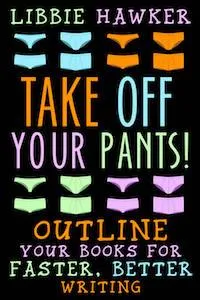
“When it comes to writing books, are you a ‘plotter’ or a ‘pantser’? Is one method really better than the other? In this instructional book, author Libbie Hawker explains the benefits and technique of planning a story before you begin to write.”
71. TED Talks Storytelling: 23 Storytelling Techniques from the Best TED Talks by Akash Karia
“Essentially, the best speakers on the TED stage were the ones who had mastered the art of storytelling. They had mastered how to craft and present their stories in a way that allowed them to share their message with the world without seeming like they were lecturing their audience.”
72. This Is The Story of a Happy Marriage by Ann Patchett
“Blending literature and memoir, Ann Patchett, author of State of Wonder, Run, and Bel Canto , examines her deepest commitments—to writing, family, friends, dogs, books, and her husband—creating a resonant portrait of a life in This is the Story of a Happy Marriage. “
73. This Year You Write Your Novel by Walter Mosley
“No more excuses. ‘Let the lawn get shaggy and the paint peel from the walls,’ bestselling novelist Walter Mosley advises. Anyone can write a novel now, and in this essential book of tips, practical advice, and wisdom, Walter Mosley promises that the writer-in-waiting can finish it in one year.”
74. Thrill Me: Essays on Fiction by Benjamin Percy
“In fifteen essays on the craft of fiction, Percy looks to disparate sources such as Jaws , Blood Meridian, and The Girl with the Dragon Tattoo to discover how contemporary writers engage issues of plot, suspense, momentum, and the speculative, as well as character, setting, and dialogue. An urgent and entertaining missive on craft, Thrill Me brims with Percy’s distinctive blend of anecdotes, advice, and close reading, all in the service of one dictum: Thrill the reader.”
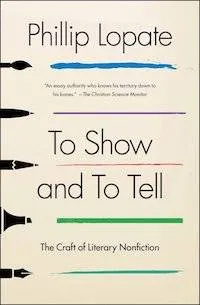
“Combining more than forty years of lessons from his storied career as a writer and professor, Lopate brings us this highly anticipated nuts-and-bolts guide to writing literary nonfiction. A phenomenal master class shaped by Lopate’s informative, accessible tone and immense gift for storytelling, To Show and To Tell reads like a long walk with a favorite professor—refreshing, insightful, and encouraging in often unexpected ways.”
76. The Tough Guide to Fantasyland: The Essential Guide to Fantasy Travel by Diana Wynne Jones
“Imagine that all fantasy novels—the ones featuring dragons, knights, wizards, and magic—are set in the same place. That place is called Fantasyland. The Tough Guide to Fantasyland is your travel guide, a handbook to everything you might find: Evil, the Dark Lord, Stew, Boots (but not Socks), and what passes for Economics and Ecology. Both a hilarious send-up of the cliches of the genre and an indispensable guide for writers.”
77. Unless It Moves the Human Heart: The Craft and Art of Writing by Roger Rosenblatt
“The revered novelist, essayist, playwright, and respected writing teacher offers a guidebook for aspiring authors, a memoir, and an impassioned argument for the necessity of writing in our world.”
78. Upstream by Mary Oliver
“Throughout this collection, Oliver positions not just herself upstream but us as well as she encourages us all to keep moving, to lose ourselves in the awe of the unknown, and to give power and time to the creative and whimsical urges that live within us.”
79. Video Game Storytelling: What Every Developer Needs to Know about Narrative Techniques by Evan Skolnick
“Game writer and producer Evan Skolnick provides a comprehensive yet easy-to-follow guide to storytelling basics and how they can be applied at every stage of the development process—by all members of the team.”
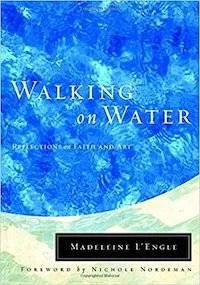
“In this classic book, Madeleine L’Engle addresses the questions, What makes art Christian? What does it mean to be a Christian artist? What is the relationship between faith and art? Through L’Engle’s beautiful and insightful essay, readers will find themselves called to what the author views as the prime tasks of an artist: to listen, to remain aware, and to respond to creation through one’s own art.”
81. The Way of the Writer: Reflections on the Art and Craft of Storytelling by Charles Johnson
“Johnson shares his lessons and exercises from the classroom, starting with word choice, sentence structure, and narrative voice, and delving into the mechanics of scene, dialogue, plot and storytelling before exploring the larger questions at stake for the serious writer. What separates literature from industrial fiction? What lies at the heart of the creative impulse? How does one navigate the literary world? And how are philosophy and fiction concomitant?”
82. What I Talk About When I Talk About Running by Haruki Murakami
“While simply training for New York City Marathon would be enough for most people, Haruki Murakami’s decided to write about it as well. The result is a beautiful memoir about his intertwined obsessions with running and writing, full of vivid memories and insights, including the eureka moment when he decided to become a writer.”
83. What Moves at the Margin by Toni Morrison
“Collects three decades of Toni Morrison’s writings about her work, her life, literature, and American society. The works included in this volume range from 1971, when Morrison was a new editor at Random House and a beginning novelist, to 2002 when she was a professor at Princeton University and Nobel Laureate. These works provide a unique glimpse into Morrison’s viewpoint as an observer of the world, the arts, and the changing landscape of American culture.”
84. Where the Past Begins: A Writer’s Memoir by Amy Tan
“By delving into vivid memories of her traumatic childhood, confessions of self-doubt in her journals, and heartbreaking letters to and from her mother, she gives evidence to all that made it both unlikely and inevitable that she would become a writer. Through spontaneous storytelling, she shows how a fluid fictional state of mind unleashed near-forgotten memories that became the emotional nucleus of her novels.”
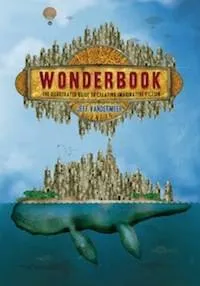
“This all-new definitive guide to writing imaginative fiction takes a completely novel approach and fully exploits the visual nature of fantasy through original drawings, maps, renderings, and exercises to create a spectacularly beautiful and inspiring object.”
86. Woolgathering by Patti Smith
“A great book about becoming an artist, Woolgathering tells of a youngster finding herself as she learns the noble vocation of woolgathering, ‘a worthy calling that seemed a good job for me.’ She discovers―often at night, often in nature―the pleasures of rescuing ‘a fleeting thought.’ Deeply moving, Woolgathering calls up our own memories, as the child ‘glimpses and gleans, piecing together a crazy quilt of truths.'”
87. Words for Pictures: The Art and Business of Writing Comics and Graphic Novels by Brian Michael Bendis
“One of the most popular writers in modern comics, Brian Michael Bendis reveals the tools and techniques he and other top creators use to create some of the most popular comic book and graphic novel stories of all time.”
88. Write Naked: A Bestseller’s Secrets to Writing Romance & Navigating the Path to Success by Jennifer Probst
“Learn how to transform your passion for writing into a career. New York Times best-selling author Jennifer Probst reveals her pathway to success, from struggling as a new writer to signing a seven-figure deal. Write Naked intermingles personal essays on craft with down-to-earth advice on writing romance in the digital age.”
89. Write Your Novel in a Month: How to Complete a First Draft in 30 Days and What to Do Next by Jeff Gerke
“Author and instructor Jeff Gerke has created the perfect tool to show you how to prepare yourself to write your first draft in as little as 30 days. With Jeff’s help, you will learn how to organize your ideas, create dynamic stories, develop believable characters, and flesh out the idea narrative for your novel–and not just for the rapid-fire first draft.”
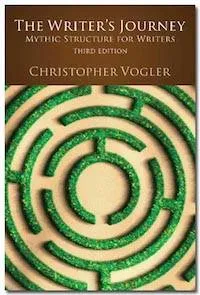
“Explores the powerful relationship between mythology and storytelling in a clear, concise style that’s made it required reading for movie executives, screenwriters, playwrights, scholars, and fans of pop culture all over the world.”
91. Writer’s Market 2018: The Most Trusted Guide to Getting Published by Robert Lee Brewer
“Want to get published and paid for your writing? Let Writer’s Market guide you through the process with thousands of publishing opportunities for writers, including listings for book publishers, consumer and trade magazines, contests and awards, and literary agents. These listings feature contact and submission information to help writers get their work published.”
92. Writing Down the Bones: Freeing the Writer Within by Natalie Goldberg
“For more than thirty years Natalie Goldberg has been challenging and cheering on writers with her books and workshops. In her groundbreaking first book, she brings together Zen meditation and writing in a new way. Writing practice, as she calls it, is no different from other forms of Zen practice—’it is backed by two thousand years of studying the mind.'”
93. Writing Hard Stories: Celebrated Memoirists Who Shaped Art from Trauma by Melanie Brooks
“What does it take to write an honest memoir? And what happens to us when we embark on that journey? Melanie Brooks sought guidance from the memoirists who most moved her to answer these questions. Called an essential book for creative writers by Poets & Writers, Writing Hard Stories is a unique compilation of authentic stories about the death of a partner, parent, or child; about violence and shunning; and about the process of writing.”
94. The Writing Life by Annie Dillard
“Slender though it is, The Writing Life richly conveys the torturous, tortuous, and in rare moments, transcendent existence of the writer. Amid moving accounts of her own writing (and life) experiences, Dillard also manages to impart wisdom to other writers, wisdom having to do with passion and commitment and taking the work seriously.”
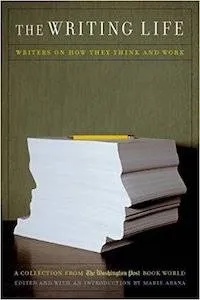
“Culled from ten years of the distinguished Washington Post column of the same name, The Writing Life highlights an eclectic group of luminaries who have wildly varied stories to tell, but who share this singularly beguiling career. Here are their pleasures as well as their peeves; revelations of their deepest fears; dramas of triumphs and failures; insights into the demands and rewards.”
96. Writing Magic: Creating Stories That Fly by Gail Caron Levine
“Gail Carson Levine shows how you can get terrific ideas for stories, invent great beginnings and endings, write sparkling dialogue, develop memorable characters—and much, much more. She advises you about what to do when you feel stuck—and how to use helpful criticism. Best of all, she offers writing exercises that will set your imagination on fire.”
97. Writing Tools: 55 Essential Strategies for Every Writer by Roy Peter Clark
“Ten years ago, Roy Peter Clark, America’s most influential writing teacher, whittled down almost thirty years of experience in journalism, writing, and teaching into a series of fifty short essays on different aspects of writing. In the past decade, Writing Tools has become a classic guidebook for novices and experts alike and remains one of the best loved books on writing available.”
98. Year of Yes: How to Dance It Out, Stand In the Sun and Be Your Own Person by Shonda Rhimes
“This poignant, intimate, and hilarious memoir explores Shonda’s life before her Year of Yes —from her nerdy, book-loving childhood to her devotion to creating television characters who reflected the world she saw around her. The book chronicles her life after her Year of Yes had begun—when Shonda forced herself out of the house and onto the stage; when she learned to explore, empower, applaud, and love her truest self. Yes.”
99. Your Creative Writing Masterclass by Jergen Wolff
“If you dream of being a writer, why not learn from the best? In Your Creative Writing Masterclass you’ll find ideas, techniques and encouragement from the most admired and respected contemporary and classic authors, including Charles Dickens, Jane Austen and Anton Chekhov.”
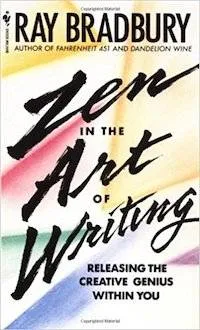
“Part memoir, part philosophical guide, the essays in this book teach the joy of writing. Rather than focusing on the mechanics of putting words on paper, Bradbury’s zen is found in the celebration of storytelling that drove him to write every day. Imparting lessons he has learned over the course of his exuberant career, Bradbury inspires with his infectious enthusiasm.”
Writing is a big messy topic, so obviously I’ll have missed some of your favorite and best books on writing. Make sure to hit the comments to talk about your favorite books about the writing life and craft. Find more of our posts on the writing life here .

You Might Also Like

100 Best Creative Writing Books of All Time
We've researched and ranked the best creative writing books in the world, based on recommendations from world experts, sales data, and millions of reader ratings. Learn more
A Memoir of the Craft
Stephen King | 5.00
Mark Manson I read a bunch of books on writing before I wrote my first book and the two that stuck with me were Stephen King’s book and “On Writing Well” by Zinsser (which is a bit on the technical side). (Source)
Jennifer Rock If you are interested in writing and communication, start with reading and understanding the technical aspects of the craft: The Elements of Style. On Writing Well. On Writing: A Memoir of the Craft. (Source)
Benjamin Spall [Question: What five books would you recommend to youngsters interested in your professional path?] On Writing: A Memoir Of The Craft by Stephen King, [...] (Source)
See more recommendations for this book...

Bird By Bird
Some Instructions on Writing and Life
Anne Lamott | 4.88
Susan Cain I love [this book]. Such a good book. (Source)
Timothy Ferriss Bird by Bird is one of my absolute favorite books, and I gift it to everybody, which I should probably also give to startup founders, quite frankly. A lot of the lessons are the same. But you can get to your destination, even though you can only see 20 feet in front of you. (Source)
Ryan Holiday It was wonderful to read these two provocative books of essays by two incredibly wise and compassionate women. [...] Anne Lamott’s book is ostensibly about the art of writing, but really it too is about life and how to tackle the problems, temptations and opportunities life throws at us. Both will make you think and both made me a better person this year. (Source)

The War of Art
out of 5 stars4,70 | 4.76
James Altucher When a writer or an entrepreneur, or a manager, or an employee, or a…whatever…sits down to get to work, he or she is often met by “the resistance”. The excuses that come up: I can’t do this. I am too old. I don’t have enough money. I’m scared. “The War of Art” is the guide to getting through that block. The comfort zone is papered up and cemented shut by our excuses. Learn to blast through that... (Source)
Seth Godin Also hard to find on audio. I find Steve's voice to be fascinating, and even before I knew him, I was fascinated by listening to him speak his own work. The War of Art is one of those books, at least for me when I finally was exposed to it, I said, 'Why wasn't I informed? Why did it take this long for this book to land on my desk?'... You need to be clear with yourself about what you are afraid... (Source)
Brian Koppelman Talks about resistance. (Source)

The Elements of Style
William Jr. Strunk | 4.57
Tobi Lütke [My] most frequently gifted book is [this book] because I like good writing. (Source)
Bill Nye This is my guide. I accept that I’ll never write anything as good as the introductory essay by [the author]. It’s brilliant. (Source)

The Hero With a Thousand Faces
Joseph Campbell | 4.57
The first popular work to combine the spiritual and psychological insights of modern psychoanalysis with the archetypes of world mythology, the book creates a roadmap for navigating the frustrating path of contemporary life. Examining heroic myths in the light of modern psychology, it considers not only the patterns and stages of mythology but also its relevance to our lives today--and to the life of any person seeking a fully realized existence. Myth, according to Campbell, is the projection of a culture's dreams onto a large screen; Campbell's book, like Star Wars , the...
The first popular work to combine the spiritual and psychological insights of modern psychoanalysis with the archetypes of world mythology, the book creates a roadmap for navigating the frustrating path of contemporary life. Examining heroic myths in the light of modern psychology, it considers not only the patterns and stages of mythology but also its relevance to our lives today--and to the life of any person seeking a fully realized existence. Myth, according to Campbell, is the projection of a culture's dreams onto a large screen; Campbell's book, like Star Wars , the film it helped inspire, is an exploration of the big-picture moments from the stage that is our world. It is a must-have resource for both experienced students of mythology and the explorer just beginning to approach myth as a source of knowledge.
Ray Dalio The book I’d give [every graduating senior in college or high school] would be [...] Joseph Campbell’s 'Hero of a Thousand Faces'. It's little bit dense but it’s so rich, so it’s a good one. (Source)
Darren Aronofsky [I'm] totally part of his cult. Because I believe in that hero’s journey. (Source)
Kyle Russell Book 28 Lesson: Embedded in human psychology (and the resulting symbolism we find compelling) is a wish for our struggles to be meaningful, for our suffering to have value, for our effort to pay off for ourselves and those we love - and to then be recognized for it. https://t.co/lWgr4k7d8Y (Source)

On Writing Well
The Classic Guide To Writing Nonfiction
William Zinsser | 4.55
Tim O'Reilly On Writing Well, by William Zinsser. I wouldn't say this book influenced me, since my principles of writing were established long before I read it. However, it does capture many things that I believe about effective writing. (Source)
Derek Sivers Great blunt advice about writing better non-fiction. So inspiring. (Source)

The Writer's Journey
Mythic Structure for Writers
Christopher Vogler | 4.50
Darren Aronofsky It’s the Bible for screenwriters. I think it’s the best book on how to write a screenplay ever written. It helped me get through so many roadblocks as a writer. (Source)

Writing Down the Bones
Freeing the Writer Within
Natalie Goldberg | 4.47
Brie Code @gamesandbowties Oh I love that book! And am intrigued by mystic poetry and would love to see it on Twitter 😇 (Source)


Writing Tools
50 Essential Strategies for Every Writer
Roy Peter Clark | 4.47

The Artist's Way
Julia Cameron | 4.46
Anand C STARTING FROM AUTHENTICITY: by observing, showing humility and being grateful - I started being open to what’s in the sub-conscious more (30+ sessions in). Speaking your truth is a powerful result of this. One great book to help explore this. https://t.co/sOAgAHhWsO (Source)
Emma Gannon Instead of all these fast paced books saying: ‘Here’s how to be amazing, here’s how to get a side hustle, here’s how to hustle, hustle, hustle.’ This is the total opposite. It’s about slowing right down and connecting with yourself again. (Source)
Don't have time to read the top Creative Writing books of all time? Read Shortform summaries.
Shortform summaries help you learn 10x faster by:
- Being comprehensive: you learn the most important points in the book
- Cutting out the fluff: you focus your time on what's important to know
- Interactive exercises: apply the book's ideas to your own life with our educators' guidance.

The Emotion Thesaurus
A Writer's Guide to Character Expression
Becca Puglisi | 4.38

Save the Cat
The Last Book on Screenwriting You'll Ever Need
Blake Snyder | 4.37
Eric Weinstein [Eric Weinstein recommended this book on Twitter.] (Source)
Bill Liao The human world occurs in language so best get good at it! (Source)
Neville Medhora It takes you through 11 different 'archetypes' of screenplays you can write, and the exact elements each needs to be a great story. (Source)

Substance, Structure, Style, and the Principles of Screenwriting
Robert McKee | 4.35

Gotham Writers' Workshop: Writing Fiction
The Practical Guide From New York's Acclaimed Creative Writing School
Gotham Writers' Workshop | 4.33

The Illustrated Guide to Creating Imaginative Fiction
Jeff VanderMeer, Jeremy Zerfoss | 4.33

Becoming a Writer
Dorothea Brande, John Gardner | 4.33
Sophie King This book will help you work out what you can do with your own book. (Source)
Andrew Cowan Because creative writing has now taken off and has become this very widespread academic discipline it is beginning to acquire its own canon of key works and key texts. This is one of the oldest of them. It’s a book that almost anyone who teaches creative writing will have read. They will probably have read it because some fundamentals are explained and I think the most important one is Brande’s... (Source)

Self-Editing for Fiction Writers
How to Edit Yourself Into Print
Renni Browne, Dave King | 4.32
Alina Varlanuta My professional path – copywriting – somehow intertwines with my unprofessional (hahaha) path – writing so I would recommend reading literature for both. Somehow reading and writing are two ways of doing the same thing: storytelling (even when you read you tell yourself a story in your own voice, bringing your personal emotion and empathy to the story you’re reading). The only difference is that... (Source)

Plot & Structure
Techniques and Exercises for Crafting a Plot That Grips Readers from Start to Finish
James Scott Bell | 4.30

Zen in the Art of Writing
Ray Bradbury | 4.27
Maria Popova In Zen in the Art of Writing: Releasing the Creative Genius Within You, Ray Bradbury — acclaimed author, dystopian novelist, hater of symbolism — shares not only his wisdom and experience in writing, but also his contagious excitement for the craft. Blending practical how-to’s on everything from finding your voice to negotiating with editors with snippets and glimpses of the author’s own career,... (Source)

Steering the Craft
Exercises and Discussions on Story Writing for the Lone Navigator or the Mutinous Crew
Ursula K. Le Guin | 4.27

Reading Like a Writer
A Guide for People Who Love Books and for Those Who Want to Write Them
Francine Prose | 4.27

Steal Like an Artist
10 Things Nobody Told You About Being Creative
Austin Kleon | 4.26
Seth Godin Breezy and fun and yes, scary. Scary because it calls your bluff. (Source)
Ryan Holiday Part of ambition is modeling yourself after those you’d like to be like. Austin’s philosophy of ruthlessly stealing and remixing the greats might sound appalling at first but it is actually the essence of art. You learn by stealing, you become creative by stealing, you push yourself to be better by working with these materials. Austin is a fantastic artist, but most importantly he communicates... (Source)
Chase Jarvis Super small, fast read. (Source)

Outlining Your Novel
Map Your Way to Success
K. M. Weiland | 4.25

Writing Fiction for Dummies
Randy Ingermanson | 4.23

Characters and Viewpoint (Elements of Fiction Writing)
Orson Scott Car | 4.22

Wired for Story
The Writer's Guide to Using Brain Science to Hook Readers from the Very First Sentence
Lisa Cron | 4.22

2,000 to 10,000
How to Write Faster, Write Better, and Write More of What You Love
Rachel Aaro | 4.21

Creating Character Arcs
The Masterful Author's Guide to Uniting Story Structure, Plot, and Character Development (Helping Writers Become Authors Book 7)
K.M. Weiland | 4.21
Powerful Character Arcs Create Powerful Stories
Have you written a story with an exciting concept and interesting characters—but it just isn’t grabbing the attention of readers or agents? It’s time to look deeper into the story beats that create realistic and compelling character arcs. Internationally published, award-winning novelist K.M. Weiland shares her acclaimed method for achieving memorable and moving character arcs in every book you write.
By applying the foundation of the Three-Act Story Structure and then...
By applying the foundation of the Three-Act Story Structure and then delving even deeper into the psychology of realistic and dynamic human change, Weiland offers a beat-by-beat checklist of character arc guidelines that flexes to fit any type of story.
This comprehensive book will teach you:
Gaining an understanding of how to write character arcs is a game-changing moment in any author’s pursuit of the craft.
Bring your characters to unforgettable and realistic life—and take your stories from good to great!

Writing Fiction
A Guide to Narrative Craft
Janet Burroway, Elizabeth Stuckey-French | 4.20

Story Engineering
Character Development, Story Concept, Scene Construction
Larry Brooks | 4.19

The Art of Fiction
Notes on Craft for Young Writers
John Gardner | 4.19

The Anatomy of Story
22 Steps to Becoming a Master Storyteller
John Truby | 4.19

Writing Magic
Creating Stories that Fly
Gail Carson Levine | 4.19

The Positive Trait Thesaurus
A Writer's Guide to Character Attributes
Angela Ackerman, Becca Puglisi | 4.18

The Art of Dramatic Writing
Its Basis in the Creative Interpretation of Human Motives
Lajos Egri | 4.17
Seth Rogen Very referential to certain plays. (Source)

The Negative Trait Thesaurus
A Writer's Guide to Character Flaws
Angela Ackerman, Becca Puglisi | 4.17

The Emotional Wound Thesaurus
A Writer's Guide to Psychological Trauma
Becca Puglisi | 4.16

Characters, Emotion & Viewpoint
Techniques and Exercises for Crafting Dynamic Characters and Effective Viewpoints
Nancy Kress | 4.16
•Choose and execute the best...
•Choose and execute the best point of view for your story •Create three-dimensional and believable characters •Develop your characters' emotions •Create realistic love, fight, and death scenes •Use frustration to motivate your characters and drive your story

Structuring Your Novel
Essential Keys for Writing an Outstanding Story
K. M. Weiland | 4.16

Creative Living Beyond Fear
Elizabeth Gilbert | 4.16
Mark Manson I read a bunch of books on writing before I wrote my first book and the two that stuck with me were Stephen King’s book and “On Writing Well” by Zinsser (which is a bit on the technical side). I was also surprised by how much I enjoyed Elizabeth Gilbert’s “Big Magic.” (Source)
Chelsea Frank I read everything with an open mind, often challenging myself by choosing books with an odd perspective or religious/spiritual views. These books do not reflect my personal feelings but are books that helped shape my perspective on life, love, and happiness. (Source)

Story Genius
How to Use Brain Science to Go Beyond Outlining and Write a Riveting Novel (Before You Waste Three Years Writing 327 Pages That Go Nowhere)
Lisa Cron | 4.16

Back to Creative Writing School
Bridget Whelan | 4.15

Writing the Breakout Novel
Donald Maass | 4.15

Where the Wild Things Are
Maurice Sendak | 4.15
Richard Branson Today is World Book Day, a wonderful opportunity to address this #ChallengeRichard sent in by Mike Gonzalez of New Jersey: Make a list of your top 65 books to read in a lifetime. (Source)
Barack Obama During a trip to a public library in Washington’s Anacostia neighborhood in 2015, Obama shared some of his childhood favorites with a group of young students. He also read (and acted out) Where the Wild Things Are by Maurice Sendak to kids at the White House in 2014. (Source)
Martha Stewart In this photo, Jimmy Fallon and I enjoy slurping Eggs of Newt together for Season-5 of “The Martha Stewart Show." I am dressed as "Queen of the Wild Things" inspired by the beloved Maurice Sendak children's book, "Where the Wild Things Are." https://t.co/1ZBqXEW7dC (Source)

Into the Woods
A Five Act Journey Into Story
out of 5 stars31 | 4.15

Save the Cat! Writes a Novel
The Last Book on Novel Writing You'll Ever Need
Jessica Brody | 4.14

How to Write a Damn Good Novel
A Step-by-Step No Nonsense Guide to Dramatic Storytelling
James N. Frey | 4.14

Scene & Structure (Elements of Fiction Writing)
Jack M. Bickham | 4.14

On Becoming a Novelist
John Gardner, Raymond Carver | 4.14
Andrew Cowan This is another one of the classics. He was quite a successful novelist in the States, but possibly an even more successful teacher of creative writing. The short story writer and poet Raymond Carver, for instance, was one of his students. And he died young in a motorcycle accident when he was 49. There are two classic works by him. One is this book, On Becoming a Novelist, and the other is The... (Source)

Stein on Writing
A Master Editor of Some of the Most Successful Writers of Our Century Shares His Craft Techniques and Strategies
Sol Stein | 4.14

Letters to a Young Poet
Rainer Maria Rilke | 4.13
Todd Henry A book of mentorship for young artists. (Source)
Estella Ng Letters to a Young Poet - it is everything. [...] This line in Letters to a Young Poet “If your daily life seems poor, do not blame it; blame yourself, tell yourself that you are not poet enough to call forth its riches" is an important one to me. I constantly go back to this to evaluate if I have been living a full life. (Source)

Write Fiction That Grabs Readers at Page One & Never Lets Them Go
Les Edgerton | 4.13
*The first and only fiction-writing book that focuses exclusively on beginnings--no other book on the market addresses story beginnings in a comprehensive manner
Agents and editors agree: Improper story beginnings are the single biggest barrier to publication. Why? If a novel or short story has a bad beginning, then no one will keep reading....
Agents and editors agree: Improper story beginnings are the single biggest barrier to publication. Why? If a novel or short story has a bad beginning, then no one will keep reading. It's just that simple. Hooked provides readers with a detailed understanding of what a beginning must include (setup, backstory, the inciting incident, etc.); instruction on how to successfully develop the story problem; tips on how to correct common beginning mistakes; exclusive insider advice from agents, acquiring book editors, and literary journal editors; and much more.

The Writing Life
Annie Dillard | 4.13

How Not to Write a Novel
200 Classic Mistakes and How to Avoid Them—A Misstep-by-Misstep Guide
Howard Mittelmark, Sandra Newman | 4.13

How to Write Dazzling Dialogue
The Fastest Way to Improve Any Manuscript
James Scott Bel | 4.12

Take Off Your Pants! Outline Your Books for Faster, Better Writing
Libbie Hawke | 4.12

Conflict and Suspense (Elements of Fiction Writing)
James Scott Bell | 4.11
Conflict pulls readers into a story and suspense carries them along until its conclusion. Expert author of over 15 thrillers, James Scott Bell offers proven techniques that help writers craft fiction that their readers won?t be able to put down. Learn how to believably weave conflict and suspense into a story, how to pace your story and keep the pressure on throughout, and how to bring it all to a gripping conclusion.

The First Five Pages
A Writer's Guide To Staying Out of the Rejection Pile
Noah Lukeman | 4.11
Many writers spend the majority of their time devising their plot. What they don't seem to understand is that if their execution -- if their prose -- isn't up to par, their plot may not even be considered.

Write. Publish. Repeat. (The No-Luck-Required Guide to Self-Publishing Success)
Sean M. Platt and Johnny Truan | 4.10
In 2013, Johnny B. Truant and Sean Platt published 1.5 million words and made their full-time livings as indie authors. In Write. Publish. Repeat., they tell you exactly how they did it: how they created over 15 independent franchises across 50+ published works, how they turned their art into a logical, sustainable business, and how any independent author can do the same to build a sustainable, profitable career with their writing.
Write. Publish. Repeat. explains the current self-publishing landscape and...
Write. Publish. Repeat. explains the current self-publishing landscape and covers the truths and myths about what it means to be an indie author now and in the foreseeable future. It explains how to create books your readers will love and will want to return to again and again. Write. Publish. Repeat. details expert methods for building story worlds, characters, and plots, understanding your market (right down to your ideal reader), using the best tools possible to capture your draft, and explains proven best practices for editing. The book also discusses covers, titles, formatting, pricing, and publishing to multiple platforms, plus a bit on getting your books into print (and why that might not be a good idea!). But most importantly, Write. Publish. Repeat. details the psychology-driven marketing plan that Sean and Johnny built to shape their stories into "products" that readers couldn't help but be drawn into -- thus almost automatically generating sales -- and explores ways that smart, business-minded writers can do the same to future-proof their careers.
This book is not a formula with an easy path to follow. It is a guidebook that will help you build a successful indie publishing career, no matter what type of writer you are ... so long as you're the type who's willing to do the work.
James Altucher Sean Platt has a good book that just came out about writing many books. I recommend it. “Write. Publish. Repeat.” I think Sean has published over 50 books. I don’t know because he uses pseudonyms as well. (Source)
Kaci Lambe Kai On the same flight, I read Write. Publish. Repeat. by Sean Platt and Johnny B. Truant. They made it seem so easy to become an author and a creative. It's as easy as the title. Create a thing. Put it out into the world. Do it all over again. I got off that flight a changed human being. I knew I wanted to make my living as an independent creative in which I create works, release them, and obtain... (Source)

The Ode Less Travelled
Unlocking the Poet Within
Stephen Fry | 4.08
Fry is a wonderfully engaging teacher and writer of poetry himself, and he explains the various elements of poetry in simple terms, without condescension. His enjoyable exercises and witty insights introduce the concepts of Metre, Rhyme, Form, Diction, and Poetics. Aspiring poets will learn to write a sonnet, on ode, a villanelle, a ballad, and a haiku, among others. Along the way, he introduces us to poets we've heard of, but never read. The Ode Less Travelled is a lively celebration of poetry that makes even the most reluctant reader want to pick up a pencil and give it a try. BACKCOVER: Advanced Praise: Delightfully erudite, charming and soundly pedagogical guide to poetic form Fry has created an invaluable and highly enjoyable reference book. Publishers Weekly A smart, sane and entertaining return to the basics If you like Fry's comic manner this book has a lot of charm People entirely fresh to the subject could do worse than stick with his cheerful leadership. The Telegraph (UK) intelligent and informative, a worthy enterprise well executed. Observer (UK) "If you learn how to write a sonnet, and Fry shows you how, you may or may not make a poem. But you will unlock the stored wisdom of the form itself." Grey Gowrie, The Spectator (UK) intelligent and informative, a worthy enterprise well executed. Observer (UK)

The Forest for the Trees
Betsy Lerner | 4.08
Andrew Cowan Yes, she was an editor at several major American publishing houses, such as Simon & Schuster. She went on to become an agent, and also did an MFA in poetry before that, so she came through the US creative writing process and understands where many writers are coming from. (Source)

No Plot? No Problem!
A Low-Stress, High-Velocity Guide to Writing a Novel in 30 Days
Chris Baty | 4.08

Daily Rituals
How Artists Work
Mason Currey | 4.08
Alok Kejriwal Daily Rituals - Book Review "Sooner or later, Pritchett writes, "great men turn to be alike. They never stop working. They never lose a minute. It's very depressing". Daily Rituals is a remarkable book. It chronicles the daily habits of artists, writers, composers.. see note https://t.co/tMUhBKmzkI (Source)
Bobby Voicu Mason Currey’s "Daily Rituals" will show you how 161 of the most creative and inspiring minds in the world work. This book’s great to demolish the myth that artists don’t have a routine and they’re just waiting for inspiration to hit them. As David Brook… https://t.co/4Owd29TQEm (Source)
B. J. Novak B. J. also recommended Daily Rituals by Mason Currey for anyone who would enjoy seeing the daily routines of legends like Steve Jobs, Charles Darwin, and Charles Dickens. "It is so reassuring to see that everyone has their own system, and how dysfunctional a lot of them are". (Source)

Divergent (Divergent, #1)
Veronica Roth | 4.08

The Foundations of Screenwriting
Syd Field | 4.07

The Fire in Fiction
Passion, Purpose and Techniques to Make Your Novel Great
Donald Maass | 4.07

The Writing Strategies Book
Your Everything Guide to Developing Skilled Writers
Jennifer Serravallo | 4.06

The Story Grid
What Good Editors Know
Shawn Coyne and Steven Pressfiel | 4.06

Revision & Self-Editing
Techniques for Transforming Your First Draft Into a Finished Novel
James Scott Scott Bell | 4.06
•Write a cleaner first draft right out of the gate using Bell's plotting principles •Get the most out of revision and self-editing techniques by honing your skills with detailed exercises •Systematically revise a completed draft using the ultimate revision checklist that talks you through the core story elements

Spilling Ink
A Young Writer's Handbook
Ellen Potter, Anne Mazer, et al. | 4.06

Cloudy With a Chance of Meatballs
Judi Barrett, Ronald Barrett | 4.06
Travis Herzog I absolutely LOVED this book as a kid, and I still love reading it today as an adult. @Ginger_Zee and @RobMarciano, I challenge you to post your own "shelfie" (selfie with a book) and @Disney will donate up to 1 million books for kids in need! #magicofstorytelling https://t.co/zEwuZpf0zc (Source)
The Rural Setting Thesaurus
A Writer's Guide to Personal and Natural Places
Angela Ackerman, Becca Puglisi | 4.06

Emotion Amplifiers
Angela Ackerman and Becca Puglis | 4.05

Techniques of the Selling Writer
Dwight V. Swain | 4.05

The Right to Write
An Invitation and Initiation Into the Writing Life
Julia Cameron | 4.05

How to Write Science Fiction & Fantasy
Orson Scott Card | 4.05

Still Writing
The Perils and Pleasures of a Creative Life
Dani Shapiro | 4.05

Writing 21st Century Fiction
High Impact Techniques for Exceptional Storytelling
Donald Maass | 4.04

Ernest Hemingway on Writing
Larry W. Phillips | 4.04
Maria Popova Ernest Hemingway famously maintained that it was bad luck to talk about writing. Yet, over the course of his career, he frequently wrote about writing in his novels and short stories, his letters to editors, friends, critics, and lovers, in interviews, and even in articles specifically commissioned on the subject. In Ernest Hemingway on Writing, editor Larry W. Phillips culls the finest,... (Source)

Imaginative Writing
Janet Burroway | 4.04

Eats, Shoots & Leaves
The Zero Tolerance Approach to Punctuation
Lynne Truss | 4.04

Write to Market
Deliver a Book that Sells (Write Faster, Write Smart, #3)
Chris Fox | 4.03

Insurgent (Divergent, #2)
Veronica Roth | 4.03

The Science of Storytelling
out of 5 stars10 | 4.03
‘One of my absolute favourite writers’ Decca Aitkenhead
Who would we be without stories?
Stories mould who we are, from our character to our cultural identity. They drive us to act out our dreams and ambitions, and shape our politics and beliefs. We use them to construct our relationships, to keep order in our law courts, to interpret events in our newspapers and social media. Storytelling is an essential part of what makes us human.
There have been many attempts to understand what makes a good story – from Joseph Campbell’s...
There have been many attempts to understand what makes a good story – from Joseph Campbell’s well-worn theories about myth and archetype to recent attempts to crack the ‘Bestseller Code’. But few have used a scientific approach. This is curious, for if we are to truly understand storytelling in its grandest sense, we must first come to understand the ultimate storyteller – the human brain.
In this scalpel-sharp, thought-provoking book, Will Storr demonstrates how master storytellers manipulate and compel us, leading us on a journey from the Hebrew scriptures to Mr Men, from Booker Prize-winning literature to box set TV. Applying dazzling psychological research and cutting-edge neuroscience to the foundations of our myths and archetypes, he shows how we can use these tools to tell better stories – and make sense of our chaotic modern world.
Hannah Fry This is the intro to The Science of Storytelling by @wstorr. Easily the best book I've read this year. https://t.co/WzpSWlzVGi https://t.co/RX9kdQANeB (Source)
Adam Rutherford Tomorrow night at @WaterstonesTCR I’ll be in conversation with @wstorr about his brilliant book The Science of Storytelling - a book that has made me change how I write. Come. https://t.co/mbQpHfwysV (Source)

The Art of War for Writers
Fiction Writing Strategies, Tactics, and Exercises
James Scott Bell | 4.03

The Sense of Style
The Thinking Person's Guide to Writing in the 21st Century
Steven Pinker | 4.03
Writing Alone and with Others
Pat Schneider, Peter Elbow | 4.02

The Urban Setting Thesaurus
A Writer's Guide to City Spaces
Angela Ackerman, Becca Puglisi | 4.02

Living the Writer's Life
Natalie Goldberg | 4.02

The Creative Writing Coursebook
Forty Authors Share Advice and Exercises for Fiction and Poetry
Julia Bell, Paul Magrs, Andrew Motion | 4.02

Getting Into Character
Seven Secrets a Novelist Can Learn from Actors
Brandilyn Collins | 4.02

GMC: Goal, Motivation and Conflict
The Building Blocks of Good Fiction
Debra Dixon | 4.01

The Modern Library Writer's Workshop
A Guide to the Craft of Fiction
Stephen Koch | 4.01

Beginnings, Middles & Ends (Elements of Fiction Writing)
Nancy Kress | 4.01

Old Friend from Far Away
The Practice of Writing Memoir
Natalie Goldberg | 4.01

Writing Exercises for Fiction Writers
Anne Bernays, Pamela Painter | 4.01

Description & Setting
Ron Rozelle | 4.01

The Art of the Novel
Milan Kundera | 4.00

Make a Scene
Crafting a Powerful Story One Scene at a Time
Jordan E. Rosenfeld | 4.00

Story Trumps Structure
How to Write Unforgettable Fiction by Breaking the Rules
Steven James and Donald Maas | 4.00
- Work + Money
- Relationships
- Slow Living
The Best Books On Writing—From A Writer

I can’t tell you how many books and blogs I’ve read on writing and the creative process. Since knowing I wanted to pursue writing more seriously in my 20s, I’ve devoured (okay, skimmed) too many books that go over all the ins and outs of how to write a story—from craft and story structure to the best writing platforms and how to revise your drafts. Some advice says to write every day no matter what; others recommend to take breaks. Some authors suggest fancy writing software; others swear by pen and paper. At a certain pont, all the advice blurs together and it’s impossible to retain let alone practice every single recommendation. Eventually, you have to figure out what works best for you and—yes, the hardest part—sit down and write your story.
That said, there are a few wonderful writing books out there that I swear by for my own practice. While this list isn’t comprehensive, it includes a few gems I believe are fresh, unique, and short or small enough to carry with you. Most importantly, these books are more concerned with examining the writer’s life than the writing itself (something I’ve come to learn must be figured out at the individual level). Hopefully they offer you a bit of wisdom as well.
For more writing recommendations, check out these 99 creative writing prompts and these writing classes you can take online .
1. The Writing Life by Annie Dillard
This is one of my all-time favorite essay collections for creative inspiration or for whenever I feel like I’m in a writing rut. I first read it during grad school in a single afternoon (it’s only 111 pages) and was captivated by Dillard’s ability to articulate the joys and pains of life as a working writer. Each micro essay includes metaphors, anecdotes from her experiences, and probing questions for the reader to examine their own writing life. It’s a quick and breathless read, but one that stays with you forever. Here is one of my favorite passages:
“Who will teach me to write? A reader wanted to know.
The page, the page, the eternal blankness, the blankness of eternity which you cover slowly, affirming time’s scrawl as a right and your daring as necessity; the page, which you cover woodenly, ruining it, but asserting your freedom and power to act, acknowledging that you ruin everything you touch but nevertheless, because acting is better than being here in mere opacity…” (Dillard, 58-59)
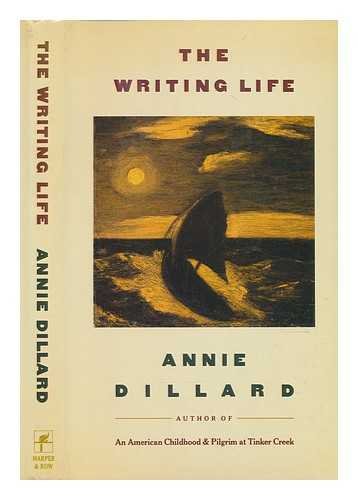
2. My Trade Is Mystery by Carl Phillips
This little writing book is such a gem! I first started reading it this past winter and had to force myself to slow down so that I could savor every single word from the accomplished writer, poet, and teacher Carl Phillips. The book jacket describes this as the “ultimate companion for writers at every stage of their journey,” and it truly is such. It’s also a fresh take on writing advice in a market saturated by how-to writing books and instruction manuals. Here is a passage I continue to revisit:
“To write poems that make a meaningful difference, that do the transformative work of showing readers (and myself as the writer) the world in a new way—this is difficult, yes. But the chance for surprise makes the work inviting. Difficulty, surprise—maybe that’s all a career comes down to. Difficulty meets surprise, and—without having thought to choose to—they mate for life.” (Phillips, 27)
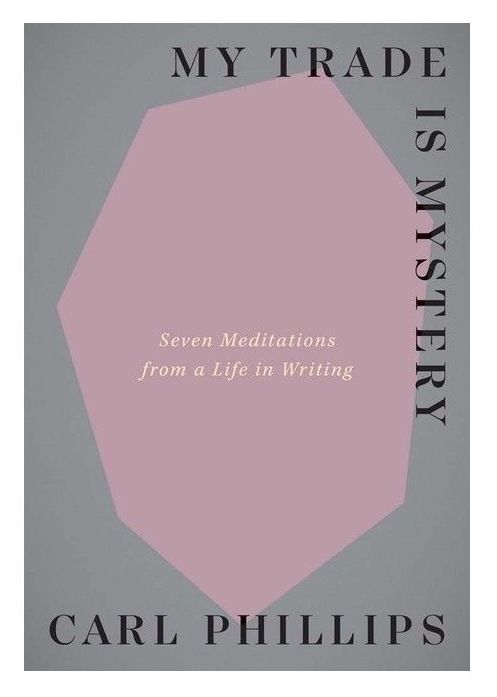
3. Body Work by Melissa Febos
Melissa Febos has long been one of my favorite authors and essayists. Her work is raw and profoundly human. When I learned she was publishing her own book on writing, I couldn’t wait to get my hands on it, knowing it would offer a fresh and intimate take on personal narrative. It has, of course, exceeded my expectations and become a regular companion to my own writing practice. In a little more than 150 pages, Febos transforms the way writers consider the page and how we use it to explore our truest and most personal stories—which often include desires and physical bodies. Author Alexander Chee calls it “one of the most liberating books on the subject of writing.” I suggest every writer snag a copy to keep on their desk.
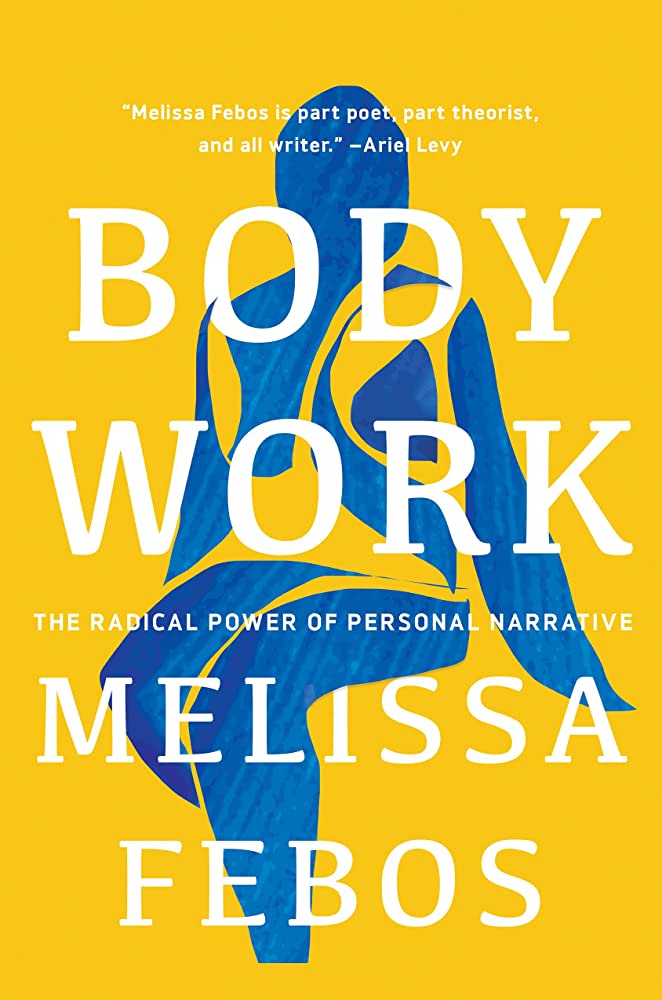
4. Bird by Bird by Anne Lamott
Is a writing book roundup complete if it doesn’t include Bird by Bird? While an older book on the market (first published in 1994), there’s a reason Anne Lamott’s work continues to be praised and quoted by writers everywhere—my own copy is dog-eared, weathered, and hardly decipherable from highlighter and margin notes.
Lamott has long been known for her honest writing and ability to put things plainly for readers, and she does just that in this instruction manual, too. If I’ve taken anything from my reading (and re-readings) of her words, it’s that there is nothing more sacred than finding your inner voice and allowing it to live on the page. “Train yourself to hear that small inner voice,” she writes. (113, Lamott)
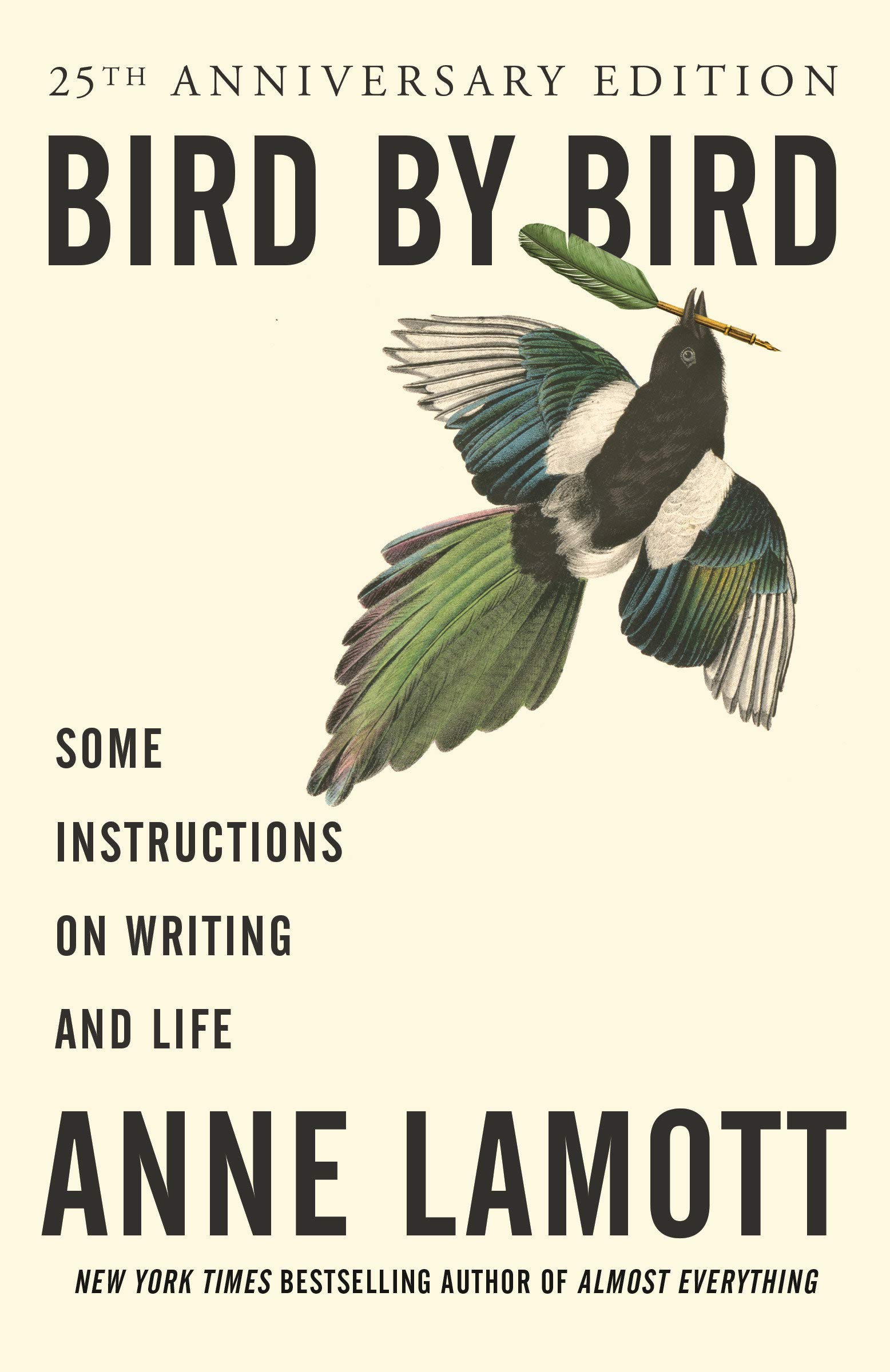
5. Before and After the Book Deal by Courtney Maum
If you’re writing a book (or want to), this is essentially the bible you’ll want to memorize and reference again and again. Courtney Maum offers insider advice from the book publishing world, whether you’re trying to finish your novel, find an agent, or navigate the terrifying waters—and jargon—of the pub industry. I reference my copy weekly, if not more, and recommend it to anyone who tells me they are writing a book. You can also subscribe to Maum’s substack newsletter for regular writing advice delivered to your inbox.
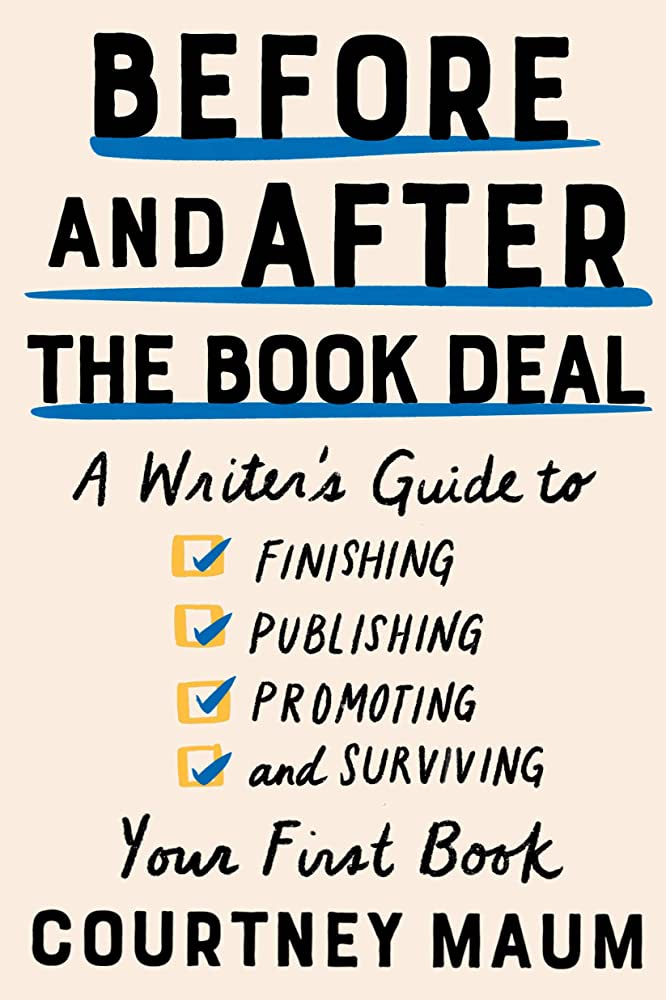
Forthcoming: How We Do It by Jericho Brown and Darlene Taylor
This one isn’t out in the world until summer, so while I can’t give my personal recommendation just yet, I can say I think it’s going to be very, very good . It includes experiences and expertise from more than 30 acclaimed writers and celebrates the Black creative spirit. Preorders are super important for authors and the success of books, so consider ordering a copy before pub date to express your interest. (Plus, it’s always fun to get a book in the mail that you purchased months ago!)
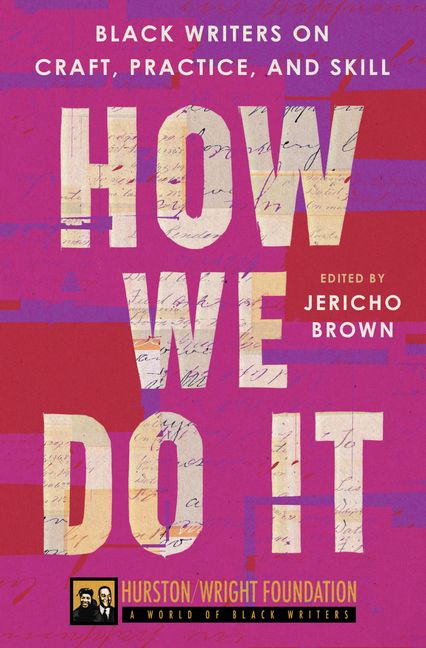
Kayti Christian (she/her) is the Managing Editor at The Good Trade. She has a Master’s in Nonfiction Writing from the University of London and is the creator of Feelings Not Aside , a newsletter for sensitive people.
RELATED READING
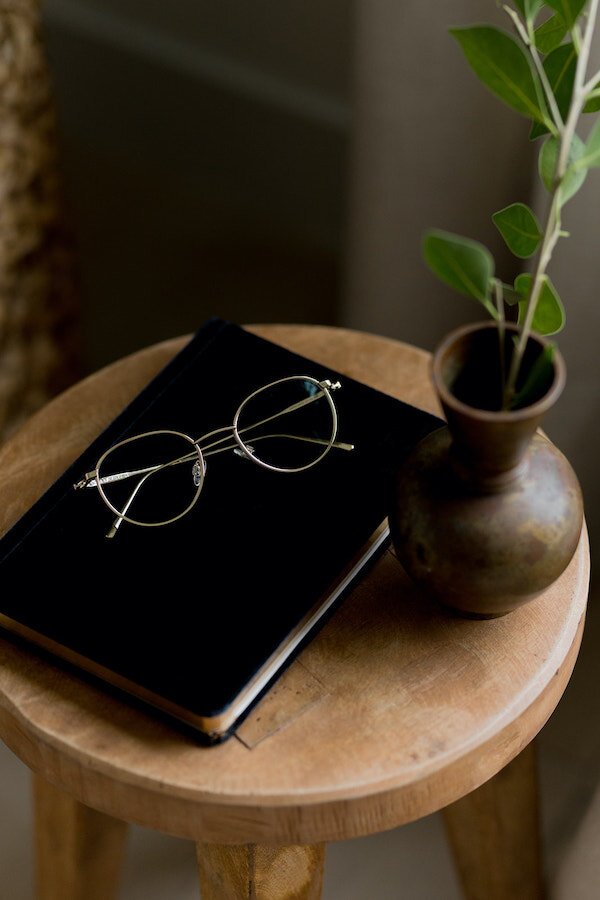
11 Journal Prompts To Help You Determine Your Personal Values

99+ Best Email Newsletters To Subscribe To In 2024

9 Books By Black Authors Our Editor Loves

99 Inexpensive Self-Care Ideas For Your New Year
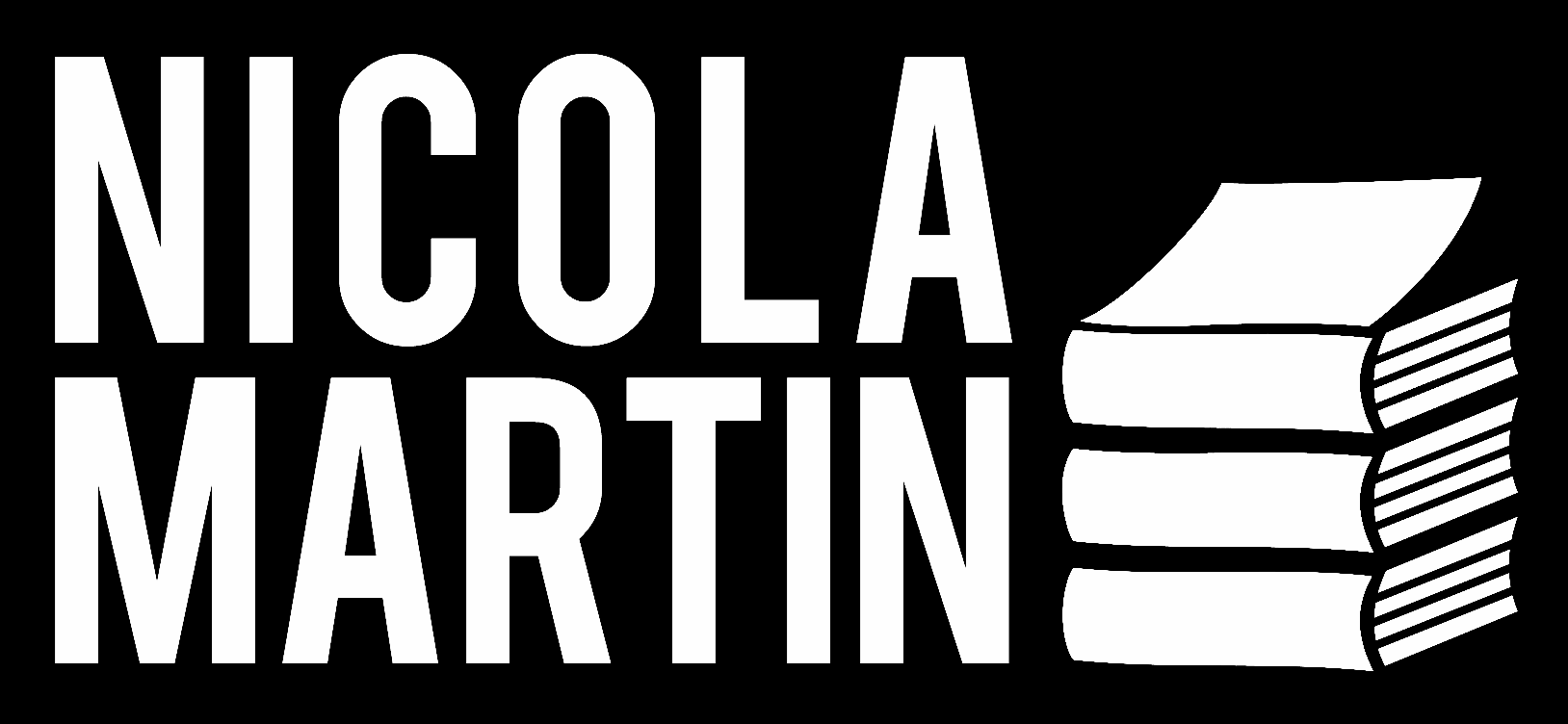
5 best books on writing for beginners and beyond
Whether you’re starting out in creative writing or looking to fine-tune your writing craft, there are a wealth of reference books out there..
Here are five that I find invaluable:
Self-Editing for Fiction Writers – Renni Browne and Dave King
The first time I flicked through Self-Editing for Fiction Writers , I was unimpressed. A chapter on Show Don’t Tell? Pleeeeeease. Are you also going to tell me not to use adverbs ?
Then I actually read the chapter on Show Don’t Tell and realised I’d never fully understood Show Don’t Tell before. Every chapter of Self-Editing for Fiction Writers is like that.
Renni Browne and Dave King explain the fundamentals of writing in a way that’s clear, comprehensive and yet also concise.
Having a problem with POV? Check this book. Dialogue a bit dodgy? Check this book.
I refer to this book at least once a month. I also recommend it to fellow writers more than any other writing book.
The Story Grid – Shawn Coyne
While Self-Editing for Fiction Writers is about the nuts and bolts of writing, The Story Grid zooms you upwards 26,000ft. Shawn Coyne’s book is all about helicopter-view, big-picture storytelling.
It’s also the solution to the hardest question you’ll have as a writer, “Why don’t people find my fiction compelling?”
(Trust me, I’ve been there.)
Shawn Coyne details narrative arcs and genre beats, and gives writers a framework to begin editing (truly editing, not polishing) their novel.
I am not kidding when I say that The Story Grid method was the only way I was able to make it through the final rewrite of my debut thriller, Dead Ringer .
On Writing – Stephen King
Ever noticed how many creative writing books are by writers you’ve never heard of?
This is the reason I rate Stephen King’s On Writing . Love him or hate him, you can’t argue with his success.
Some of King’s advice I agree with, some I don’t (King is far more of a pantser than I will ever be), but there’s plenty to chew over.
Most cheering, perhaps, is the account of King’s journey to publication and success. It’s a reminder of how much of this life is perseverance .
Writing Down the Bones – Natalie Goldberg
Writing Down the Bones is the book I return to when I need a shot of inspiration. Creative writing books can be dry. “Do this. Don’t do this.”
Natalie Goldberg, by contrast, is your effervescent fairy godmother. With chapter titles like “Writing is not a McDonald’s Hamburger”, Writing Down the Bones is all about learning to love the creative process.
Goldberg’s philosophy is that writing is a type of meditation and sessions of “freewriting”, where you write and write and write without stopping, can unleash your creativity.
This isn’t the way I write, typically, but it’s a good way of battling writer’s block or forcing a start to a new project when you feel overwhelmed.
2k to 10k: How to write faster, write better, and write more of what you love – Rachel Aaron
If Writing Down the Bones is airy-fairy, 2k to 10k is just-the-facts-ma’am. It’s also the craft book that best describes the way I write. If ever I find myself floundering, it’s usually because I’ve strayed from Rachel Aaron’s triangle .
Aaron’s story is pretty incredible: as a new mother with limited time to write and deadlines looming, she had to figure out a way to write a lot, fast. I doubt I will ever be cracking 10,000 words a day like Aaron, but by using her strategies, I easily started boosting my daily word count by 500 words or more.
What are those strategies? Write during your most creative hours; plan your stories with a detailed outline; figure out what you’re going to write ahead of time (daydreaming is better done when queueing at the bank, not at your desk; plot holes are better untangled in note form, not when you’re halfway through a scene); and pack your novel full of things you can’t wait to write.
Which writing craft books do you come back to time and again? Let me know your recommendations in the comments.
Pin this post:.
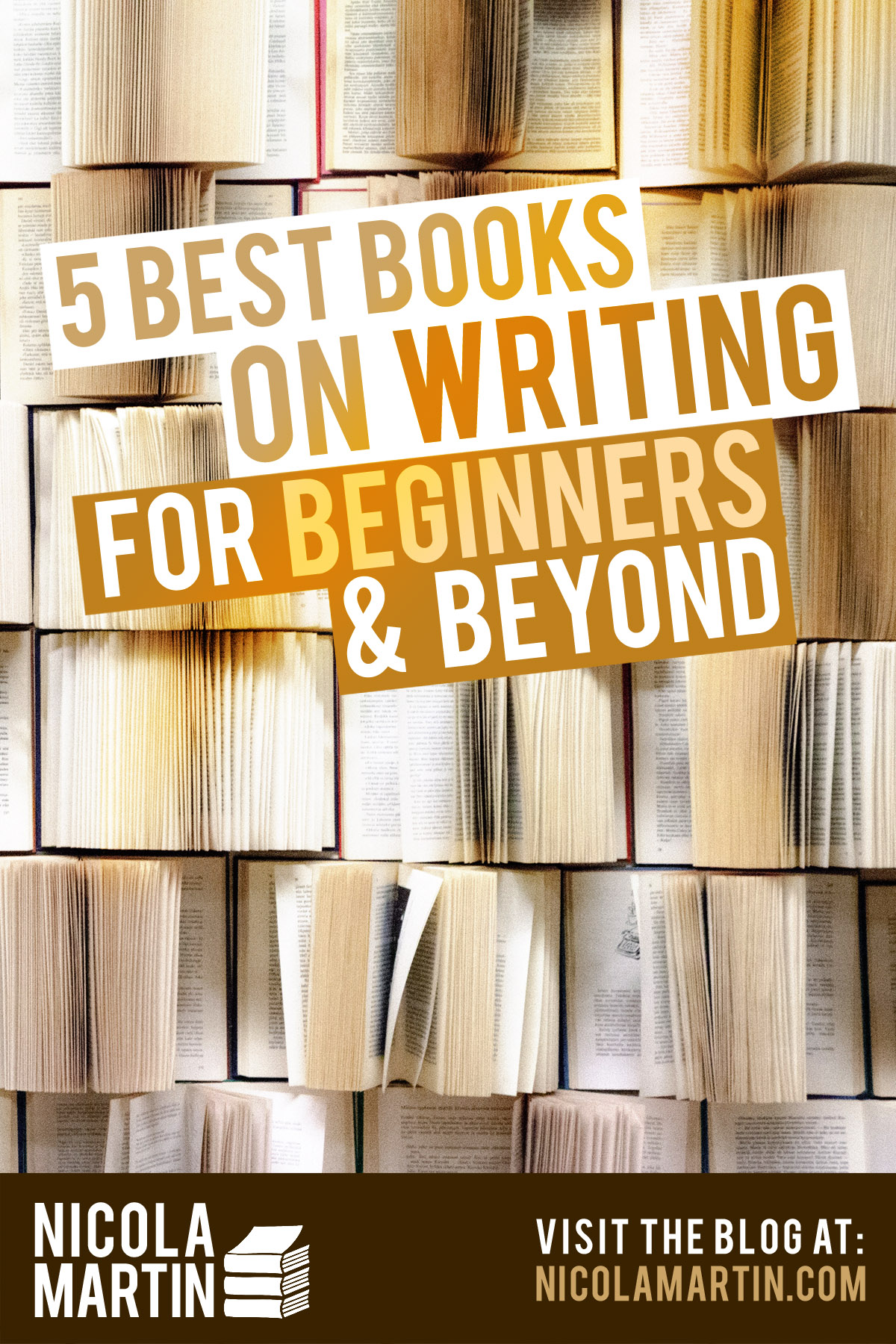
Similar Posts
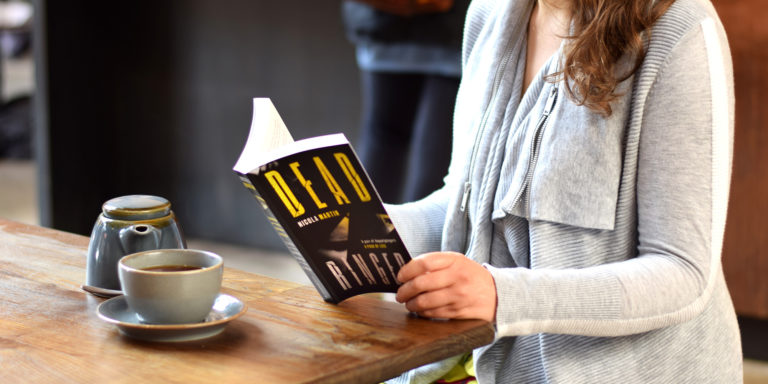
You’ll have to rearrange your life in order to write a novel – Things I learned while writing Dead Ringer
If there’s one myth about writing that I hate, it’s the myth that great novels were written in snatched 5-minute bursts. “Get up earlier and write while drinking your morning coffee! Write in your lunch break! If you’re not writing while simultaneously making a risotto and changing a duvet cover, you obviously don’t want it…
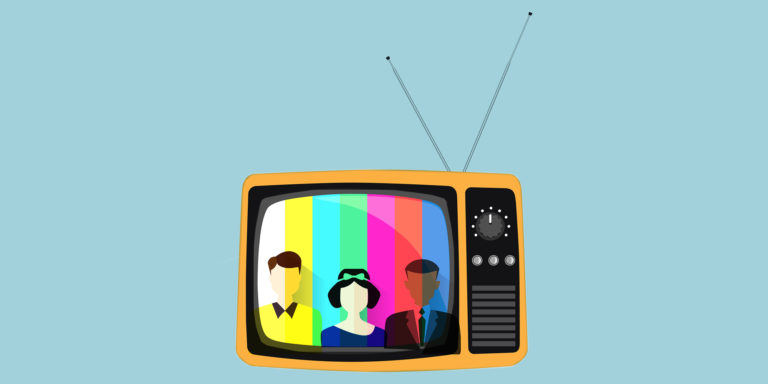
5 writing lessons you can learn from reality TV
Here’s a writing assignment for you: turn on the TV! The reality TV casting process provides a devilishly fun way to improve characterization when writing your novel or short stories. Whether it’s Survivor, Big Brother, Housewives, or Love Island, your favourite guilty pleasure reality TV show doesn’t happen on its own. Every reality show is…
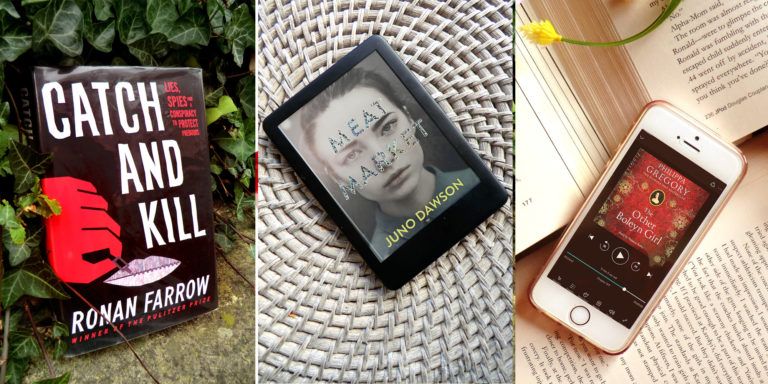
Reading Round-Up #1: Ronan Farrow, Juno Dawson, Philippa Gregory and more
What books have I been reading and enjoying over the last couple of months? Here’s a quick rundown… Non Fiction Catch and Kill: Lies, Spies and a Conspiracy to Protect Predators – Ronan Farrow Even if, like me, you never want to hear the words “Harvey Weinstein” ever again, this book is still a must….
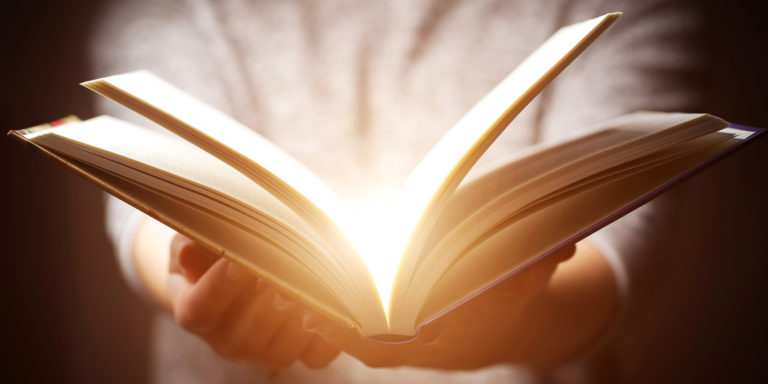
How to get your book published
The path to getting your novel or non-fiction book published can be circuitous and confusing, so here’s my step-by-step guide to how the whole process works for first-time authors. Write the whole book first Many new writers cling to the idea that they can sell a book to an agent/publisher based on a great hook…

Why do mediocre novels get published? My theory (and what writers can learn from it)
There’s little more frustrating than picking up a book and realising it’s BAY-AD. The characters are cardboard cut-outs. The action is melodramatic or unbelievable. It breaks every rule in your well-thumbed writing craft books. “How did this get published??” you wonder. If you’re a writer yourself, you might follow it up with: “If this can…

The one thing I changed about my writing process that took me from slush pile to publication
I made one (very simple) change to my writing process a couple of years ago that’s been truly transformative. Previously, when I had an idea for a story, I used to start with plot-related notes or an outline or just dive in to the first scene. Now I start with character. I commit to writing…
Thank you for these recommendations. I just got fired for the first time in my life! Instead of being down about it, I thought I’d use it to finally write a book. I also just found out I am going to be a grandma and would love to be a stay at home Gammy! Any other advice? Bless you.
- Pingback: Revisiting Gone Girl: 5 things writers can learn from it - Nicola Martin
Leave a Reply Cancel reply
Your email address will not be published. Required fields are marked *

Elements of Creative Writing
(3 reviews)
J.D. Schraffenberger, University of Northern Iowa
Rachel Morgan, University of Northern Iowa
Grant Tracey, University of Northern Iowa
Copyright Year: 2023
ISBN 13: 9780915996179
Publisher: University of Northern Iowa
Language: English
Formats Available
Conditions of use.
Learn more about reviews.
Reviewed by Colin Rafferty, Professor, University of Mary Washington on 8/2/24
Fantastically thorough. By using three different authors, one for each genre of creative writing, the textbook allows for a wider diversity of thought and theory on writing as a whole, while still providing a solid grounding in the basics of each... read more
Comprehensiveness rating: 5 see less
Fantastically thorough. By using three different authors, one for each genre of creative writing, the textbook allows for a wider diversity of thought and theory on writing as a whole, while still providing a solid grounding in the basics of each genre. The included links to referred texts also builds in an automatic, OER-based anthology for students. Terms are not only defined clearly, but also their utility is explained--here's what assonance can actually do in a poem, rather than simply "it's repeated vowel sounds,"
Content Accuracy rating: 5
Calling the content "accurate" requires a suspension of the notion that art and writing aren't subjective; instead, it might be more useful to judge the content on the potential usefulness to students, in which case it' s quite accurate. Reading this, I often found myself nodding in agreement with the authors' suggestions for considering published work and discussing workshop material, and their prompts for generating creative writing feel full of potential. It's as error-free, if not more so, than most OER textbooks (which is to say: a few typos here and there) and a surprising number of trade publications. It's not unbiased, per se--after all, these are literary magazine editors writing the textbook and often explaining what it is about a given piece of writing that they find (or do not find) engaging and admirable--but unbiased isn't necessarily a quantity one looks for in creative writing textbooks.
Relevance/Longevity rating: 4
The thing about creative writing is that they keep making more of it, so eventually the anthology elements of this textbook will be less "look what's getting published these days" and more "look what was getting published back then," but the structure of the textbook should allow for substitution and replacement (that said, if UNI pulls funding for NAR, as too many universities are doing these days, then the bigger concern is about the archive vanishing). The more rhetorical elements of the textbook are solid, and should be useful to students and faculty for a long time.
Clarity rating: 5
Very clear, straightforward prose, and perhaps more importantly, there's a sense of each author that emerges in each section, demonstrating to students that writing, especially creative writing, comes from a person. As noted above, any technical jargon is not only explained, but also discussed, meaning that how and why one might use any particular literary technique are emphasized over simply rote memorization of terms.
Consistency rating: 4
It's consistent within each section, but the voice and approach change with each genre. This is a strength, not a weakness, and allows the textbook to avoid the one-size-fits-all approach of single-author creative writing textbooks. There are different "try this" exercises for each genre that strike me as calibrated to impress the facets of that particular genre on the student.
Modularity rating: 5
The three-part structure of the book allows teachers to start wherever they like, genre-wise. While the internal structure of each section does build upon and refer back to earlier chapters, that seems more like an advantage than a disadvantage. Honestly, there's probably enough flexibility built into the textbook that even the callbacks could be glossed over quickly enough in the classroom.
Organization/Structure/Flow rating: 5
Chapters within each genre section build upon each other, starting with basics and developing the complexity and different elements of that genre. The textbook's overall organization allows some flexibility in terms of starting with fiction, poetry, or nonfiction.
Interface rating: 4
Easy to navigate. I particularly like the way that links for the anthology work in the nonfiction section (clearly appearing at the side of the text in addition to within it) and would like to see that consistently applied throughout.
Grammatical Errors rating: 5
A few typos here and there, but you know what else generally has a few typos here and there? Expensive physical textbooks.
Cultural Relevance rating: 5
The anthology covers a diverse array of authors and cultural identities, and the textbook authors are not only conscious of their importance but also discuss how those identities affect decisions that the authors might have made, even on a formal level. If you find an underrepresented group missing, it should be easy enough to supplement this textbook with a poem/essay/story.
Very excited to use this in my Intro to CW classes--unlike other OERs that I've used for the field, this one feels like it could compete with the physical textbooks head-to-head. Other textbooks have felt more like a trade-off between content and cost.
Reviewed by Jeanne Cosmos, Adjunct Faculty, Massachusetts Bay Community College on 7/7/24
Direct language and concrete examples & Case Studies. read more
Direct language and concrete examples & Case Studies.
References to literature and writers- on track.
Relevance/Longevity rating: 5
On point for support to assist writers and creative process.
Direct language and easy to read.
First person to third person. Too informal in many areas of the text.
Units are readily accessible.
Process of creative writing and prompts- scaffold areas of learning for students.
Interface rating: 5
No issues found.
The book is accurate in this regard.
Cultural Relevance rating: 4
Always could be revised and better.
Yes. Textbook font is not academic and spacing - also not academic. A bit too primary. Suggest- Times New Roman 12- point font & a space plus - Some of the language and examples too informal and the tone of lst person would be more effective if - direct and not so 'chummy' as author references his personal recollections. Not effective.
Reviewed by Robert Moreira, Lecturer III, University of Texas Rio Grande Valley on 3/21/24
Unlike Starkey's CREATIVE WRITING: FOUR GENRES IN BRIEF, this textbook does not include a section on drama. read more
Comprehensiveness rating: 4 see less
Unlike Starkey's CREATIVE WRITING: FOUR GENRES IN BRIEF, this textbook does not include a section on drama.
As far as I can tell, content is accurate, error free and unbiased.
The book is relevant and up-to-date.
The text is clear and easy to understand.
Consistency rating: 5
I would agree that the text is consistent in terms of terminology and framework.
Text is modular, yes, but I would like to see the addition of a section on dramatic writing.
Topics are presented in logical, clear fashion.
Navigation is good.
No grammatical issues that I could see.
Cultural Relevance rating: 3
I'd like to see more diverse creative writing examples.
As I stated above, textbook is good except that it does not include a section on dramatic writing.
Table of Contents
- Introduction
- Chapter One: One Great Way to Write a Short Story
- Chapter Two: Plotting
- Chapter Three: Counterpointed Plotting
- Chapter Four: Show and Tell
- Chapter Five: Characterization and Method Writing
- Chapter Six: Character and Dialouge
- Chapter Seven: Setting, Stillness, and Voice
- Chapter Eight: Point of View
- Chapter Nine: Learning the Unwritten Rules
- Chapter One: A Poetry State of Mind
- Chapter Two: The Architecture of a Poem
- Chapter Three: Sound
- Chapter Four: Inspiration and Risk
- Chapter Five: Endings and Beginnings
- Chapter Six: Figurative Language
- Chapter Seven: Forms, Forms, Forms
- Chapter Eight: Go to the Image
- Chapter Nine: The Difficult Simplicity of Short Poems and Killing Darlings
Creative Nonfiction
- Chapter One: Creative Nonfiction and the Essay
- Chapter Two: Truth and Memory, Truth in Memory
- Chapter Three: Research and History
- Chapter Four: Writing Environments
- Chapter Five: Notes on Style
- Chapter Seven: Imagery and the Senses
- Chapter Eight: Writing the Body
- Chapter Nine: Forms
Back Matter
- Contributors
- North American Review Staff
Ancillary Material
- University of Northern Iowa
About the Book
This free and open access textbook introduces new writers to some basic elements of the craft of creative writing in the genres of fiction, poetry, and creative nonfiction. The authors—Rachel Morgan, Jeremy Schraffenberger, and Grant Tracey—are editors of the North American Review, the oldest and one of the most well-regarded literary magazines in the United States. They’ve selected nearly all of the readings and examples (more than 60) from writing that has appeared in NAR pages over the years. Because they had a hand in publishing these pieces originally, their perspective as editors permeates this book. As such, they hope that even seasoned writers might gain insight into the aesthetics of the magazine as they analyze and discuss some reasons this work is so remarkable—and therefore teachable. This project was supported by NAR staff and funded via the UNI Textbook Equity Mini-Grant Program.
About the Contributors
J.D. Schraffenberger is a professor of English at the University of Northern Iowa. He is the author of two books of poems, Saint Joe's Passion and The Waxen Poor , and co-author with Martín Espada and Lauren Schmidt of The Necessary Poetics of Atheism . His other work has appeared in Best of Brevity , Best Creative Nonfiction , Notre Dame Review , Poetry East , Prairie Schooner , and elsewhere.
Rachel Morgan is an instructor of English at the University of Northern Iowa. She is the author of the chapbook Honey & Blood , Blood & Honey . Her work is included in the anthology Fracture: Essays, Poems, and Stories on Fracking in American and has appeared in the Journal of American Medical Association , Boulevard , Prairie Schooner , and elsewhere.
Grant Tracey author of three novels in the Hayden Fuller Mysteries ; the chapbook Winsome featuring cab driver Eddie Sands; and the story collection Final Stanzas , is fiction editor of the North American Review and an English professor at the University of Northern Iowa, where he teaches film, modern drama, and creative writing. Nominated four times for a Pushcart Prize, he has published nearly fifty short stories and three previous collections. He has acted in over forty community theater productions and has published critical work on Samuel Fuller and James Cagney. He lives in Cedar Falls, Iowa.
Contribute to this Page

The Adventures in Writing Series
This series of books takes you on an adventure through the world of creative writing. You’ll learn about — and experiment with — fiction, poetry, and creative nonfiction writing. Plus, you’ll acquire essential writing tools and learn useful writing techniques, all while having fun with your craft. Click any book cover or title to read a full description and get your copy!

Great writers have two things in common: They practice, always working to get better at it, and they read—a lot. Why not do both at the same time? These are some of the best books to read about writing. The advice, exercises and examples you’ll find will help you become better at your craft.
The books listed below cover different aspects of writing, from creativity and inspiration, to advice from the experts, to grammar and style :
Writing Down the Bones , by Natalie Goldberg
Steal Like an Artist: 10 Things Nobody Told You About Being Creative , by Austin Kleon
Big Magic , by Elizabeth Gilbert
On Writing , by Stephen King
Bird by Bird , by Anne Lammott
Stein on Writing , by Sol Stein
On Writing Well (30th Anniversary Edition) , by William Zinsser
It was the best of sentences, it was the worst of sentences. , by June Casagrande
Dreyer’s English , by Benjamin Dreyer
The Elements of Style , by Strunk and White
Creativity and inspiration
These are my top three picks for books that’ll encourage you to write and live more creatively . If you only have time to read one, I suggest Big Magic —it’s the most inspiring of the bunch. If you’re looking for something with more exercises and concrete tips, start with Writing Down the Bones or Steal Like an Artist . Looking for more books on creativity? Check out The Artist’s Way or anything else by Julia Cameron.
01. Writing Down the Bones , by Natalie Goldberg
Best for: Writers from all backgrounds, genres and levels.
Read it when: You’re feeling stuck with your writing career, need some inspiration, or just have good ol’ writer’s block.

Fondly called ‘ Bones ’ by other writers, this book is like taking your inner writer to therapy. Explore not just how you write, but why . Become mindful of your unique pain points as a writer, think about what being a writer means to you, and find the best way to move forward from where you are now—even if you’re feeling like you’ll never make it as a writer.
Goldberg herself had her share of rejection: Writing Down the Bones was turned down by seven big publishing houses, before being accepted by a new and small publisher called Shambhala. Now, there’s a 30th edition with a foreword by Julia Cameron.
The author sprinkles writing prompts and creativity exercises throughout the book—the goal is to help you explore and get connected to yourself. One exercise I had a lot of fun with was to take ten minutes and write about a meal you love. In no time, I was deep in nostalgia about my mom’s baked salmon and leafy-green salad. It can be tempting to skip the exercises, especially once you enter “reading mode”, but you’ll get a lot more out of the book by taking a few minutes to try them.
Goldberg’s main mission is to encourage you to simply write . Not to go out and find a writing class, not to force yourself to “just write” for 10 minutes a day—but to really sit down and put your whole self into it. If you’re watching the clock and writing because you heard somewhere that you need to write every single day, then your heart isn’t really in it. So go deep and speak your truth—with your writing and also in your life.
“That is the challenge: to let writing teach us about life and life about writing.”
Buy Writing Down the Bones and read more reviews on goodreads .
02. Steal Like an Artist: 10 Things Nobody Told You About Being Creative , by Austin Kleon
Best for: Writers looking to jumpstart creative thinking.
Read it when: You’re short on time and feeling unsure of how to start your next project.

Kleon, a self-described “writer who draws”, authored multiple best-selling books about creativity. In this New York Times hit, he gives ten tips for getting in touch with your inner artist. It’s quick and fun to read (I read it in about an hour). Even if you’ve already read many books in the genre, this one still delivers.
The author starts out by calling out obstacles that get in the way of being creative—the pressure to be “original” and the all-too familiar imposter syndrome . Kleon wants you to get inspired by work you admire, because there isn’t anything out there that’s truly original. Everything is based on something that already exists. Even if you don’t feel ready, just start making things. “Ask anybody doing truly creative work, and they’ll tell you the truth: They don’t know where the good stuff comes from. They just show up to do their thing. Every day.”
What resonated with me the most in this book is the importance of movement and using your hands when being creative. For his first book, the author used a newspaper and a black marker to write a best-selling book of poetry. His writing process was hands-on, engaging most of his senses - touching the newspaper, the sound and smell of the marker, the sight of words being blacked out. Bringing this practice into my own life, I’ve finally taken my new Paint by Numbers kit out of its packaging.
“Draw the art you want to see, start the business you want to run, play the music you want to hear, write the books you want to read, build the products you want to use—do the work you want to see done.”
Buy Steal Like an Artist and read more reviews on goodreads .
03. Big Magic , by Elizabeth Gilbert
Best for: Anyone who wants to live a more creative life.
Read it when: Anytime, but it’s an especially great pick-me-up if you’ve just gotten a rejection letter.

In Big Magic , Gilbert gives her take on what creativity is, how to bring more of it into your life, and how fear of rejection stands in the way. It’s obvious how much Gilbert enjoys writing and putting her work out there—and that’s what makes it so fun to read. I just didn’t want this book to end.
My personal takeaway here is learning how to cope with my own feelings of failure as a writer. Hearing her stories of rejection and success is inspiring, and makes me want to rewire my own reactions to criticism I get at work.
“I decided to play the game of rejection letters as if it were a great cosmic tennis match: Somebody would send me a rejection, and I would knock it right back over the net, sending out another query that same afternoon.”
Speaking of cosmic tennis matches—if you’ve read other books by Gilbert, you may already be familiar with the way she plays with anthropomorphism. It’s one of my favorite things about her writing style. In Big Magic , she gives ideas (artistic, scientific, religious, etc.) their own persona, turning abstract concepts into concrete companions that can go a long way helping writers.
“Ideas spend eternity swirling around us, searching for available and willing human partners…When an idea thinks it has found somebody—say, you—who might be able to bring it into the world, the idea will pay you a visit...The idea will not leave you alone until it has your fullest attention. And then, in a quiet moment, it will ask, 'Do you want to work with me?'”
Buy Big Magic and read more reviews on goodreads .
Advice from the experts
These are my top four picks for general writing tips from the pros. If you only have time to read one book in this category, I’d go for On Writing Well by William Zinsser because it touches on many different aspects of writing that’s relevant to most writers—or Stein on Writing , if you want to improve your storytelling skills.
04. On Writing , by Stephen King
Best for: (Mostly) fiction writers.
Read it when: You want quality advice from a writer, but also want to read a memoir.

Stephen King’s On Writing is a classic, and was highly recommended to me by other writers. He starts off by telling us about how he got to be a writer, his early struggles, and how he eventually found success.
Personally, I didn’t LOVE the memoir-ish first half of the book. I included it because so many others have enjoyed it, and, you know—classic and all that. If I wasn’t writing an article about writing books, I’m not sure I would have finished it—but I’m glad I did, because the good stuff really comes towards the end.
His advice focuses mostly on how to build a story and develop characters, as well as some more technical, grammar-related tips. I especially enjoyed his passion for grammar: “I believe the road to hell is paved with adverbs, and I will shout it from the rooftops.”
Two lessons I’m taking with me into my writing life are to not show anyone my work until after my first draft (so that I have space to come up with my own feelings about it), and a formula for cutting words: Second draft = First draft - 10%. I already try to remove any unnecessary fluff from my writing when I revise, but I never thought about it in such a structured way. King suggests moving onto other projects before going in for a second draft—the time away helps distance you from the words, making it less “yours”—and that’s what makes it easier to cut.
No one said writing was easy—so it’s comforting to know that even best-selling authors struggle with it.
“Writing fiction, especially a long work of fiction, can be a difficult, lonely job; it’s like crossing the Atlantic Ocean in a bathtub.”
Buy On Writing and read more reviews on goodreads .
05. Bird by Bird , by Anne Lammott
Best for: Fiction writers, memoir writers.
Read it when: You feel stuck or frustrated with your writing, and want to know you’re not alone.

As with King’s On Writing , this one came highly recommended by both Google and other writers. And just like King’s book, it was hard for me to get into it—but the rest of the book made it worth it.
Reading this book was like sitting down with an accomplished writer and hearing the real deal about the writing process—the failures, the hopes, that letter from her editor that made her cry, and everything in between. It felt nice to know that even “real” writers don’t get it right the first time.
My favorite advice from Lammot is her wise words about getting feedback on your work from people you trust, before you show it to editors. She compares it to when you’re getting ready for a party: If there’s someone there to gently let you know that maybe that specific dress isn’t so flattering, you might be disappointed for a minute, but then you’re relieved that at least you’re still at home and have a chance to change before showing up in public.
This advice is very timely for me, because I’ve just been thinking about why it’s so easy for me to take criticism from specific colleagues, while the same feedback from others makes me question my decision to even be a writer.
Lammot’s encouraging words throughout the book are here to remind that you’re not alone in your struggle, that many writers struggle with self-doubt, and the importance of not giving up.
“Writing a first draft is very much like watching a Polaroid develop. You can’t - and in fact, you’re not supposed to - know exactly what the picture is going to look like until it has finished developing.”
Buy Bird by Bird and read more reviews on goodreads .
06. Stein on Writing , by Sol Stein
Best for: All writers (fiction and nonfiction) who want to engage readers with a captivating narrative.
Read it when: You want to improve your storytelling.

The art of storytelling isn’t just for fiction—it’s what makes people interested enough to keep reading, whether you’re writing a novel or reporting on local politics . The key to engaging readers and providing them with an emotional experience is to show, not tell.
Using his experience as an editor and publisher, Stein provides a guide in sharpening your storytelling skills, from creating suspense, developing compelling characters, writing good dialogue, coming up with a title that intrigues readers—and offers a new approach to revising your first draft. He calls it “triage” and advocates for looking at major parts of your story (like characters, scenes, and actions) before doing a thorough revision. Even nonfiction writers can apply this to their work—the idea being that you should find and fix major issues in your work before you start going line by line.
By the time your project is done, you want each word to have a purpose. My professional writing life usually consists of trying to cut words wherever possible—I’m always looking for ways to make sentences shorter, tighter, simpler. But sometimes extra words are necessary to make your writing memorable and give your readers a clear visual. Here’s an example Stein gives:
“Vernon was a heavy smoker” vs. “ When a waitress heard Vernon’s voice she always guided him to the smoking section without asking.”
The second version gives you a tactile experience of what Vernon sounds like, and is more interesting to read. Even though it adds quite a few more words, it engages readers more and brings them into the story. Which is really the whole purpose of writing, isn’t it?
“You wouldn’t feed cardboard meals to guests. Don’t feed cardboard meals to your characters. Make your reader’s taste buds pop, even if he's from outer space.”
Buy Stein on Writing and read more reviews on goodreads .
07. On Writing Well (30th Anniversary Edition) , by William Zinsser
Best for: Everyone, especially nonfiction writers.
Read it when: You’re looking for a straightforward guide to improving your writing.

Zinsser is a writer, editor, and teacher - and he has great advice for anyone looking to sharpen their writing skills. You’ll learn how to start and end your writing piece, how to revise, and how to write clearly and concisely. Some parts of the book are geared towards nonfictions writers—like the chapters dedicated to specific types of writing (e.g., culture, sports, and travel), but a lot of his advice is helpful to all writers, like his philosophy of revisions:
“I don’t like to write; I like to have written. But I love to rewrite. I especially like to cut: to press the DELETE key and see an unnecessary word or phrase or sentence vanish into the electricity. I like to replace a humdrum word with one that has more precision or color...With every small refinement I feel that I’m coming nearer to where I would like to arrive, and when I finally get there I know it was the rewriting, not the writing, that won the game.”
Two tips from Zinsser that I’m already putting into practice: not visualizing the end result, and removing qualifiers from my writing. The first one resonates with me right now because I’m three years into working on a family memoir, and visualizing the final result has kept me paddling in the “research” and “interviewing” phase—now I put my focus back on the writing itself. As for the second one, I always scan my work now to check for qualifiers that make my words seem less confident, like: a bit , sort of , rather , quite , pretty much , etc. These phrases take away from the impact your words can have on the reader.
“Readers want a writer who believes in himself and in what he is saying. Don’t diminish that belief. Don’t be kind of bold. Be bold.”
Buy On Writing Well and read more reviews on goodreads .
Grammar and style
Your idea of fun probably isn’t to spend your weekends cozying up with tea and a stack of grammar books. Most grammar books are dry and not what I’d describe as light, fun reading. That’s why my goal was to find ones that are educational, but not boring. Only have time to read one book in this category? I’d go for It was the best of sentences, it was the worst of sentences. —it’s entertaining, and the author makes grammar fun.
08. It was the best of sentences, it was the worst of sentences. , by June Casagrande
Who is this book for: Anyone looking to write better sentences or brush up on their grammar.
Read it when: You want a quick guide to grammar that gets you back to basics.

A journalist and editor, Casagrande breaks down the basics of grammar in a way that’s easy to understand, and explains how to use it to improve each sentence you write. And with a touch of humor and wit, she makes it fun to read, too. For example, as writers we may instinctively know that these sentences are bad, but Casagrande digs into the grammar to explain why:
“Running down the street in high heels, my dog was too fast for me to catch.” (Dangling participle—sounds like your dog was wearing the heels!)
“She was awarded a national book award in fiction as well as a finalist for the Pulitzer Prize.” (Faulty parallelism—award and finalist don’t match.)
This book changed how I looked at grammar. Until now, I mostly got my words down and then made sure everything was grammatically correct. Now I think about how I use the principles of grammar as I work, rather than something to just check off my list.
“Yet, all great writing has one thing in common. It starts with a sentence. The sentence is a microcosm of any written work, and understanding it means understanding writing itself - how to structure ideas, how to emphasize what’s important, how to make practical use of grammar, how to cut the bull, and, above all, how to serve the almighty Reader.”
Buy It was the best of sentences, it was the worst of sentences. and read more reviews on goodreads .
09. Dreyer’s English , by Benjamin Dreyer
Read it when: You want to indulge in some grammar-snobbery and read about common writing mistakes.

As a copyeditor, Dreyer has seen it all, and he’s sharing the most common writing mistakes even experienced writers have made. I started reading for the grammar and style advice, and I kept reading for the author’s wit and pop-culture references:
“At some point in your life, perhaps now, it may occur to you that the phrase ‘aren’t I’ is a grammatical trainwreck. You can, at that point, either spend the rest of your life saying ‘am I not?’ or ‘amn’t I?’ or embrace yet another of those oddball constructions that sneak into the English language and achieve widespread acceptance, all the while giggling to themselves at having gotten away with something.”
Insights like that made this book both informative and fun to read. A warning, though: At times his cleverness does get the better of him. His elitist tone can get a bit grating, and sometimes I had to reread sentences multiple times to understand what he was saying (which I felt was ironic for a book about improving your writing skills).
My favorite part of this book was his section on phrases with redundant words. I tend to overexplain and that probably means I use redundant phrases more often than I should. Here’s what he says about “fetch back”:
“To fetch something is not merely to go get it but to go get it and return with it to the starting place. Ask a dog.”
This book doesn’t have the same cult status as The Elements of Style (the next one in the list), but its humor made it a lot more enjoyable to read.
Buy Dreyer’s English and read more reviews on goodreads .
10. The Elements of Style , by Strunk and White
Read this book when: Anytime, but mostly just so you can say you’ve read it.

This book is a classic, and appears on almost any list of “books that writers should read”. Strunk published the first edition of this guide in 1918, and it’s been a must-have for writers ever since. More recent editions have been edited and updated by White, a student of Strunk.
In a straightforward, no-nonsense style, Strunk and White lay out the basics to grammar and good writing—everything from using hyphens properly to writing concise sentences. Just note that some rules outlined in the book might not apply to writing that’s more informal.
The parts of this book I enjoyed most was when a bit of humor peeked through:
“The hyphen can play tricks on the unwary, as it did in Chattanooga when two newspapers merged - the News and the Free Press . Someone introduced a hyphen into the merger, and the paper became The Chattanooga News-Free Press , which sounds as though the paper were news-free, or devoid of news.”
Tip: If you’re planning to read this one, I recommend getting the version that’s illustrated by Maira Kalman—the beautiful paintings add a nice touch.
Buy The Elements of Style and read more reviews on goodreads .
After reading all of these great books (and a few others that didn’t make it to this list), I noticed one thing that came up over and over again: Learn the rules before you decide whether you want to follow them. Read as much as you can about the art of writing. Once you’ve got the basics down, once you know all the “writing rules”, that’s when you can have fun and start breaking them —with confidence.
What’s your favorite book on writing? Share your top picks in the comments below.
Looking to start a blog ? Wix has got your covered with thousands of design features, built-in SEO and marketing tools, that will allow you to scale your content, your brand and your business with their blog maker.

Lana Raykin, UX Writer at Wix
From New York, now lives in Tel Aviv. Loves good food, good books, and her golden retriever.

- Writing Inspiration
Recent Posts
What Is Creativity? A Guide to Living Your Most Creative Life
Virtual Event: The UX Salon WORDS 2020 Conference
10 Famous French Authors and Their Incredible Lives

19 Must-Read Books for Technical Writing Mastery (And a Good Time Along the Way)

Whether you’re creating software documentation or writing a user manual, clear communication is key. And luckily, there are a ton of great books out there to help you hone your technical writing skills. Here are 19 of the best books on technical writing to help you sharpen your pen (or keyboard).

1. “The Elements of Style” by William Strunk Jr. and E.B. White
Description : This classic book is small but mighty. It’s packed with timeless advice on writing clear, concise, and impactful sentences. From grammar to sentence structure, Strunk and White lay down the law in a way that still feels relevant.
Why Read It : Think of this as your technical writing Bible. If you’re ever stuck in a sea of jargon and overly complex sentences, this book will help you simplify your writing, which is key in technical communication. Plus, it’s short enough to read in an afternoon, leaving you with more time to apply those newfound skills.
2. “On Writing Well” by William Zinsser
Description : Zinsser’s book is beloved by writers of all genres, but technical writers will particularly appreciate his focus on clarity and simplicity. He’s all about making writing a pleasant experience for both the writer and the reader.
Why Read It : Technical writing can get, well, technical. Zinsser’s emphasis on clarity and removing unnecessary fluff makes this a must-read for anyone who wants to cut through the noise and communicate effectively.
3. “Technical Communication” by Mike Markel
Description : A comprehensive textbook that covers all the essential elements of technical writing, from audience analysis to document design. Markel offers practical advice and real-world examples that make this an invaluable resource.
Why Read It : If you need a thorough foundation in technical writing, this book has it all. It’s great for beginners but also provides depth for experienced writers looking to brush up on their skills.
4. “The Chicago Manual of Style”
Description : The ultimate reference guide for grammar, punctuation, and style. While not exclusive to technical writing, it’s a goldmine for anyone who needs to ensure their documents are grammatically pristine.
Why Read It : Technical writers often get bogged down in the nitty-gritty details, and this book will answer all your questions. From citation to comma placement, it’s your go-to for solving style-related headaches.
5. “The Yahoo! Style Guide”
Description : Aimed at those writing for the web, this guide covers everything from writing clear headlines to optimizing your content for search engines. It’s especially helpful for tech writers creating online documentation or help articles.
Why Read It : If your technical writing ends up online (which it probably does), you need to understand how to write for web audiences. This guide will show you how to create content that’s easy to scan and SEO-friendly.
6. “Style: Lessons in Clarity and Grace” by Joseph M. Williams
Description : This book offers in-depth advice on how to make your writing clear and graceful—yes, even in technical writing. Williams breaks down how to organize sentences and paragraphs in a way that flows naturally for the reader.
Why Read It : Technical writing doesn’t have to be dry and robotic. This book will teach you how to make even the most complex material readable and (dare we say) enjoyable.
7. “The Sense of Structure: Writing from the Reader’s Perspective” by George D. Gopen
Description : Gopen’s book focuses on the structure of writing and how readers perceive information. He explains how to craft sentences and paragraphs in a way that will make sense to your audience.
Why Read It : If you’ve ever written something that your reader didn’t understand, this book is for you. It will help you learn how to see your writing through the eyes of the reader and create documents that are easy to follow.
8. “The Pyramid Principle: Logic in Writing and Thinking” by Barbara Minto
Description : Minto introduces the Pyramid Principle, a method for structuring writing in a logical, top-down format. It’s a great technique for presenting complex information in an organized, easy-to-digest way.
Why Read It : Technical writing often involves explaining complex ideas. This book will help you structure your information so that readers can grasp the key points right away, without having to wade through unnecessary details.
9. “Everyday Technical Writing: Learn to Write Better Technical Documents” by Brian Bass
Description : Bass offers practical advice for technical writers, focusing on day-to-day tasks like creating manuals, writing emails, and drafting instructions.
Why Read It : This book is great for writers who need practical, hands-on advice. It’s less about theory and more about the nuts and bolts of getting your writing tasks done efficiently.
10. “Writing Software Documentation: A Task-Oriented Approach” by Thomas T. Barker
Description : As the title suggests, Barker’s book is all about creating documentation for software. It focuses on a task-oriented approach, which means structuring your documents around what users need to accomplish.
Why Read It : If you’re writing software documentation, this is your guide. It’s full of tips on how to create user-centered content that helps people do what they need to do.
11. “The Insider’s Guide to Technical Writing” by Krista Van Laan
Description : A comprehensive guide that covers everything from getting started in the field of technical writing to improving your craft. Van Laan’s book is full of tips for succeeding in the industry.
Why Read It : If you’re new to technical writing or looking to advance your career, this book will provide practical advice on everything from writing techniques to job searching.
12. “Clear and Simple as the Truth: Writing Classic Prose” by Francis-Noël Thomas and Mark Turner
Description : Thomas and Turner introduce the concept of “classic prose,” a style that emphasizes clarity, directness, and simplicity. It’s a great framework for writing technical documents that are easy to understand.
Why Read It : This book offers a new perspective on clear writing that’s especially helpful for technical writers. If you’ve ever struggled with making your writing too complex, this book will help you strip it down to the essentials.
13. “Managing Your Documentation Projects” by JoAnn T. Hackos
Description : Hackos focuses on the project management side of technical writing. She offers advice on planning, organizing, and executing large documentation projects efficiently.
Why Read It : If you’re juggling multiple documentation projects at once (which, let’s face it, most technical writers are), this book will help you stay organized and on track.
14. “Information Architecture: For the Web and Beyond” by Louis Rosenfeld, Peter Morville, and Jorge Arango
Description : This book covers the principles of organizing and structuring content for websites and software interfaces. It’s a must-read for technical writers working on web-based projects.
Why Read It : Understanding how to structure information is key in technical writing. This book will give you the tools you need to create documents that are easy to navigate and find.
15. “The Complete Idiot’s Guide to Technical Writing” by Krista Van Laan and Catherine Julian
Description : This fun and accessible guide covers all the basics of technical writing, from writing clearly to creating user-friendly documents.
Why Read It : Perfect for beginners or those needing a refresher, this book provides clear, straightforward advice without overwhelming you with jargon.
16. “Modern Technical Writing” by Andrew Etter
Description : Etter offers a fresh take on technical writing, focusing on modern tools and practices like collaborative writing and version control. He emphasizes agile workflows and the use of lightweight documentation.
Why Read It : If you want to update your technical writing process to be more agile and modern, this book will show you how to use current tools to streamline your workflow.
17. “Developing Quality Technical Information” by Gretchen Hargis et al.
Description : This book provides guidelines for creating technical documents that are clear, concise, and user-focused. It includes real-world examples and best practices for improving quality.
Why Read It : If you’re focused on creating high-quality, user-friendly documentation, this book will teach you the best practices for achieving that goal.
18. “Handbook of Technical Writing” by Gerald J. Alred, Charles T. Brusaw, and Walter E. Oliu
Description : A comprehensive reference book that covers all aspects of technical writing, from grammar to formatting to project management.
Why Read It : This is the book you keep on your desk for quick reference. It’s like a Swiss Army knife for technical writers—everything you need in one place.
19. “Writing for Science and Engineering” by Heather Silyn-Roberts
Description : Silyn-Roberts focuses on writing for the scientific and engineering fields, offering advice on how to communicate complex technical information clearly.
Why Read It : If you’re working in a technical field like engineering or science, this book will help you convey complicated concepts in a way that non-experts can understand.
Frequently Asked Questions
📖 Table of contents
Answer questions instantly
Create and share documentation that answers questions instantly with Gen AI
Receive documentation and technical writing tips & trends — our newsletter
Read more in, technical writing.
How to Give and Receive Feedback on Creative Writing
When you’ve finished a novel or short story, it’s helpful to get feedback from people you trust. You may also have a critique partner, or be part of a writing group that offers reciprocal feedback. Here’s how to make feedback useful.
When someone asks for your feedback on a piece of writing, whether it is a short story or a novel, remember that the writer requesting feedback has spent a lot of time laboring over their words, and respect the fact that they are choosing you for your opinion.
When you seek feedback for a piece of writing, it’s important that the feedback you receive is helpful. Telling your beta reader what sort of feedback you expect can ensure that the feedback is pertinent. Here’s how to give and receive feedback on your novel or short story.
The importance of feedback
While part of the writing journey is discovering the story that is within the writer, it’s only when stories resonate with readers that a piece of writing is successful. While you may not intentionally write to please others, the goal of telling a story is to engage the people who read it. The best way to know if your story or novel works is to find out what readers think.
There are many ways to find beta readers, people who read your work to give feedback before you send it out to an agent, editor, or publication. You may ask friends, family members, fellow authors, or you may seek out beta readers in other ways .
As a writer, you may be asked to give feedback on the work of other writers, especially if you are in a writing group where people exchange feedback, or you work with a critique partner. When different people read your manuscript, they may see things that you don’t notice, because you’ve been seeing them for so long. It’s always useful to get opinions on your writing, even if you may not agree with the feedback.
How to request feedback
When you request feedback for a novel or story, you shouldn’t just send it to someone without giving some guidelines. Here are some elements you might wish the feedback to address:
- Is the work enjoyable, and did the reader feel the urge to keep reading? Did they want to turn the pages and get to the end?
- Are the characters believable, and are the main characters’ motivations clear?
- Do the settings feel real?
- Is anything over-described?
- Does the dialog feel authentic?
- Is the plot believable and does the resolution make sense?
- Are sentences, paragraphs, or chapters too long or too short? Does the prose flow, or does it feel choppy?
Also, ask your reader to mention any specific points that stand out that you haven’t covered.
It’s best to ask your reader not to say anything about typos unless they interfere with the story. You will have to do several editing passes of your manuscript, and you should be able to find these yourself. You may even want to use an online grammar checker , chapter by chapter, to spot this sort of mistake. It’s not a good idea for your beta reader to get bogged down in minor details. What’s more important is hearing what they think about the story, the characters, the flow, the pacing, and all the elements that make a story or novel flow.
Remember to not take any feedback personally. Your reader may praise some things and criticize others, and their criticism is about the work, not about you as a writer. Feedback is a valuable tool for learning more about your writing, so use it wisely.
How to give useful feedback
When someone asks you to give feedback on their work, they may not have enough experience to know what to ask for. The most useful type of feedback is that described above, but the type of feedback they need may depend on whether you’re reading a work by a new writer or someone who has published already.
The first thing to do when giving feedback is to start by saying what you like about the manuscript. Highlight what works well in the piece, whether it’s plot, character, dialogue, description, or anything else. Remember that you’re giving feedback to a person who may be sensitive about the months or years they spent writing, and it’s important to reassure them that their work is valid. Think about how you would like to receive feedback and apply that to the feedback you give to others.
Make sure your feedback is balanced; for every critical point, include a positive point. Don’t shy away from criticizing elements that stand out, but do this in a constructive way. Offer suggestions for points that seem weak, but don’t rewrite entire paragraphs to show how you would have written something.
It’s important that you understand the writer’s intent, and that you are aware of how their work fits in a specific genre. For example, a friend may ask you to read a novel that is not a genre that you generally read. In this case, you may not be able to give appropriate feedback on genre-specific conventions.
When giving feedback, it’s useful to ask questions if you don’t understand something, such as a character’s motivation or a plot point. This may be more useful than criticism, as the writer, in thinking about the question, may discover something they need to improve on their own.
Giving and receiving feedback for creative writing can be sensitive, because writers are often personally attached to their work. Doing this with care and sensitivity can help writers improve their work and move ahead toward publication.
Kirk McElhearn is a writer , podcaster , and photographer . He is the author of Take Control of Scrivener , and host of the podcast Write Now with Scrivener .
Write Now with Scrivener, Episode no. 38: Veronica G. Henry, Fantasy and Mystery Author
How much should you write each day; and when should you stop writing, keep up to date.
Sign up for the latest news, writing tips and product announcements. Delivered straight to your inbox.

Picture Book III
Stretch your skills to develop a second (or beyond!) fiction or nonfiction picture book in this advanced course for experienced writers.
About this course:
Winter 2025 schedule.
Enrollment limited to 12 students; early enrollment advised. Visitors not permitted. $100 non-refundable. Enrollment discounts limited to WP NOW members; no other discounts apply.
The priority application deadline for applications is Monday, December 9, 2024 at 9am (PT). Applications submitted after this date are not guaranteed consideration.
Submission guidelines:
Submit one document (double-spaced, 12-point font, 1-inch margins on all sides) containing:
- a 10-page writing sample;
- a synopsis of up to one page if the writing sample is an excerpt from a longer work (i.e. novel or memoir);
- a personal statement of one paragraph outlining what the student hopes to gain from the class;
- and a list of previous courses completed in the Writers’ Program or other programs, with instructors (when known).
Log in with your existing student account and then add to cart and follow the prompts to create a new or returning student account. Then, follow the remaining instructions below:
- Click “Start” on the first Application page.
- On the 2nd Application page, click “Start” on the bottom left side of the page.
- After that, you will be asked to upload a writing sample, per the guidelines below.
- Once you finish the steps, click "Submit Application."
Please note that there are no pre-approvals. All students must submit the above requirements in order to be eligible for an advanced creative writing course.
NOTE: Despite being asked to enter payment information, YOU WILL NOT BE CHARGED for this course unless you choose to enroll if/when you receive a notice of acceptance for the course.
Selection notices will likely be distributed via email 1-2 weeks before the class is scheduled to start.
This course is held via video teleconference. Instructors use Zoom to offer live class meetings at the designated class meeting time. Students must be present at the course meeting time as each student’s final grade may include scores for participation. Please inform your instructor if you will miss a class meeting. You are responsible for any class information you missed. We suggest you arrange with a fellow classmate to share their notes when feasible.
Corporate Education
Learn how we can help your organization meet its professional development goals and corporate training needs.
Donate to UCLA Extension
Support our many efforts to reach communities in need.
Innovation Programs
Student Scholarships
Coding Boot Camp
Lifelong Learning
- Accounting & Finance
- Architecture & Interior Design
- Business & Management
- Communications
- Design & Arts
- Digital Technology
- Engineering
- Entertainment
- Environmental Studies & Public Policy
- Health Care & Counseling
- Humanities & Social Sciences
- Landscape Architecture & Horticulture
- Legal Programs
- Osher (OLLI)
- Real Estate
- Sciences & Math
- Specializations
- Online Courses
- Transfer Credit Courses
- Conferences & Boot Camps
- Custom Programs & Corporate Education
- Instruction Methods
- Environmental Studies
- Accounting Fundamentals
- Business and Management of Entertainment
- College Counseling
- Cybersecurity
- Data Science
- Digital Marketing
- Feature Film Writing
- Human Resources Management
- Marketing with Concentration in Digital Marketing
- Personal Financial Planning
- Project Management
- Sustainability
- User Experience
- Payment Options
- How to Purchase Parking
- Enrollment Conditions
- Concurrent and Cross-Enrollment Programs
- Bruin ID Cards
- UCLA Recreation
- Course Drops, Transfers, and Withdrawals
- Accessibility & Disability Services
- Textbooks & Libraries
- Financial Aid
- Scholarships
- Military & Veterans Benefits
- Tuition Discounts
- Tax Advantages
- Grading Scale
- Credit Options
- Course Numbers
- Transcripts and Enrollment Confirmation
- Receiving Your Academic Credentials
- Instructors & Staff
- Parking & Lodging
- Keynote Speaker
- Career Resources
- Alumni Benefits
- Rights and Responsibilities
- Career Services
- Featured Jobs
- Browse Certificate Programs
- Certificate vs. Master’s Degrees
- Dates and Fees
- How to Apply
- Academic Requirements
- OPT, CPT, and Internships
- Upon Completing Your Certificate
- Hummel Scholarship
- Program Details
- Online International Programs
- International Student Services Office
- New Student Orientation
- Maintaining Your F-1 Visa
- Health Insurance
- Academic Advising
- Frequently Asked Questions
- UCLA Campus Amenities & Activities
- Daily Needs
- Public Transportation
- Request a Proposal
- Board of Advisors
- Instructors
- Join Our Team
- Equity, Diversity & Inclusion
- Accreditation
- Student Home
- Canvas Log In
- Student Log In
- Instructor Log In
Cookie Policy
We use cookies to understand how you use our site and to improve your experience, including personalizing content and to store your content preferences. By continuing to use our site, you accept our use of cookies. Read our privacy policy .

IMAGES
VIDEO
COMMENTS
A personal list of essential books for writers of fiction, memoir, and poetry, with reviews and recommendations. Learn from craft, business, and inspiration books by experts and indie authors.
The professor of creative writing at UEA says Joseph Conrad got it right when he said that the sitting down is all. He chooses five books to help aspiring writers. 1 Becoming a Writer by Dorothea Brande. 2 On Becoming a Novelist by John C. Gardner. 3 On Writing: A Memoir of the Craft by Stephen King.
So for starters, here are our top 10 books about writing: On Writing by Stephen King. The Kick-Ass Writer by Chuck Wendig. Dreyer's Englis h by Benjamin Dreyer. The Elements of Style by Strunk, White, and Kalman. The Story Grid by Shawn Coyne. A Swim in a Pond in the Rain by George Saunders. Bird by Bird by Anne Lamott.
A Los Angeles Times bestseller: wonderfully lucid and illuminating, Alice LaPlante's guide to writing fiction "recalls Francine Prose's bestseller, Reading Like a Writer " (Library Journal).. The Making of a Story is a fresh and inspiring guide to the basics of creative writing―both fiction and creative nonfiction. Its hands-on, completely accessible approach walks writers through ...
The Writing Book: A Workbook for Fiction Writers by Kate Grenville is a comprehensive guide for aspiring writers looking to enhance their storytelling skills. This book on creative writing offers practical exercises and insightful advice to help writers develop their craft and create compelling works of fiction.
Why Creative Writing Books Are Essential for Aspiring Writers. Aspiring writers sometimes struggle to find their voice and develop their skills. It's essential to understand that writing is a lifelong learning process. Creative writing books can offer guidance and insights into the craft, providing an opportunity for writers to expand their ...
Written with passion, precision, and a deep respect for the art of writing, Gardner's book serves by turns as a critic, mentor, and friend. Anyone who has ever thought of taking the step from reader to writer should begin here.". 10. The Art of Memoir by Mary Karr.
Books shelved as creative-writing: On Writing: A Memoir of the Craft by Stephen King, Bird by Bird by Anne Lamott, Writing Down the Bones: Freeing the Wr...
A Memoir of the Craft. Stephen King | 5.00. Immensely helpful and illuminating to any aspiring writer, Stephen King's critically lauded, classic bestseller shares the experiences, habits, and convictions that have shaped him and his work. "Long live the King" hailed Entertainment Weekly upon publication of Stephen King's On Writing.
3. Body Work by Melissa Febos. Melissa Febos has long been one of my favorite authors and essayists. Her work is raw and profoundly human. When I learned she was publishing her own book on writing, I couldn't wait to get my hands on it, knowing it would offer a fresh and intimate take on personal narrative.
Creative Writing Books: books on the craft of writing, including fiction, poetry, and creative non-fiction. flag All Votes Add Books To This List. 1: Bandersnatch: C.S. Lewis, J.R.R. Tolkien and the Creative Collaboration of the Inklings by. Diana Pavlac Glyer (Goodreads Author) 4.28 avg rating — 1,225 ratings ...
Originally published in 1994, " Art & Fear " is now an underground classic, dishing out relatable, valuable advice about what it means to create. 23. "The Sense of Style: The Thinking Person's Guide to Writing in the 21st Century" by Steven Pinker. Steven Pinker offers a new take on some of the classic writing manuals.
Creative writing books can be dry. "Do this. Don't do this." Natalie Goldberg, by contrast, is your effervescent fairy godmother. With chapter titles like "Writing is not a McDonald's Hamburger", Writing Down the Bones is all about learning to love the creative process.
6. The Blue Book of Grammar and Punctuation by Jane Straus, Lester Kaufman, and Tom Stern. This is one of the best books on writing that should be on every writer's bookshelf. " The Blue Book " is a straightforward book that has all the rules of grammar you need to refresh on as you're writing. 7.
Cathy Pickens Author. Graham Rawle. Liz Kinchen. Marge Pellegrino. +39. 45 authors created a book list connected to creative writing, and here are their favorite creative writing books. Shepherd is reader supported. When you buy books, we may earn an affiliate commission.
QUICK ADD. Economical Writing, Third…. by Deirdre Nansen McCloskey, Stephen T. Ziliak (With) Explore Series. Paperback from $16.00. QUICK ADD. A Manual for Writers of…. by Kate L. Turabian, Wayne C. Booth (Revised by), Gregory G. Colomb (Revised by), Joseph M. Williams (Revised by), Joseph Bizup (Revised by) Explore Series.
This free and open access textbook introduces new writers to some basic elements of the craft of creative writing in the genres of fiction, poetry, and creative nonfiction. The authors—Rachel Morgan, Jeremy Schraffenberger, and Grant Tracey—are editors of the North American Review, the oldest and one of the most well-regarded literary magazines in the United States.
The Adventures in Writing Series. This series of books takes you on an adventure through the world of creative writing. You'll learn about — and experiment with — fiction, poetry, and creative nonfiction writing. Plus, you'll acquire essential writing tools and learn useful writing techniques, all while having fun with your craft.
Creative Writing Books to read in 2024 to broaden your knowledge in Personal Development. User verified book suggestions such as 'Eats, Shoots and Leaves' and 'Conflict and Suspense' by top notch authors like and .
The 14 best creative writing books for beginners, such as Show, Don't Tell, Now Write! Nonfiction and Cengage Advantage Books. Categories Experts Newsletter. BookAuthority; BookAuthority is the world's leading site for book recommendations, helping you discover the most recommended books on any subject. Explore; Home; Best Books; New Books ...
Kleon reveals how to respect the work of others and create original work, while still finding encouragement from other creatives. 2. Big Magic. Famous books on creativity are well known for a reason. In this one, a classic book on creativity, Elizabeth Gilbert spends the pages teaching "creative living beyond fear.". 3.
Writing Down the Bones, by Natalie Goldberg. Steal Like an Artist: 10 Things Nobody Told You About Being Creative, by Austin Kleon. Big Magic, by Elizabeth Gilbert. On Writing, by Stephen King. Bird by Bird, by Anne Lammott. Stein on Writing, by Sol Stein. On Writing Well (30th Anniversary Edition), by William Zinsser It was the best of sentences, it was the worst of sentences., by June Casagrande
Hearts & Hazards: Writing the…. by Josh Lanyon. eBook $6.99. QUICK ADD. Letters to a Young Poet. by Rainer Maria Rilke. Paperback $6.99. QUICK ADD. Playing the Short Game: How to….
Here are 19 of the best books on technical writing to help you sharpen your pen (or keyboard). 1. "The Elements of Style" by William Strunk Jr. and E.B. White. Description: This classic book is small but mighty. It's packed with timeless advice on writing clear, concise, and impactful sentences. From grammar to sentence structure, Strunk ...
While part of the writing journey is discovering the story that is within the writer, it's only when stories resonate with readers that a piece of writing is successful. While you may not intentionally write to please others, the goal of telling a story is to engage the people who read it.
a 10-page writing sample; a synopsis of up to one page if the writing sample is an excerpt from a longer work (i.e. novel or memoir); a personal statement of one paragraph outlining what the student hopes to gain from the class; and a list of previous courses completed in the Writers' Program or other programs, with instructors (when known).